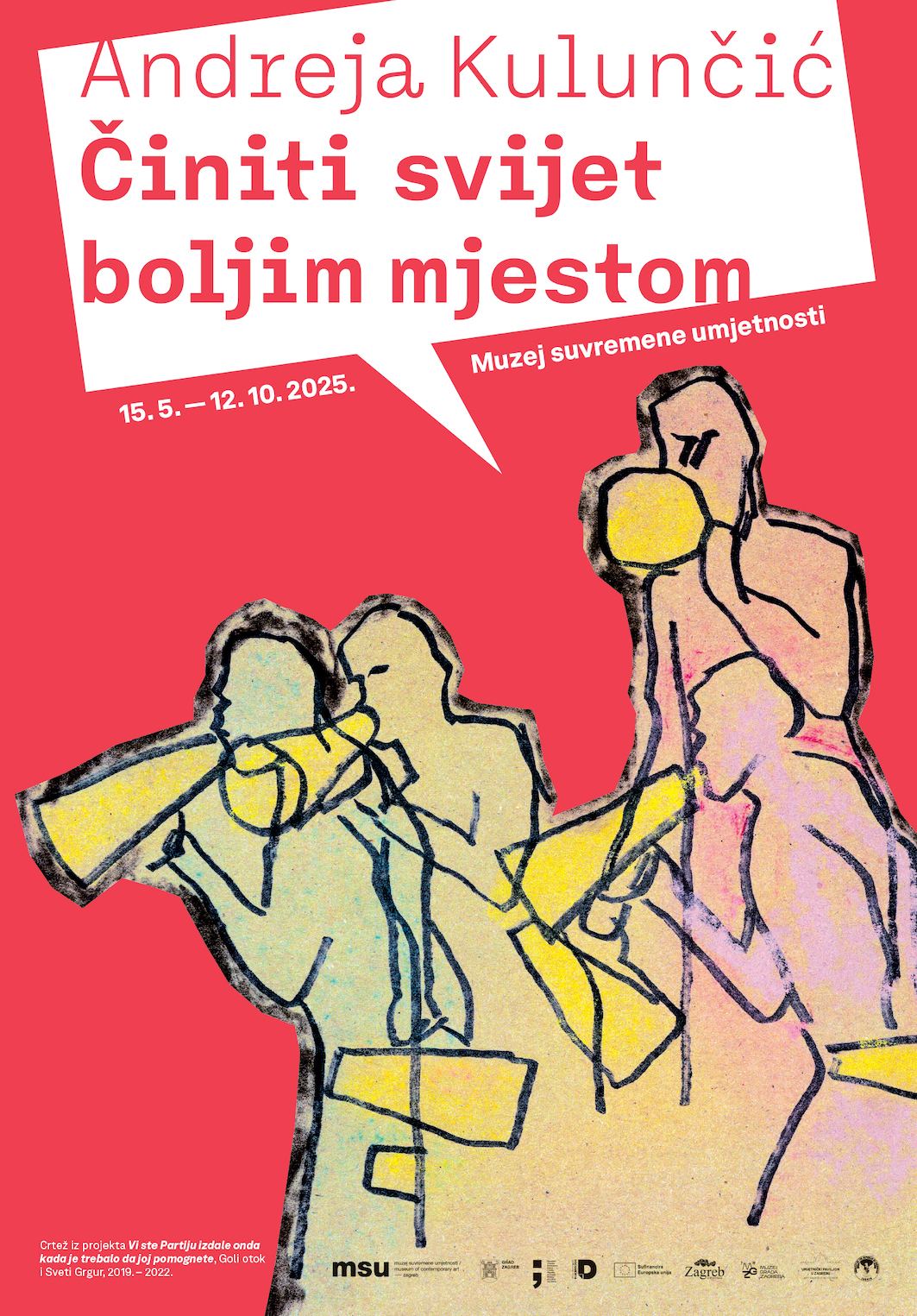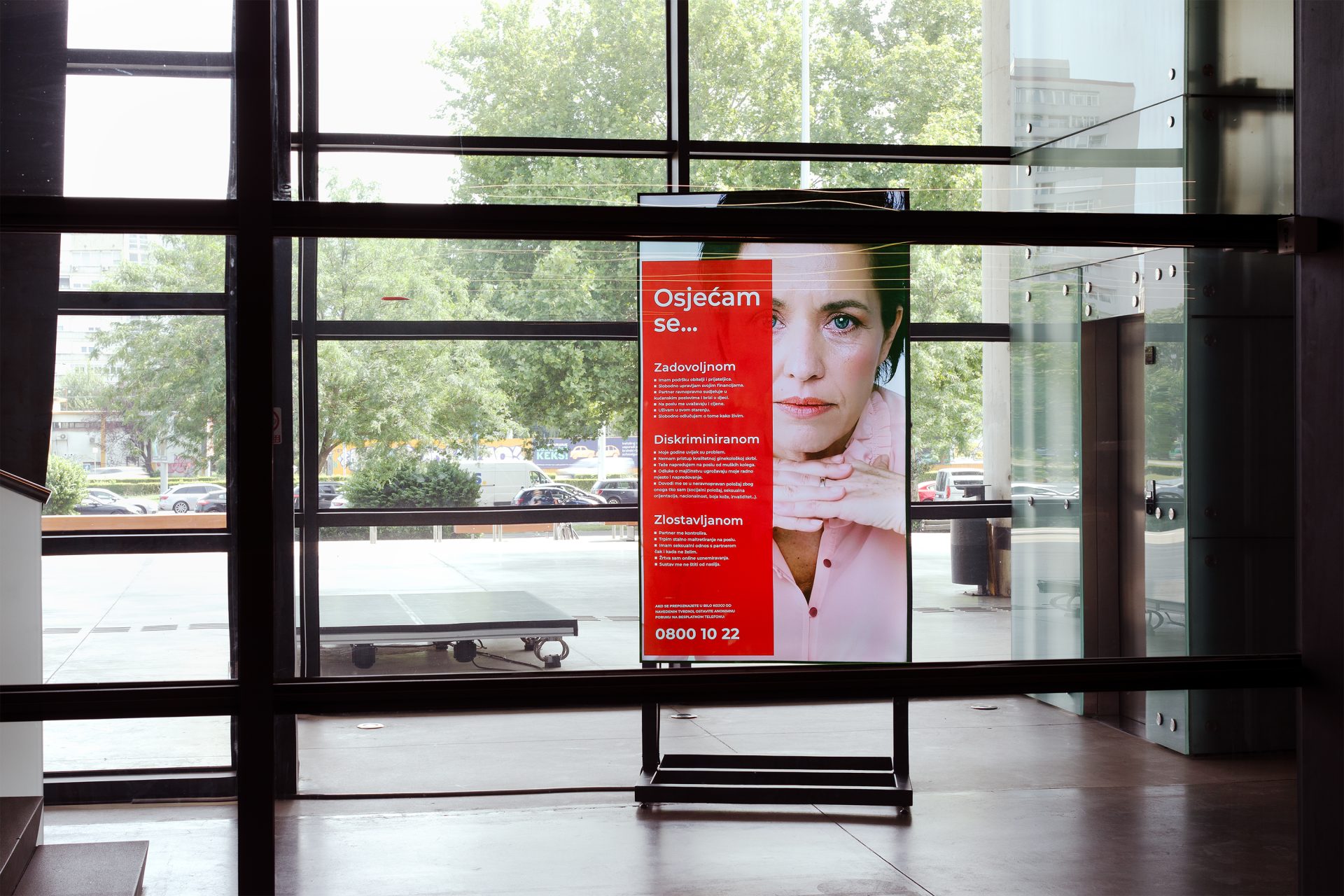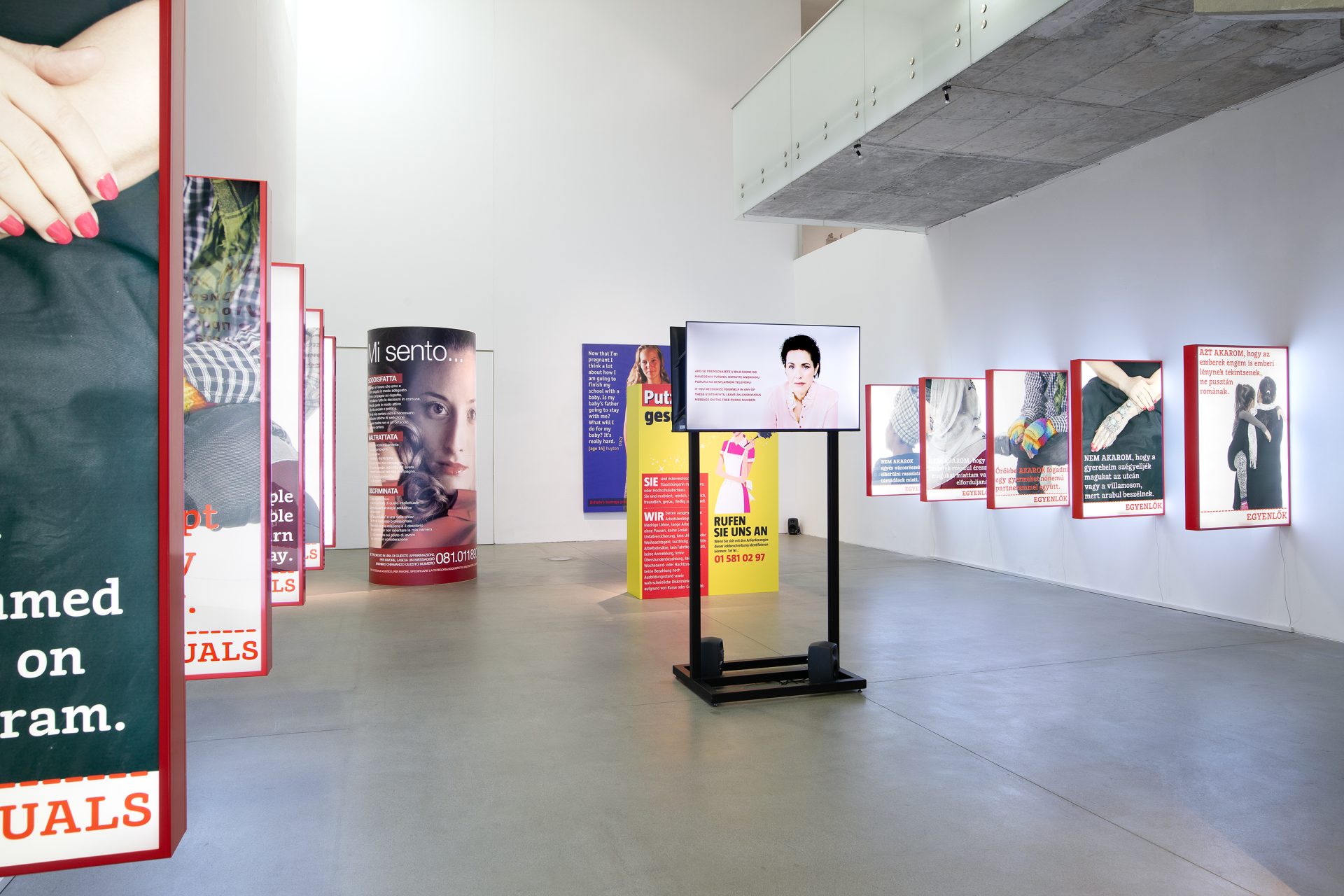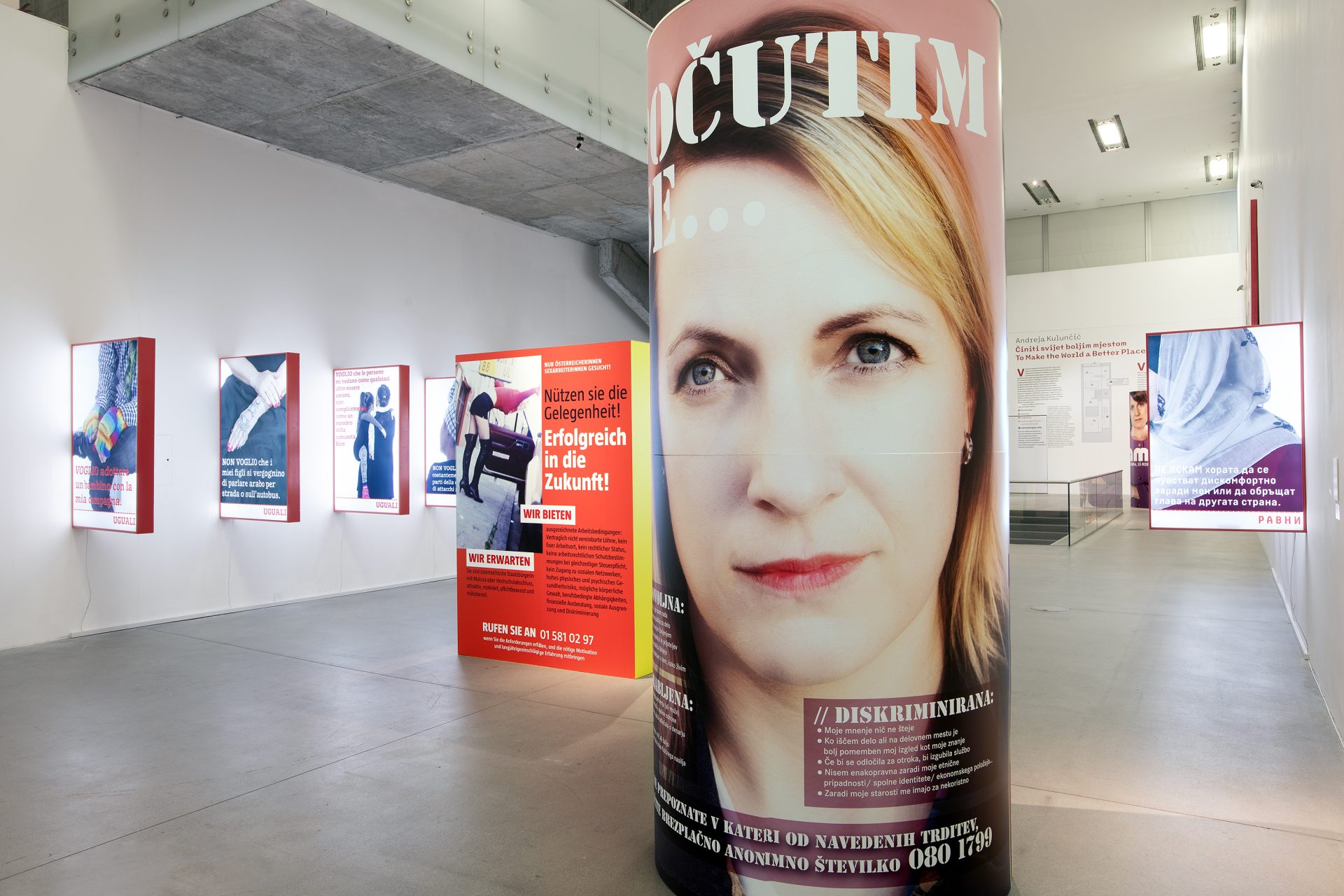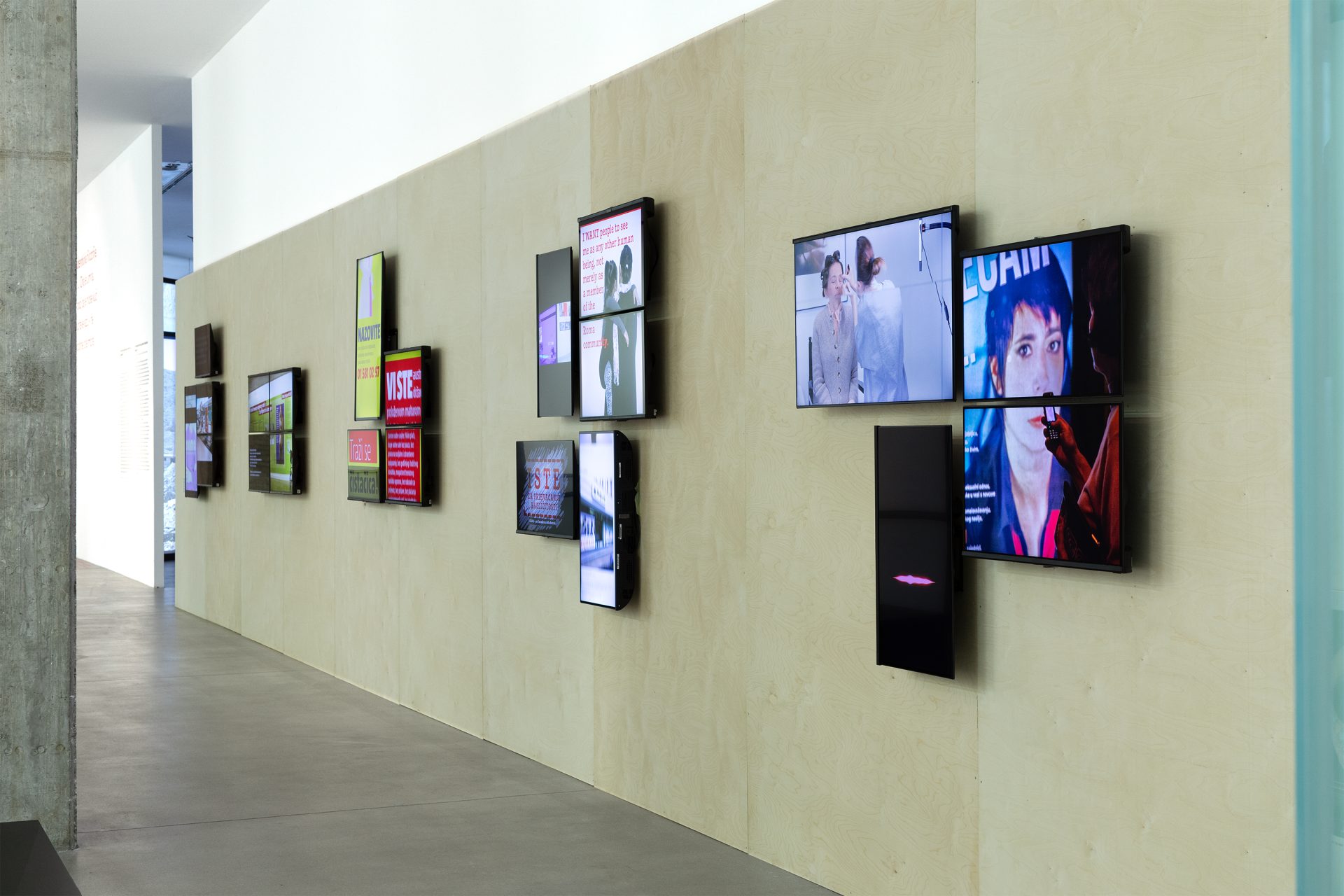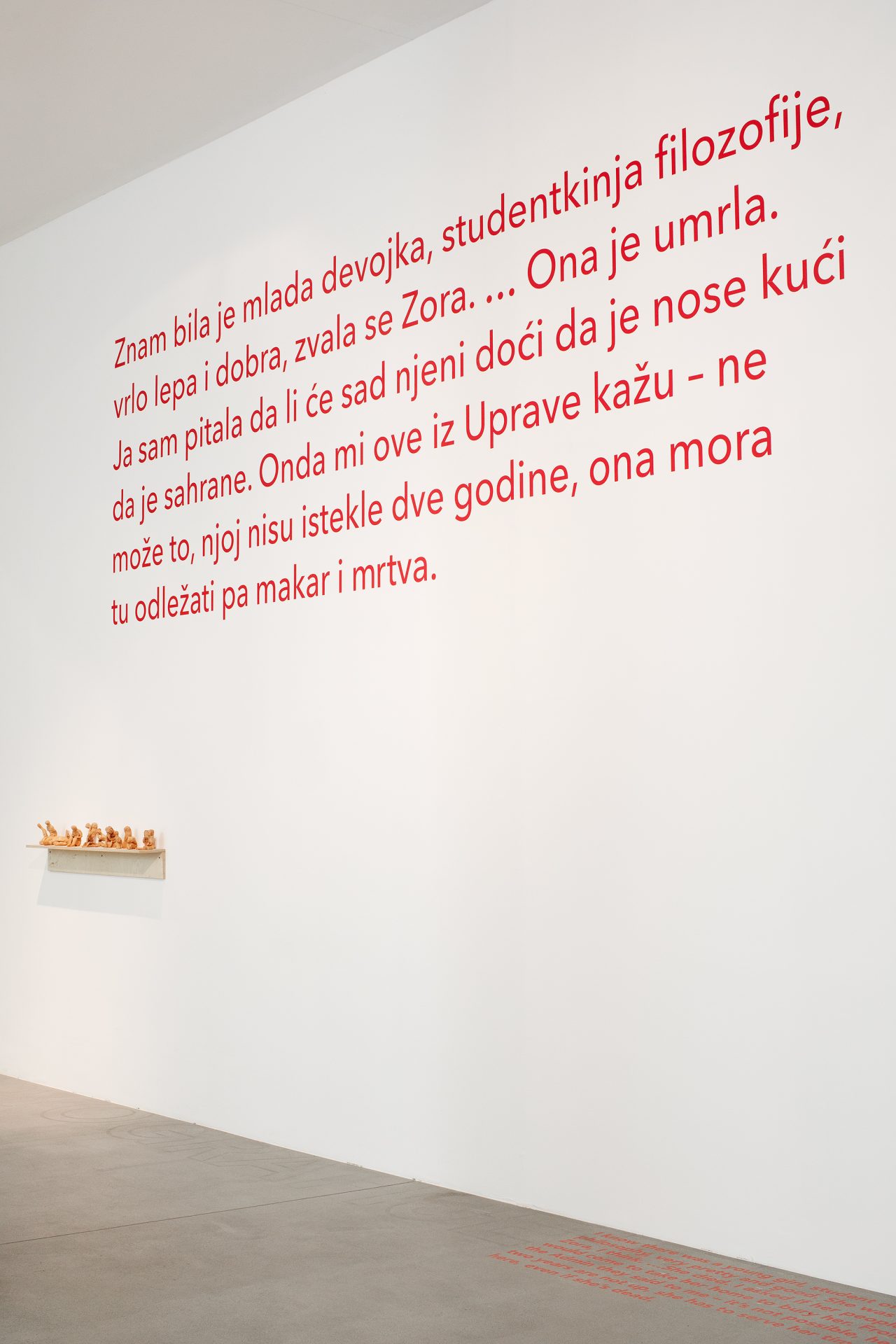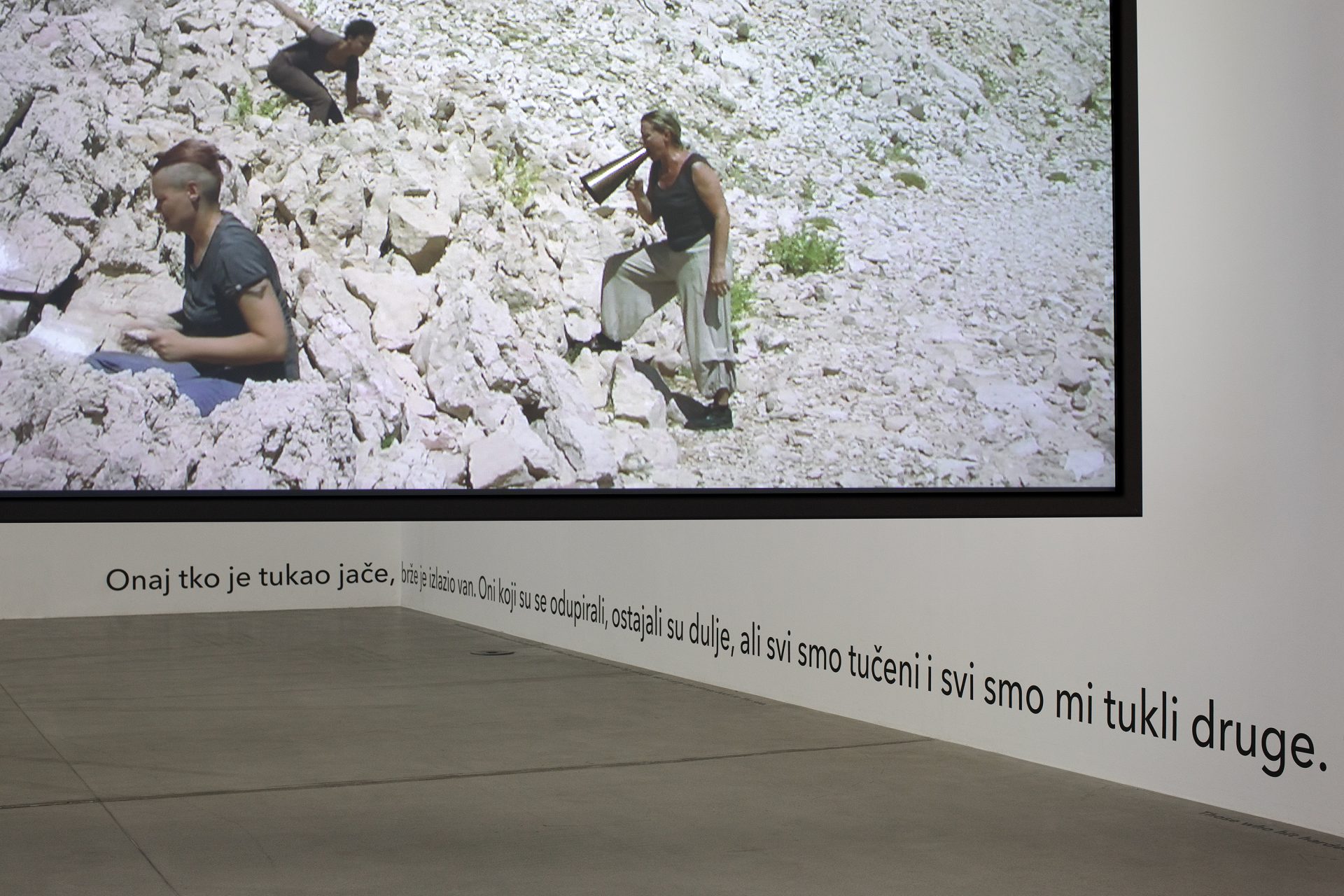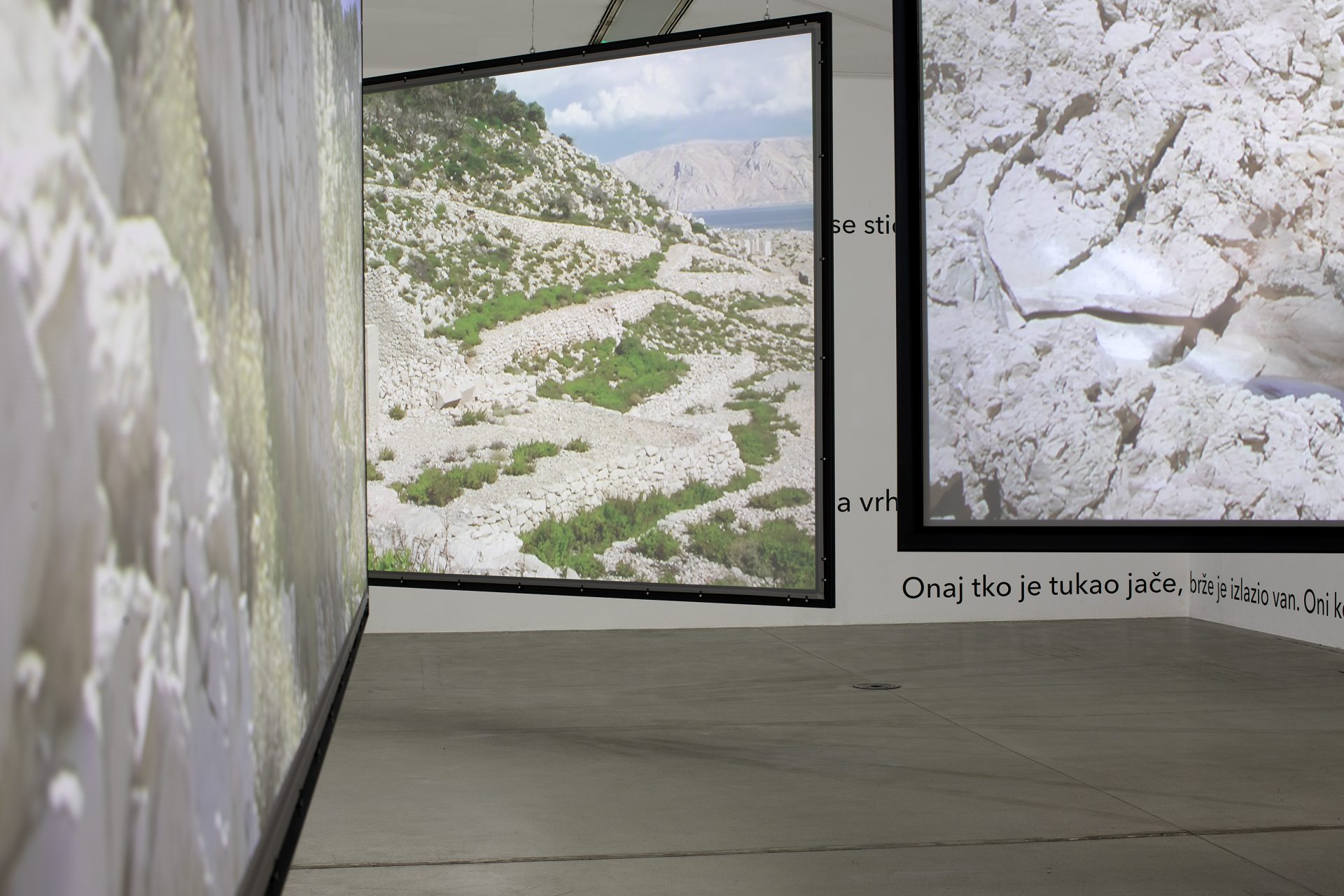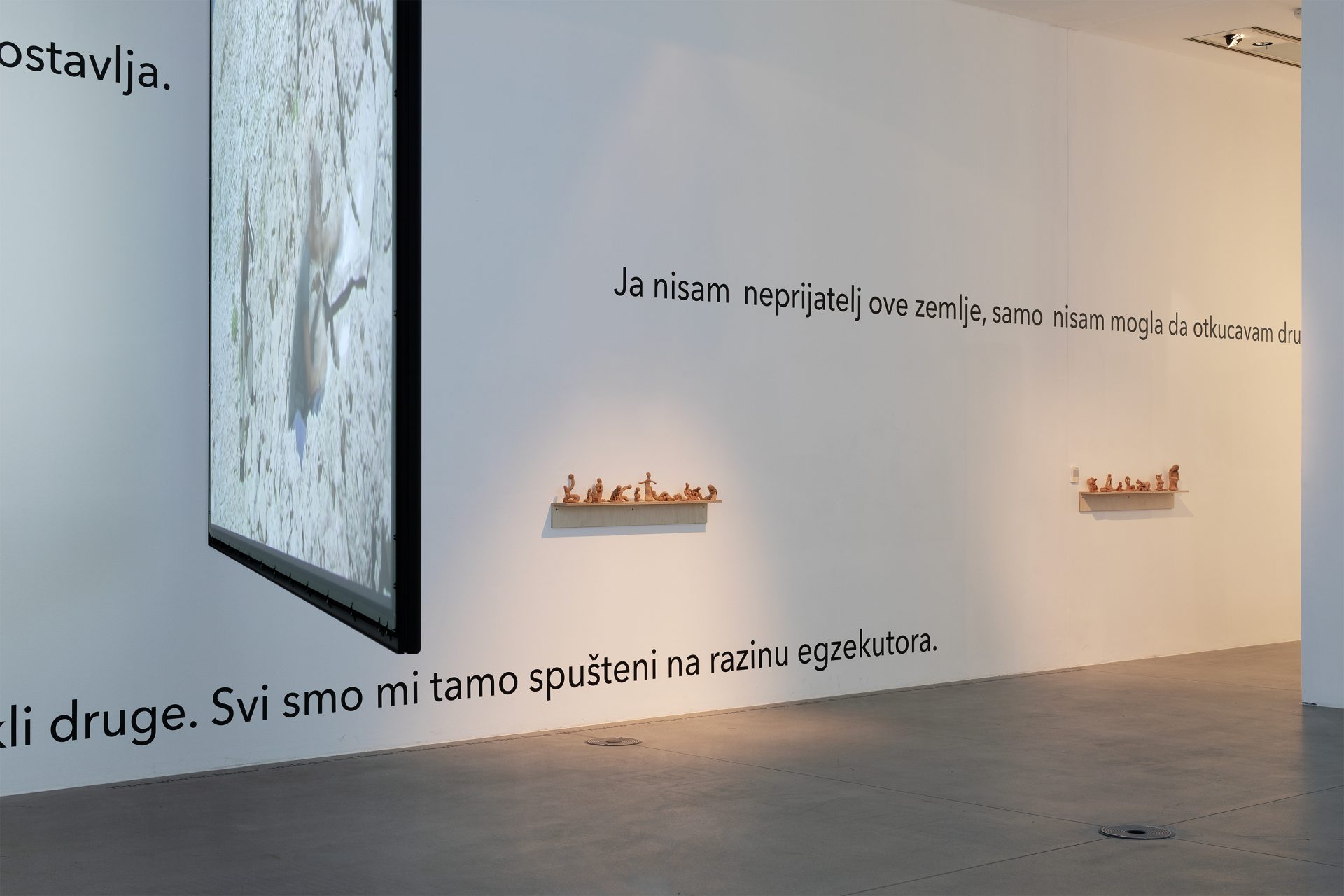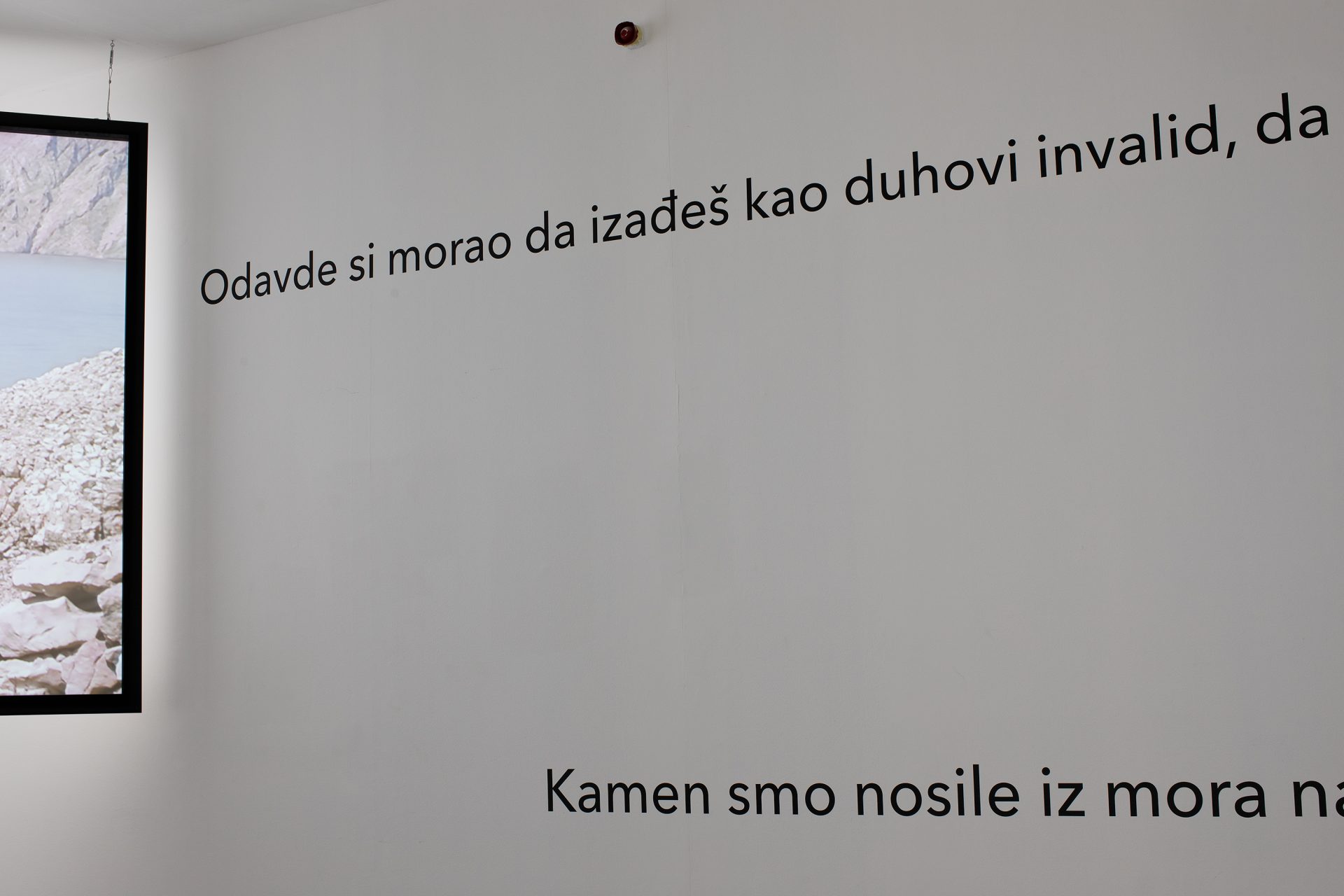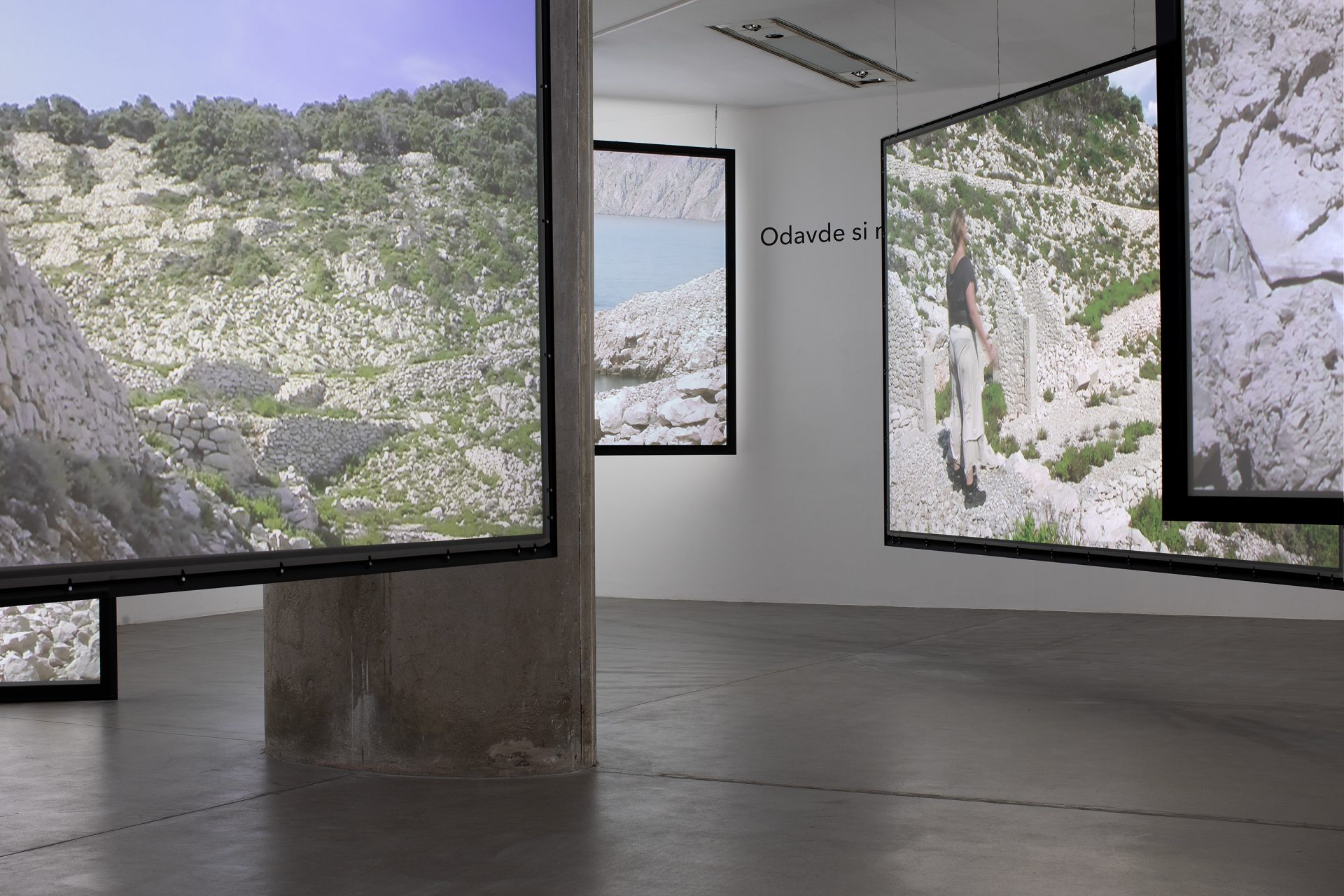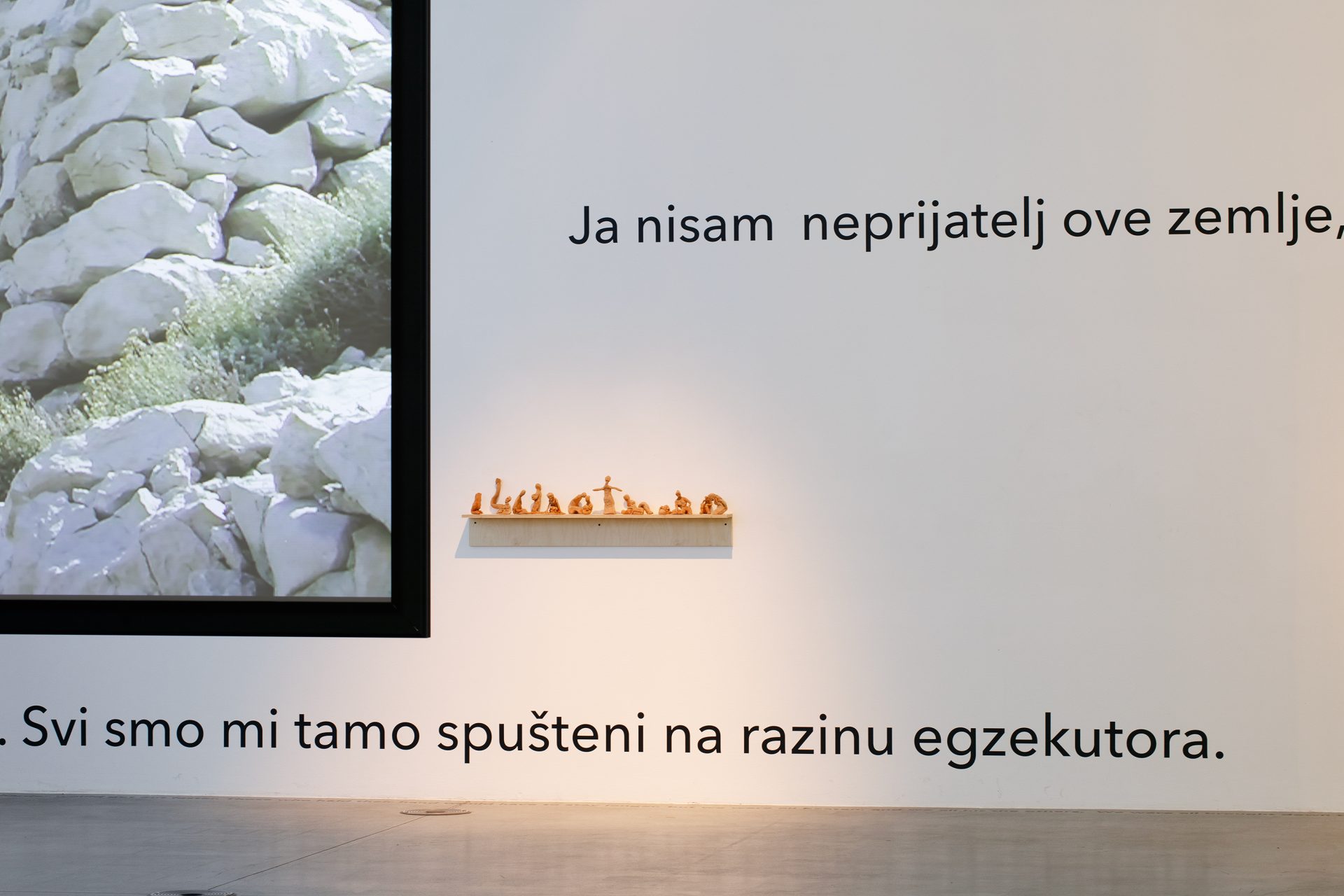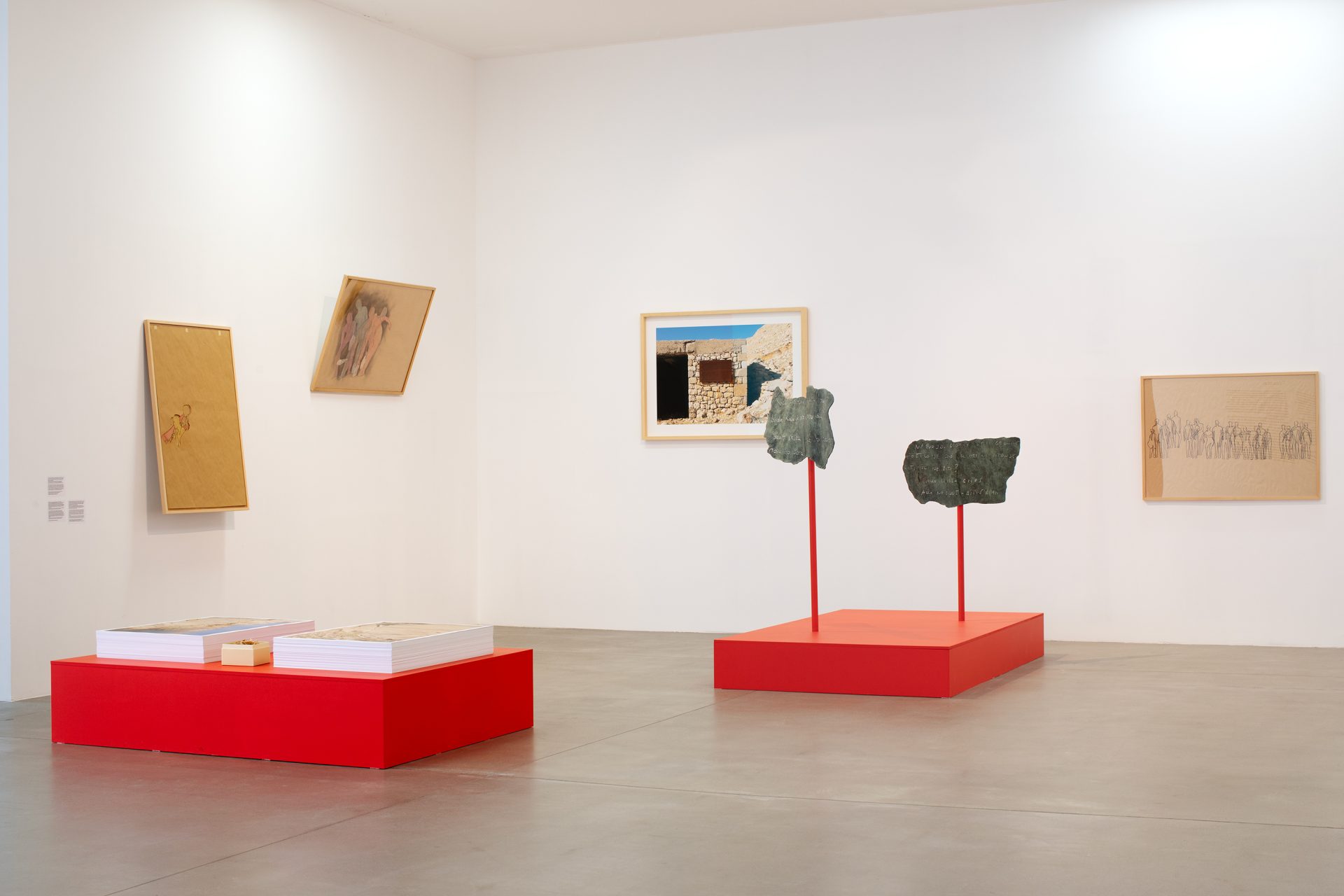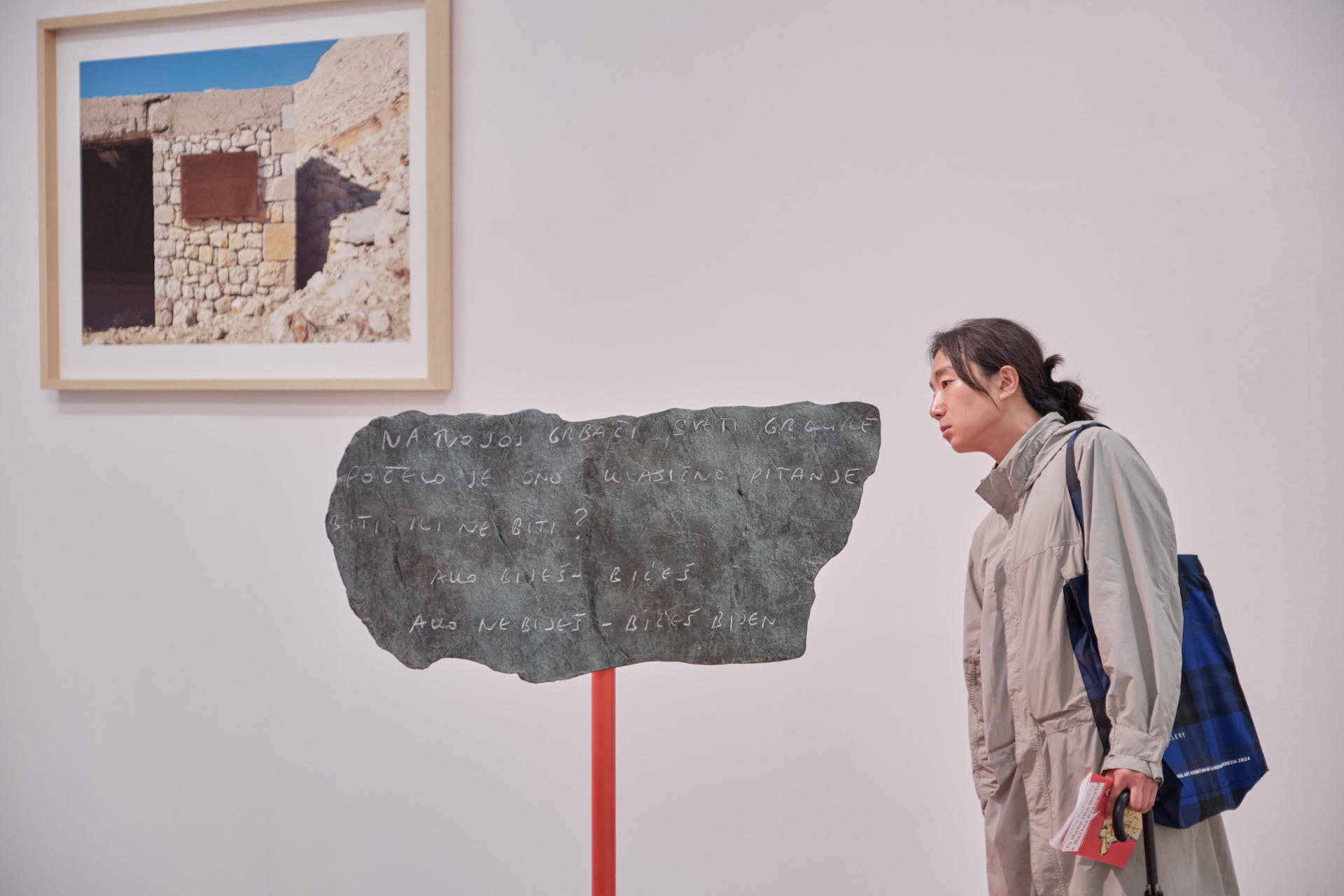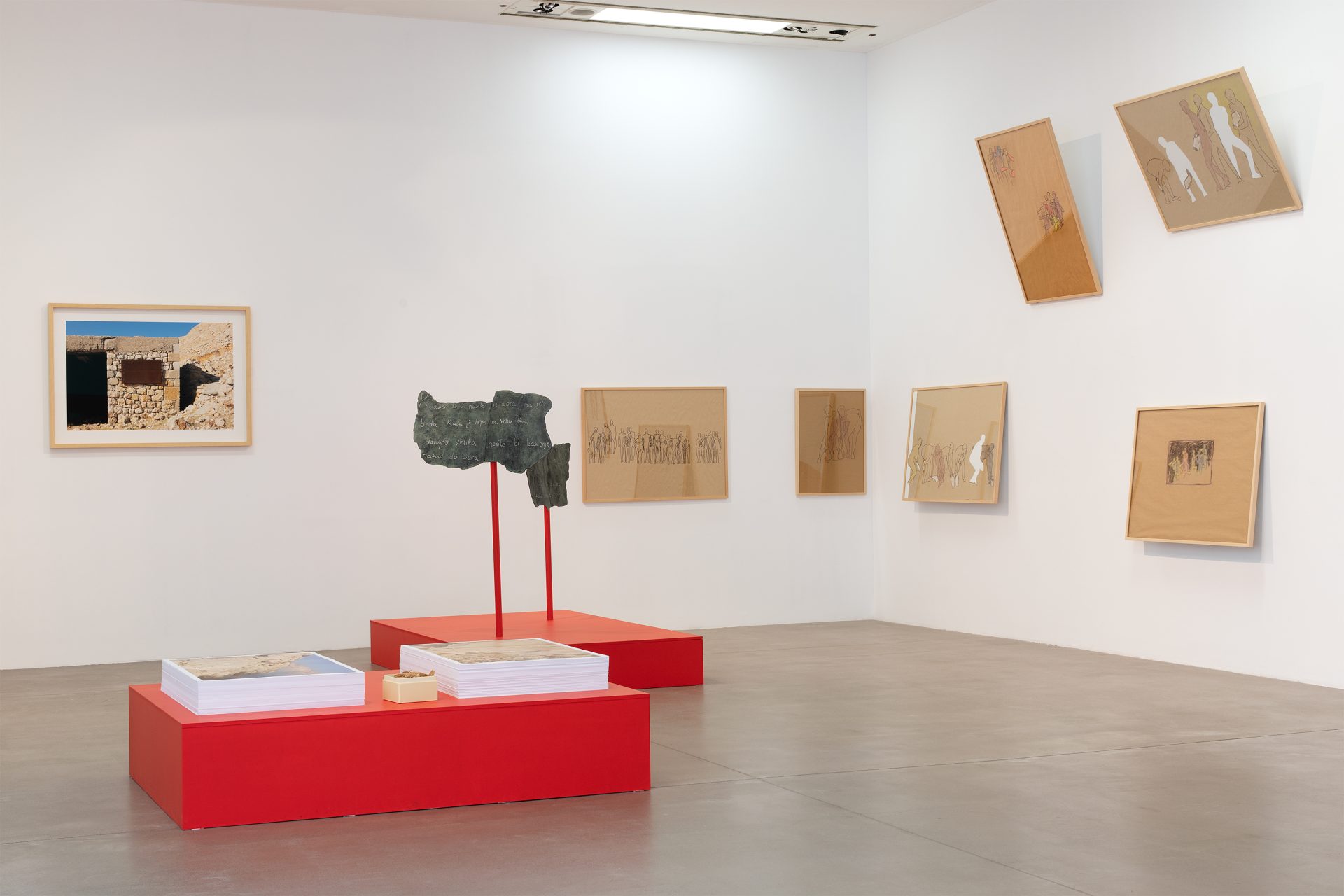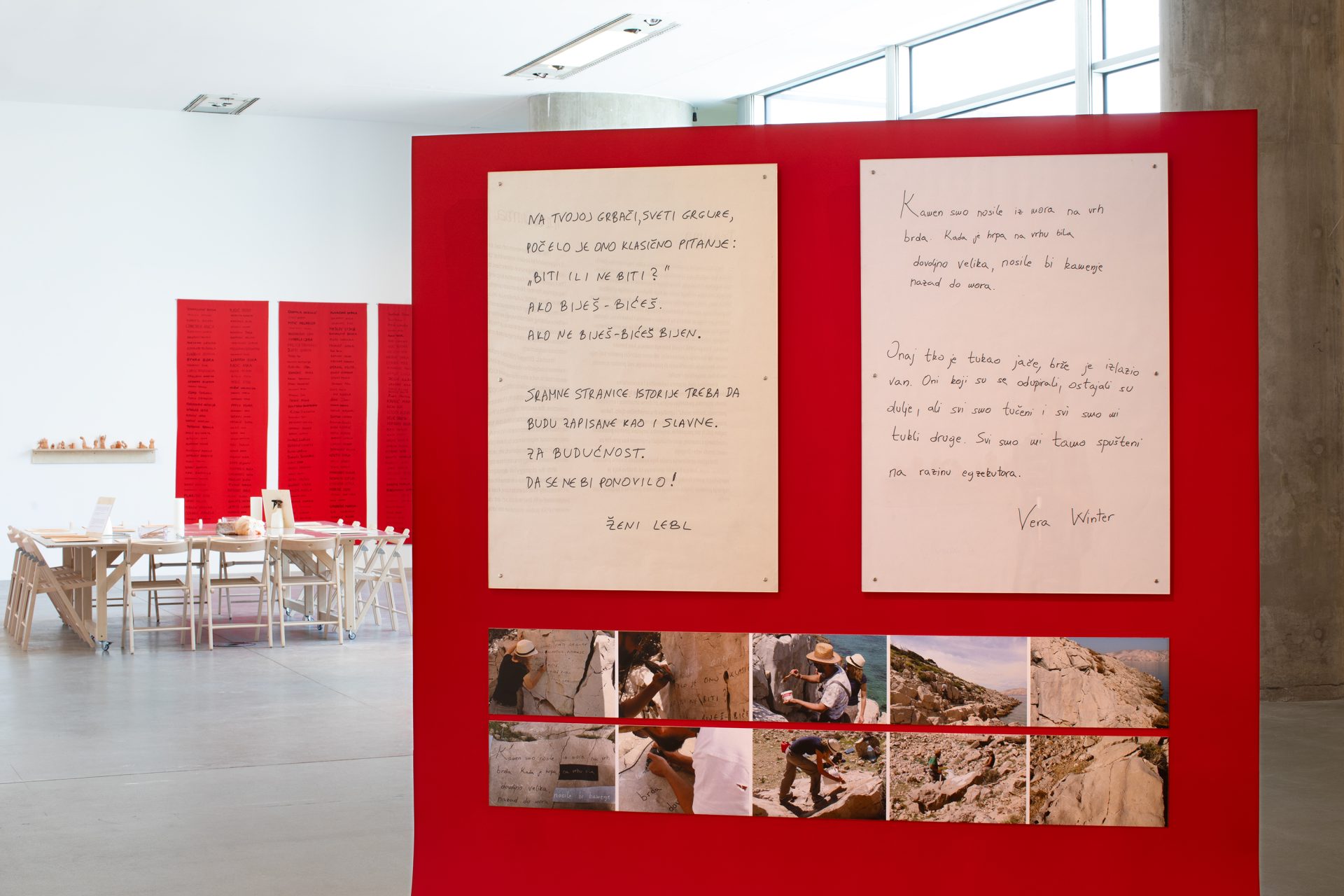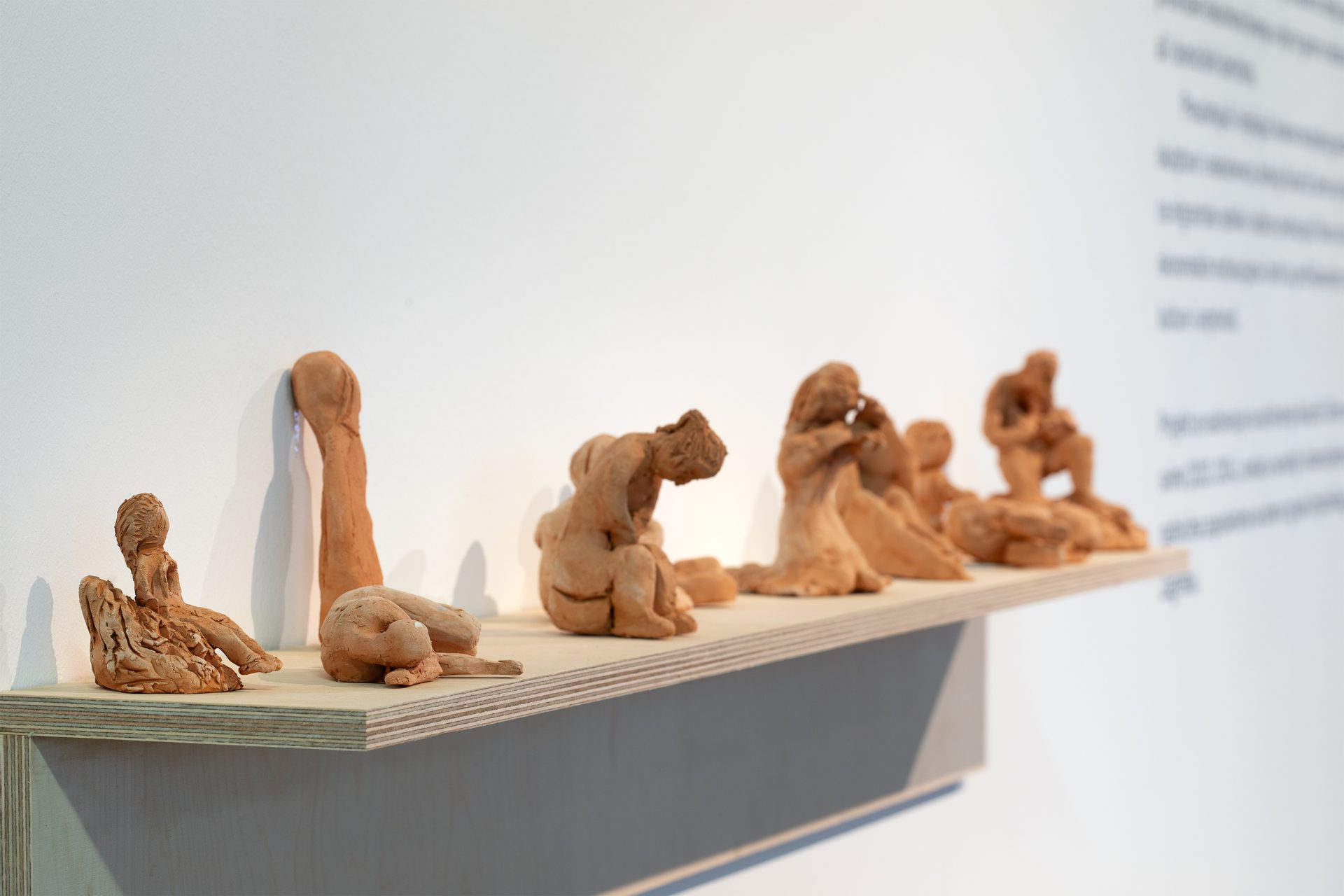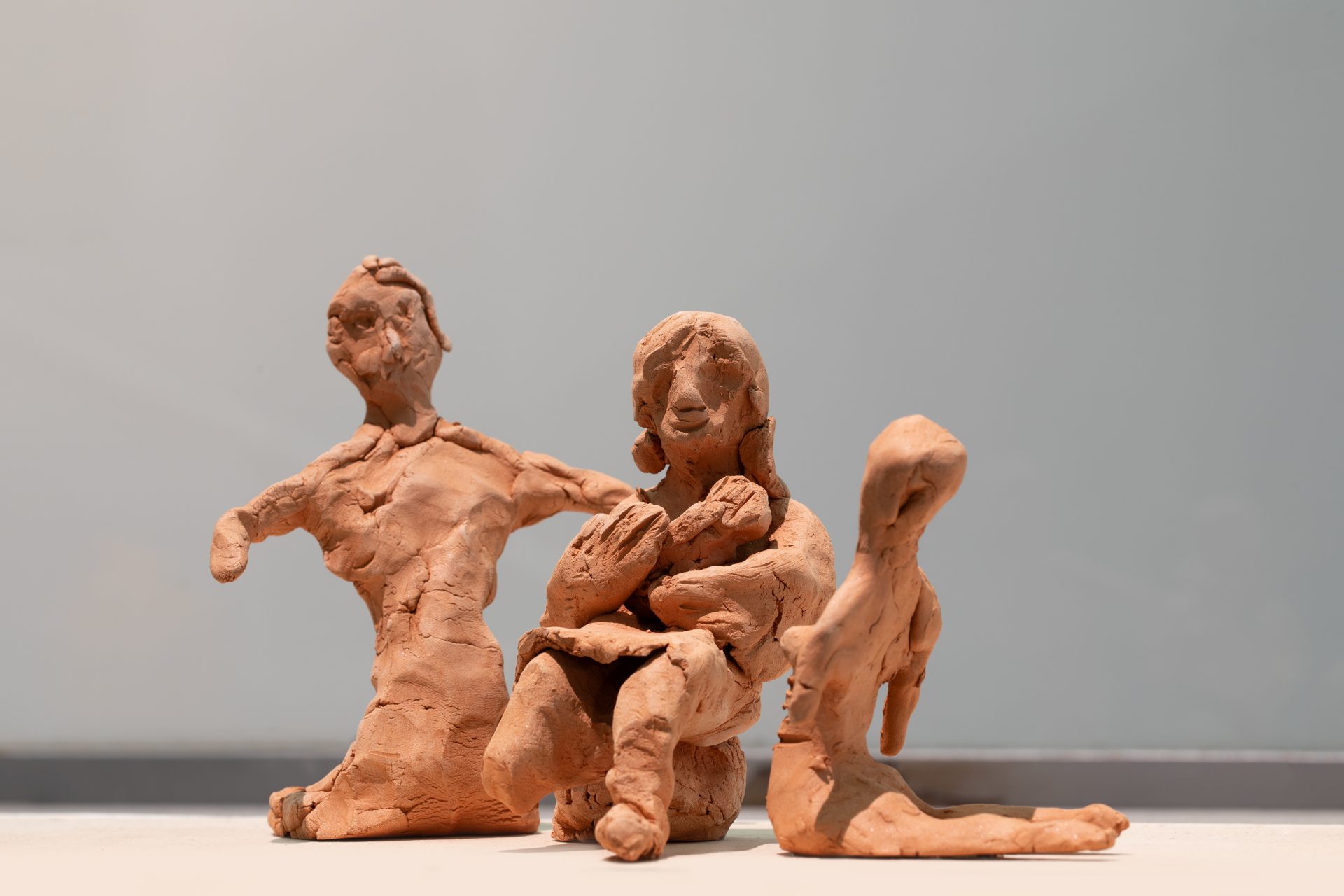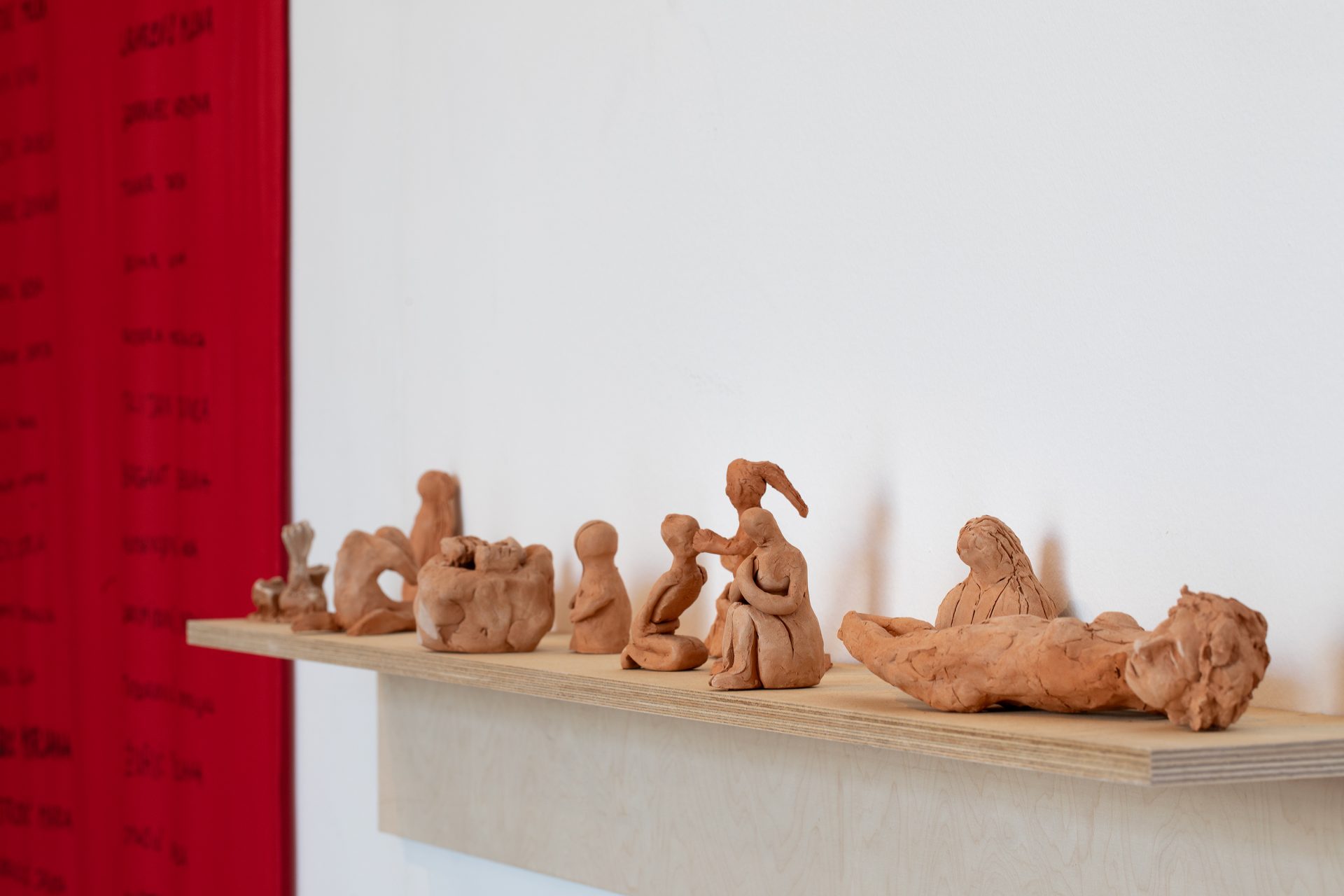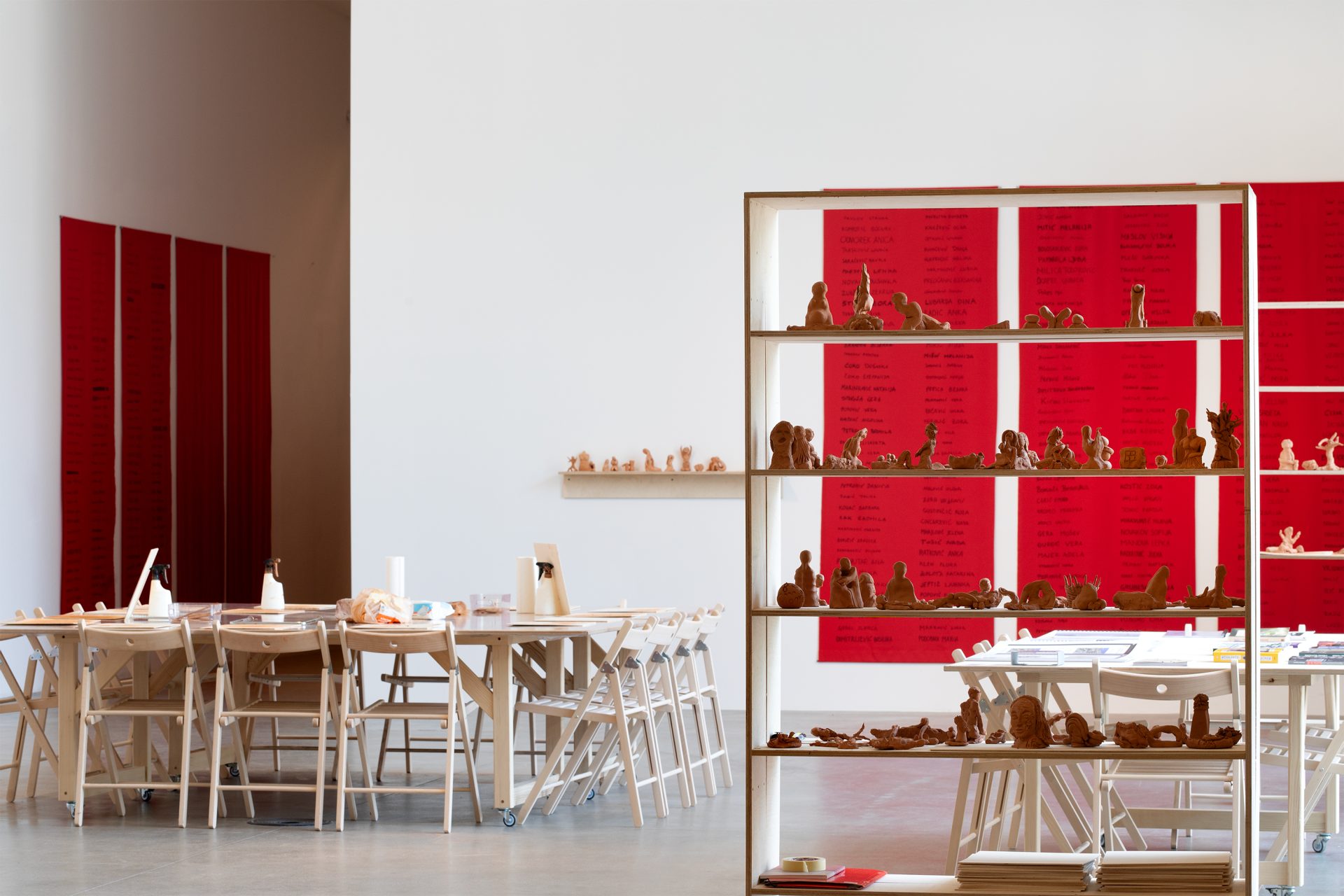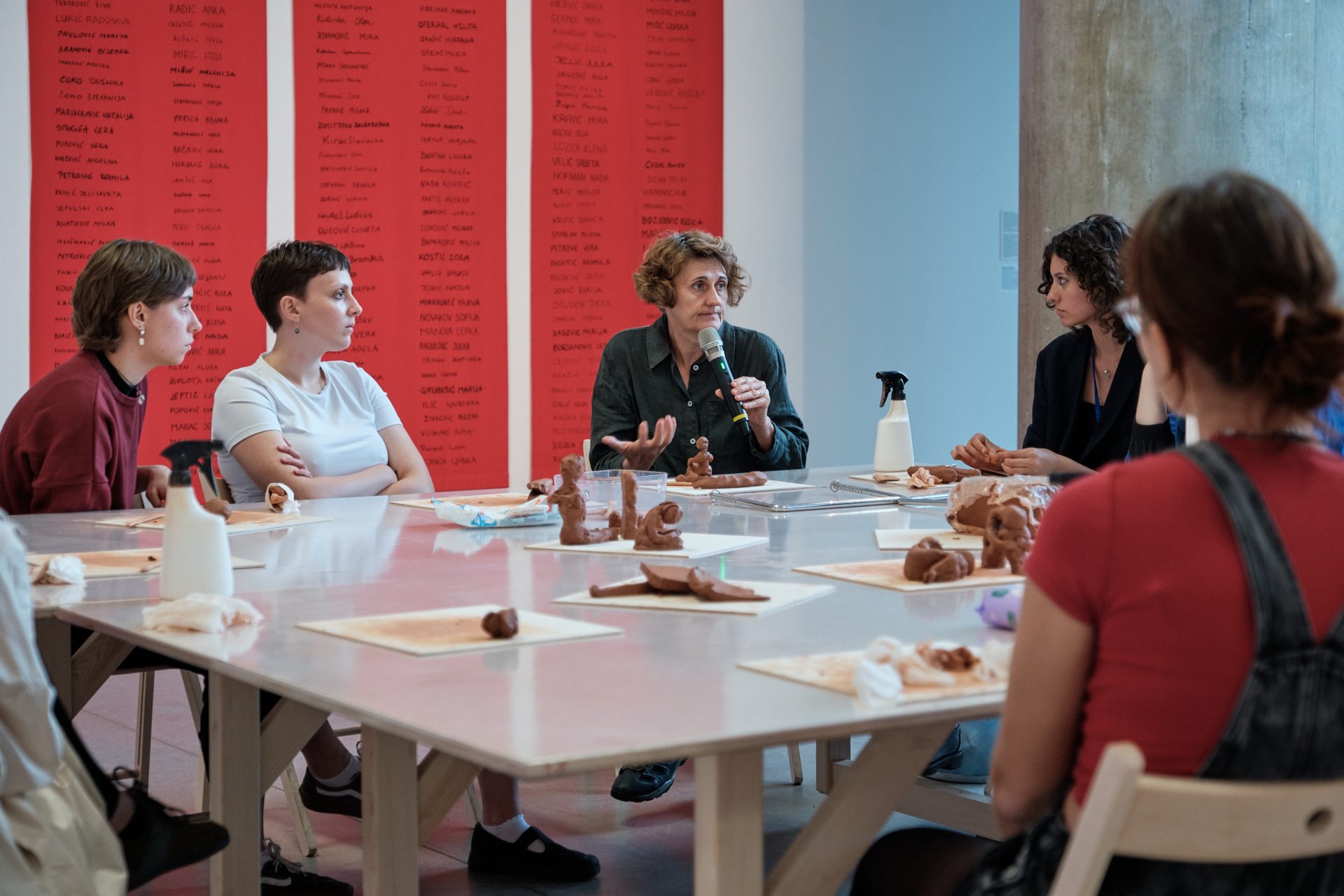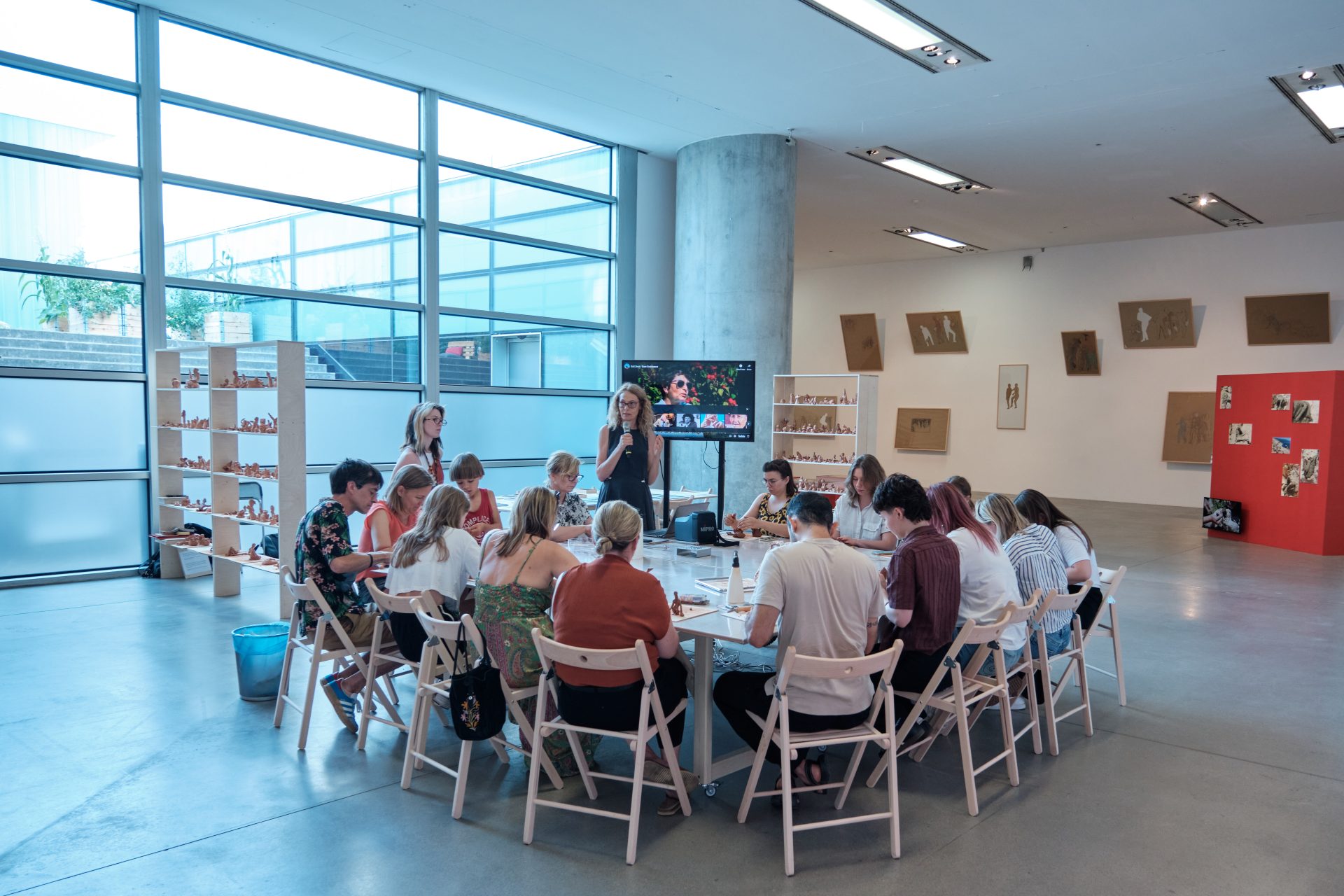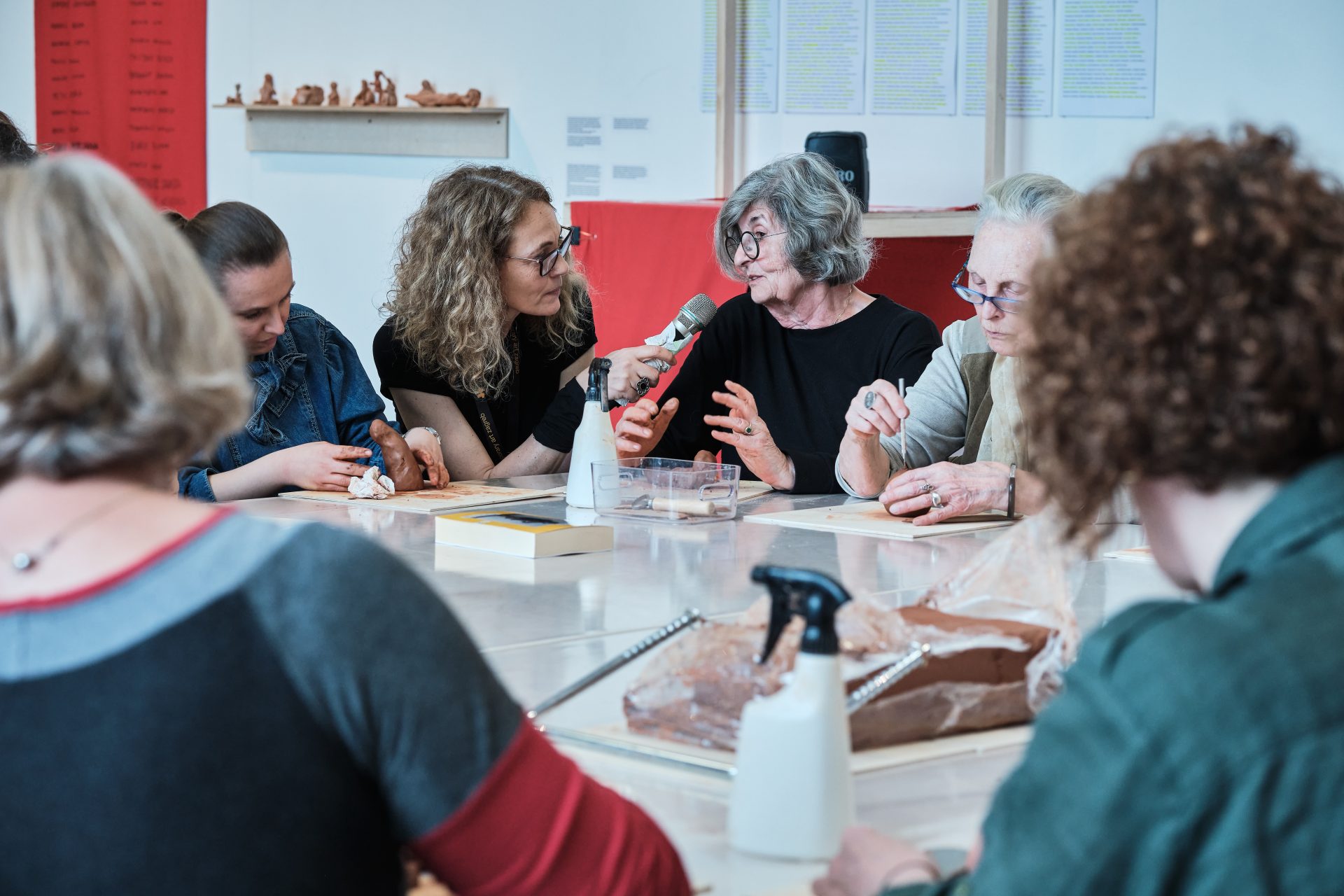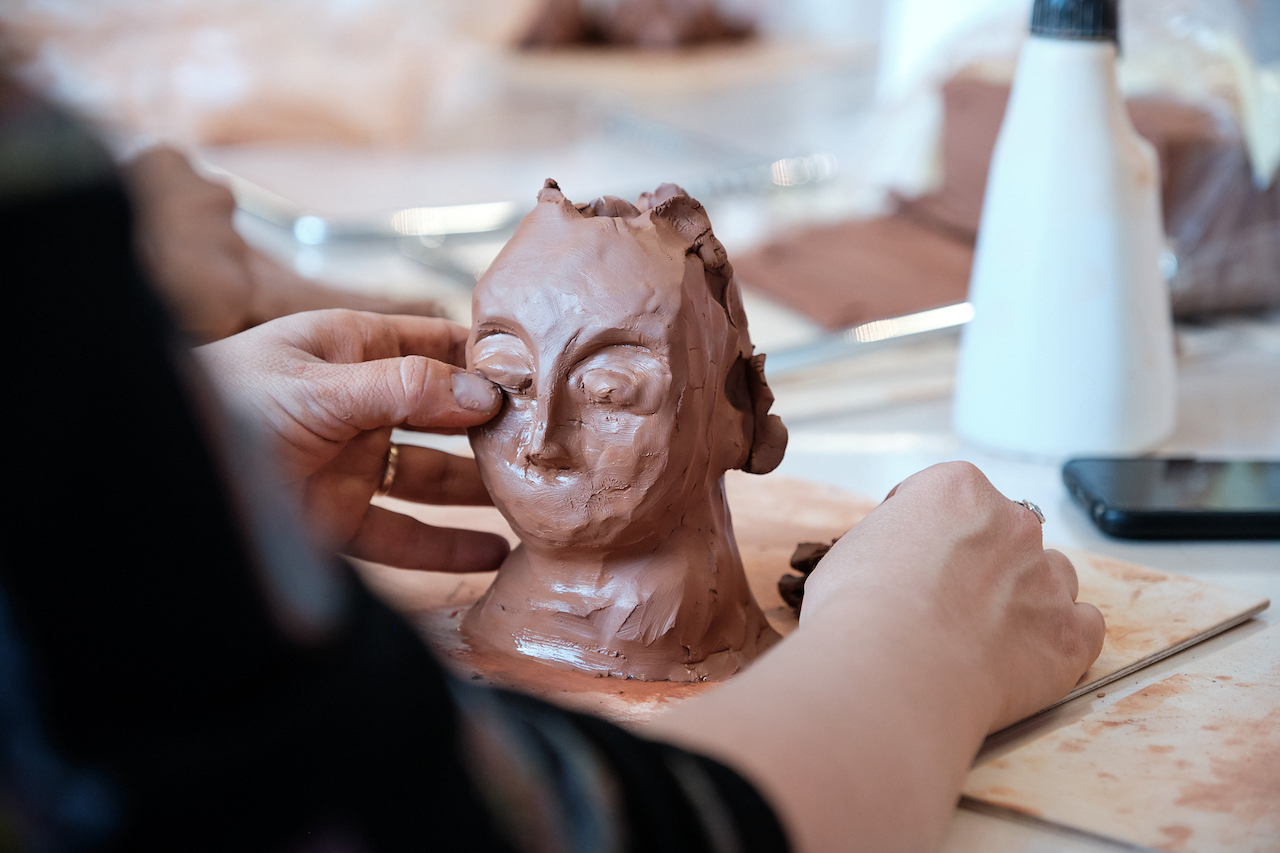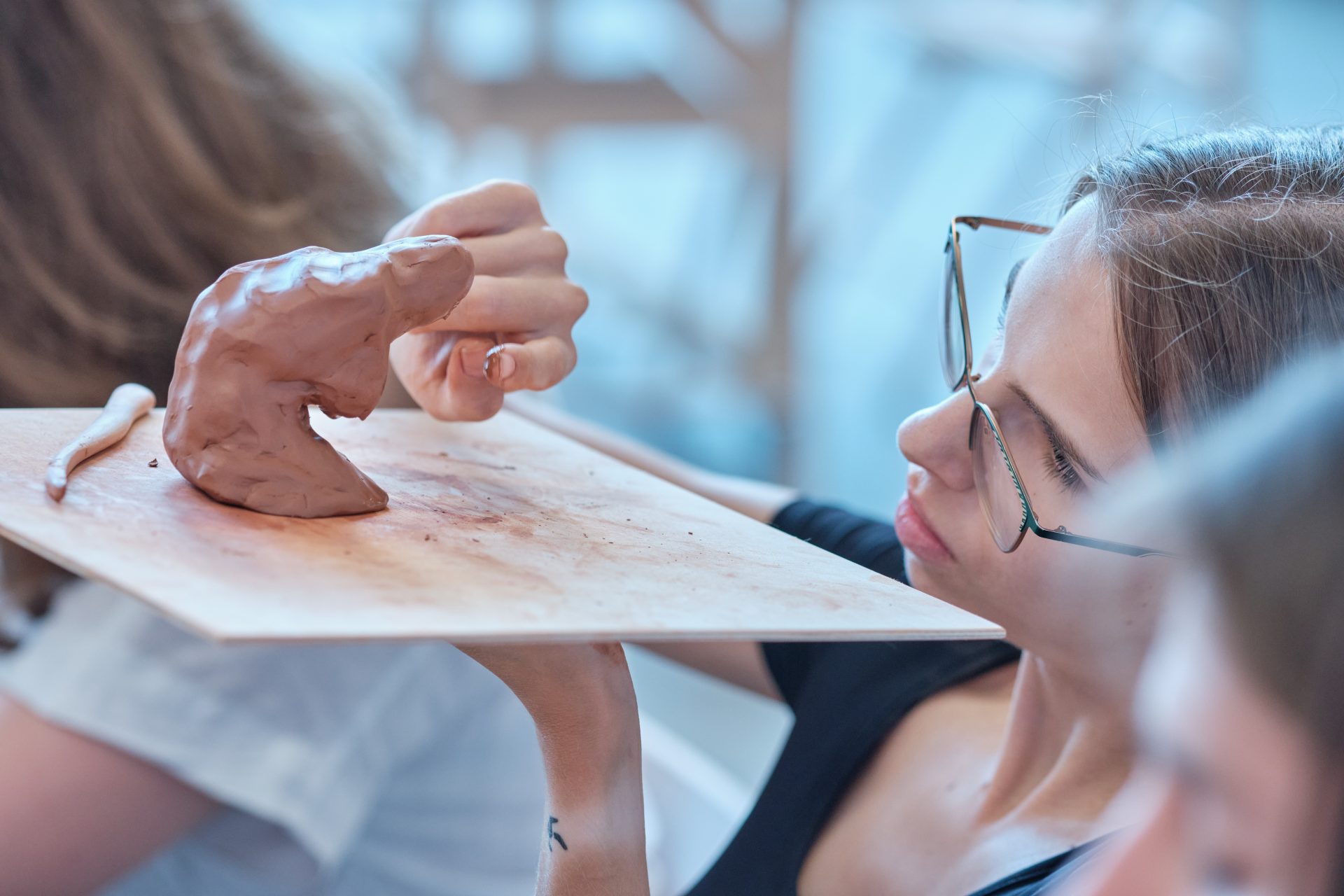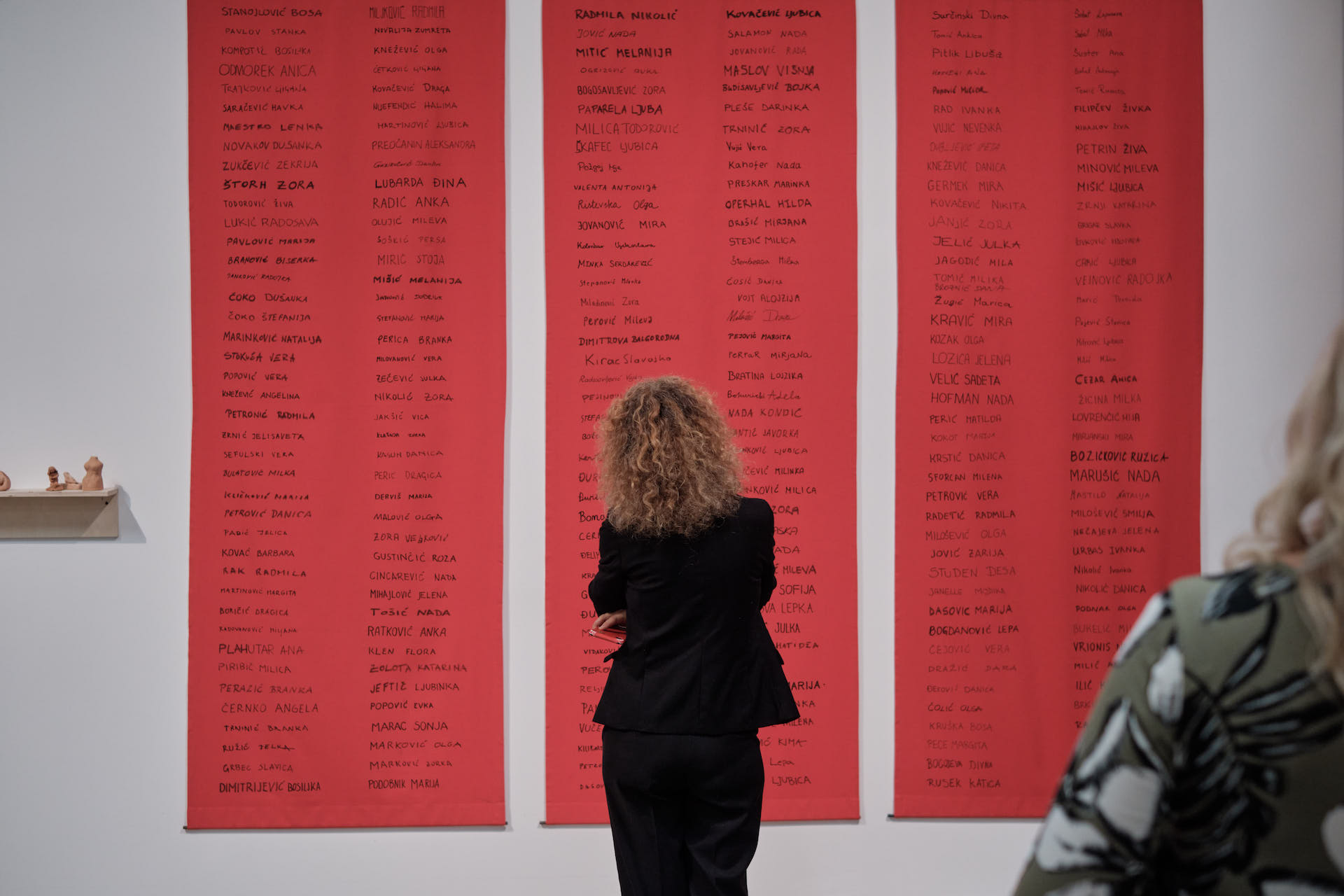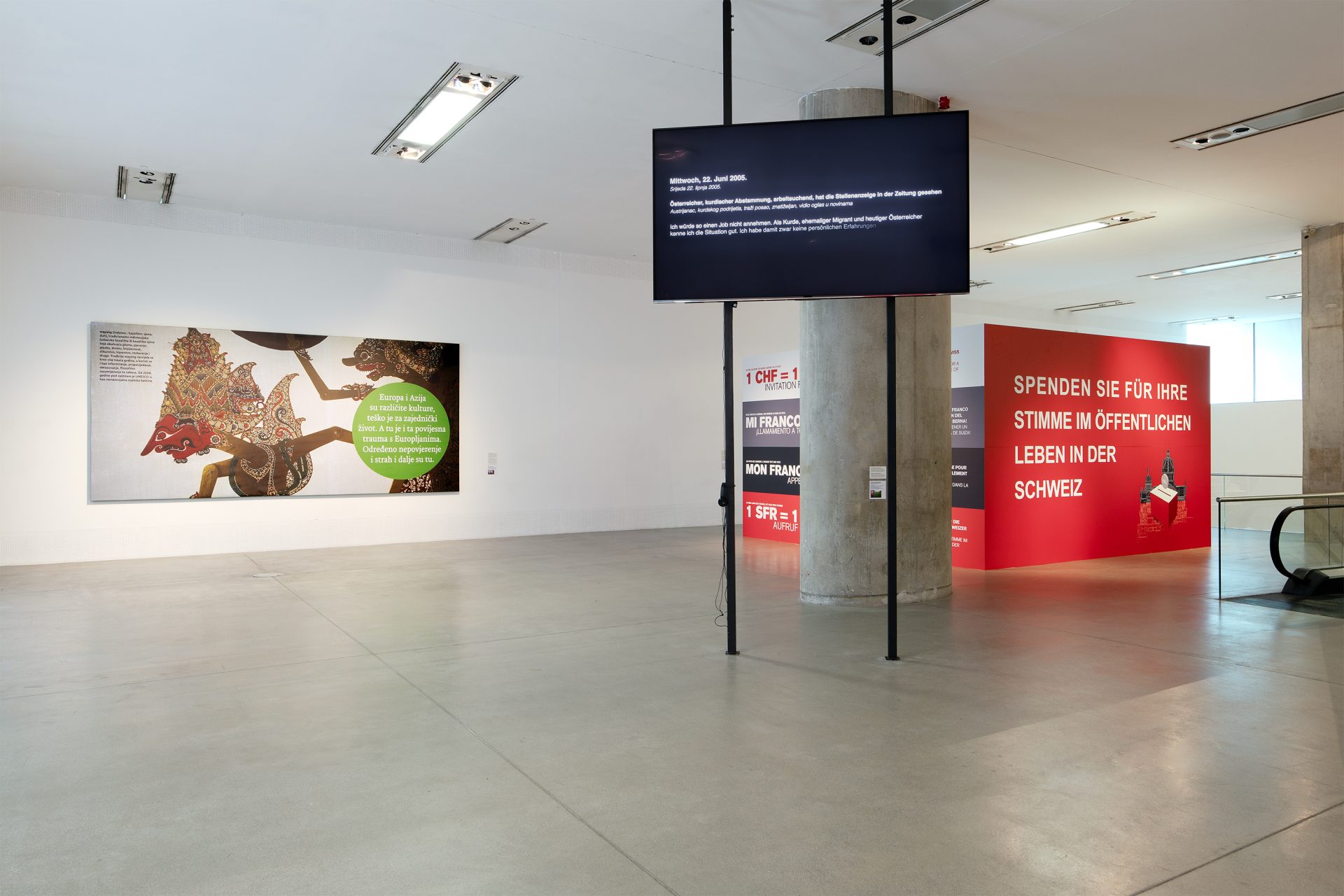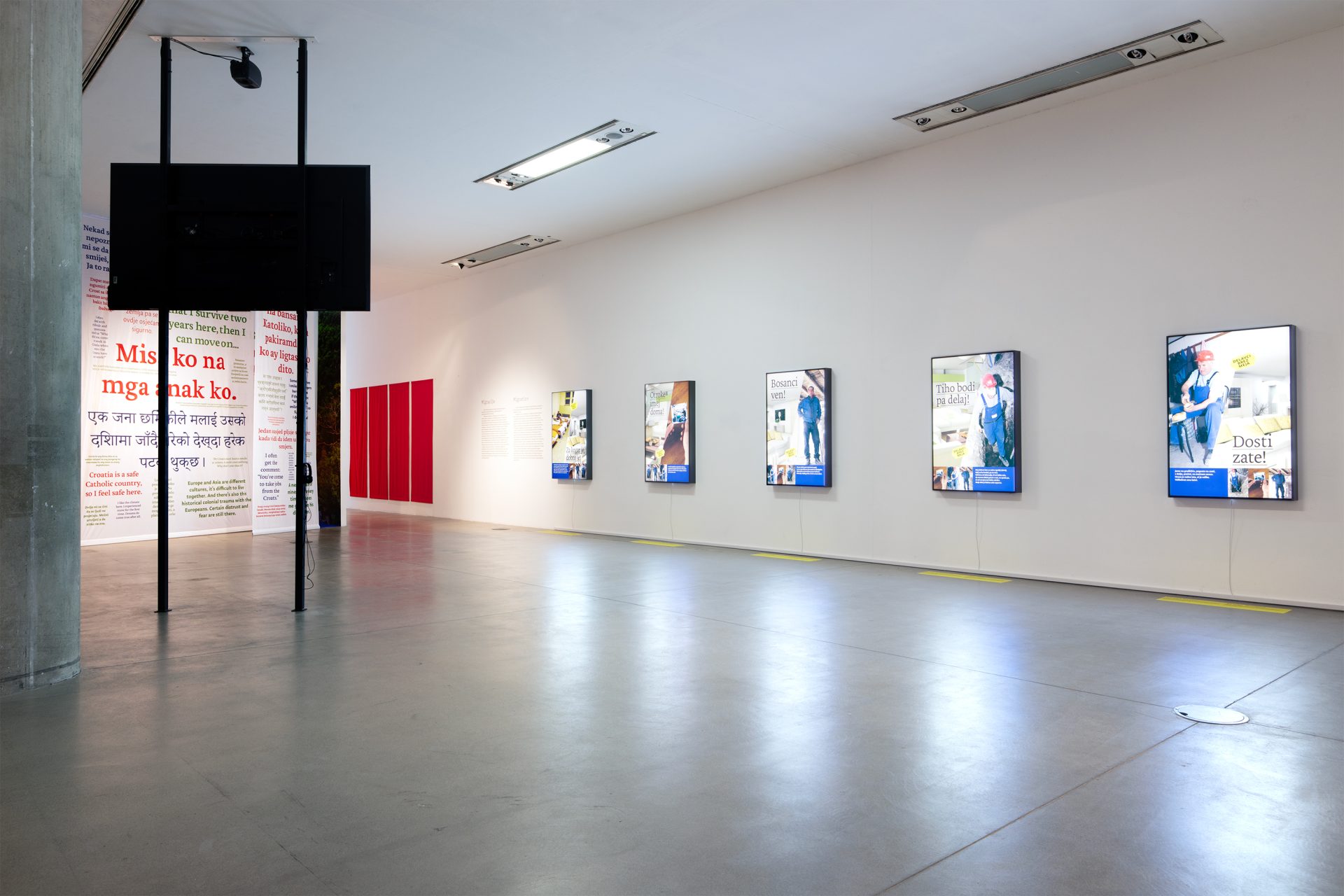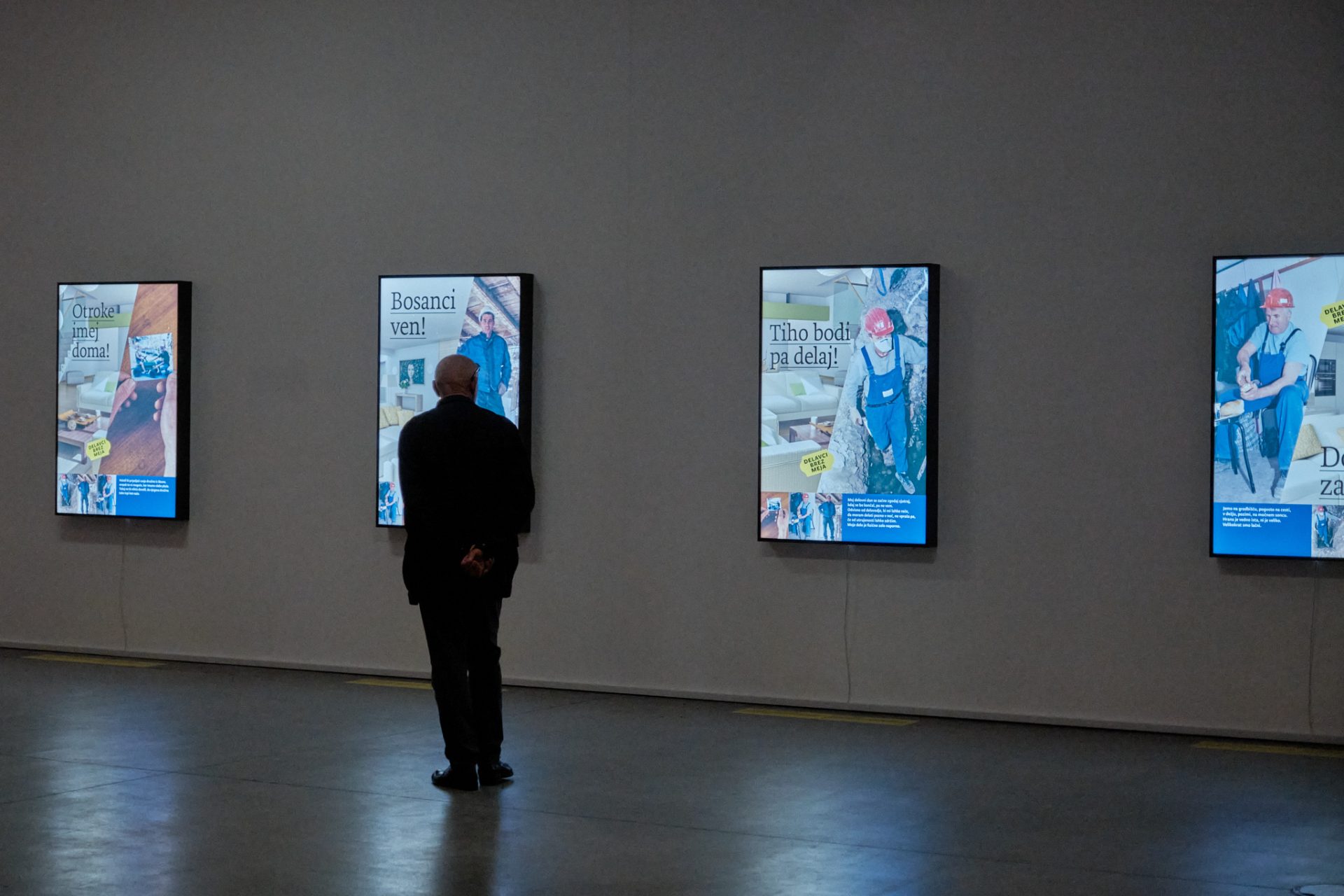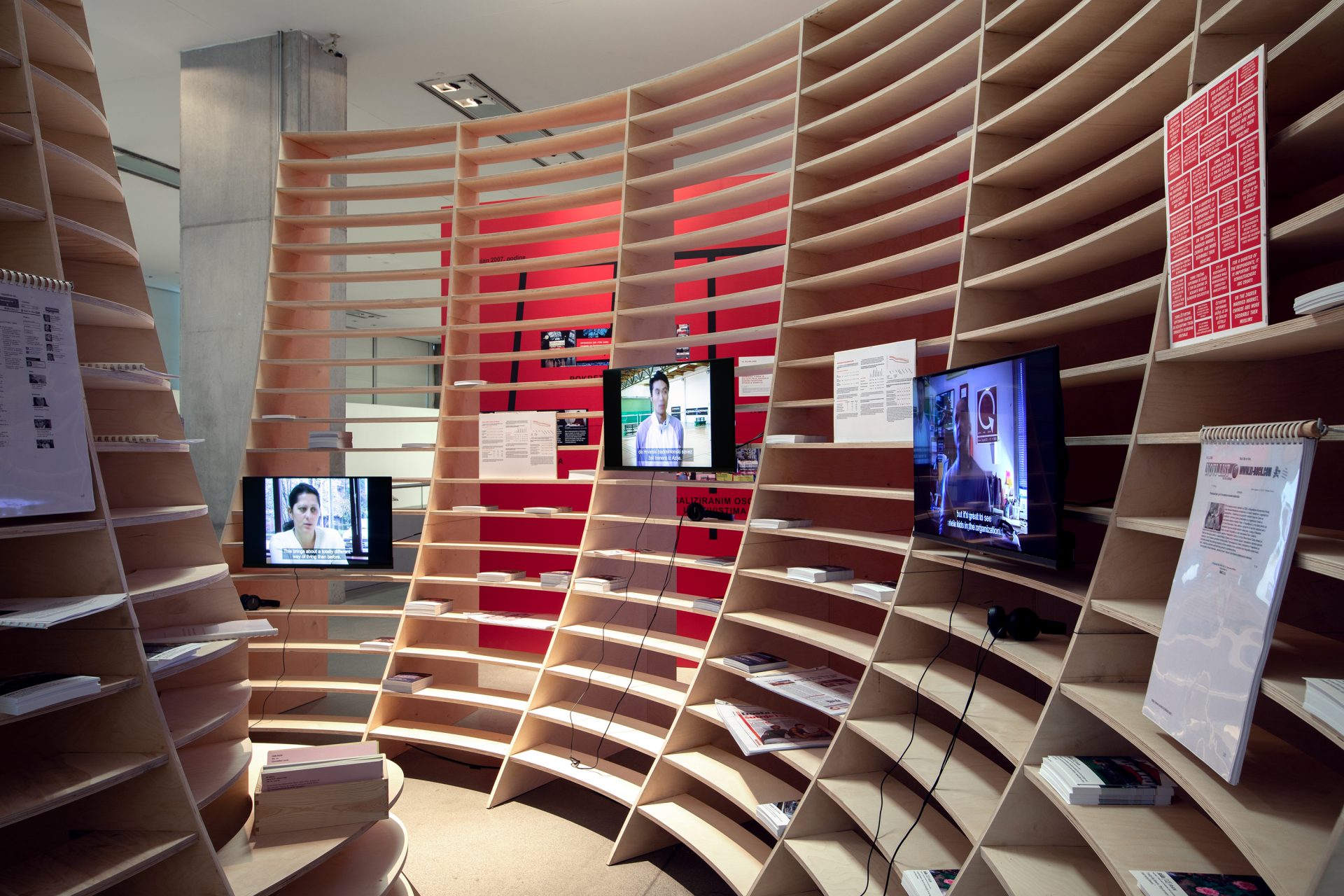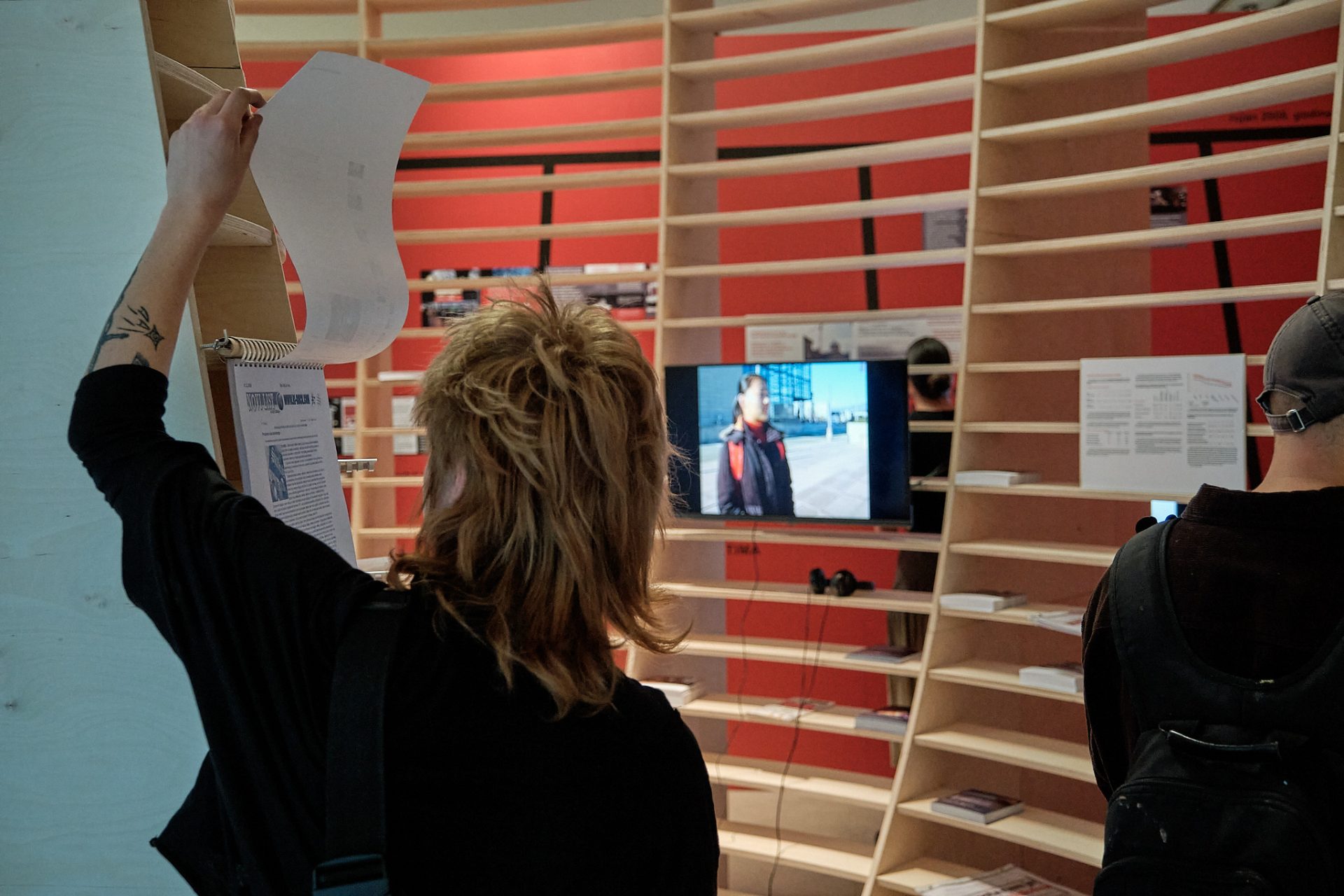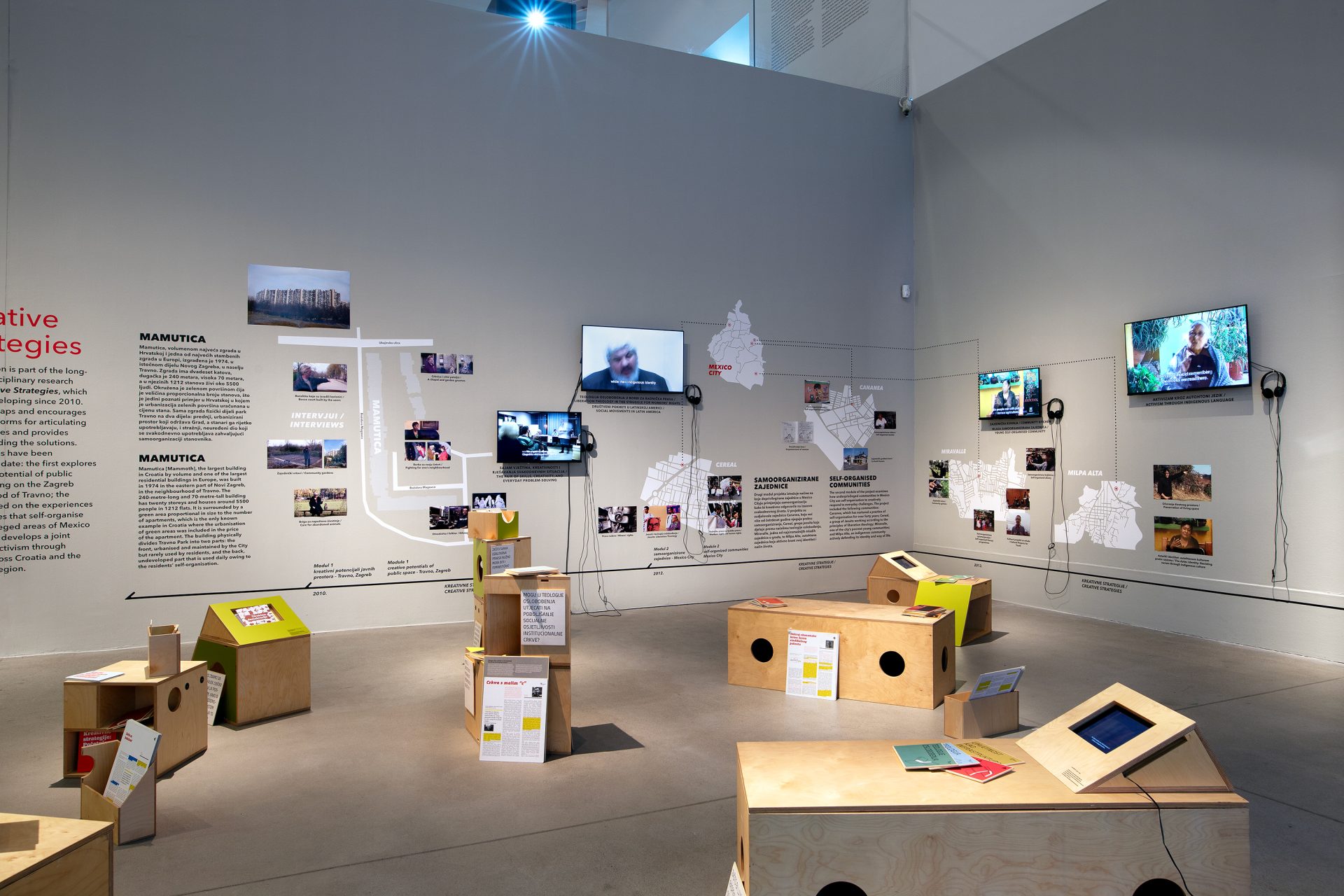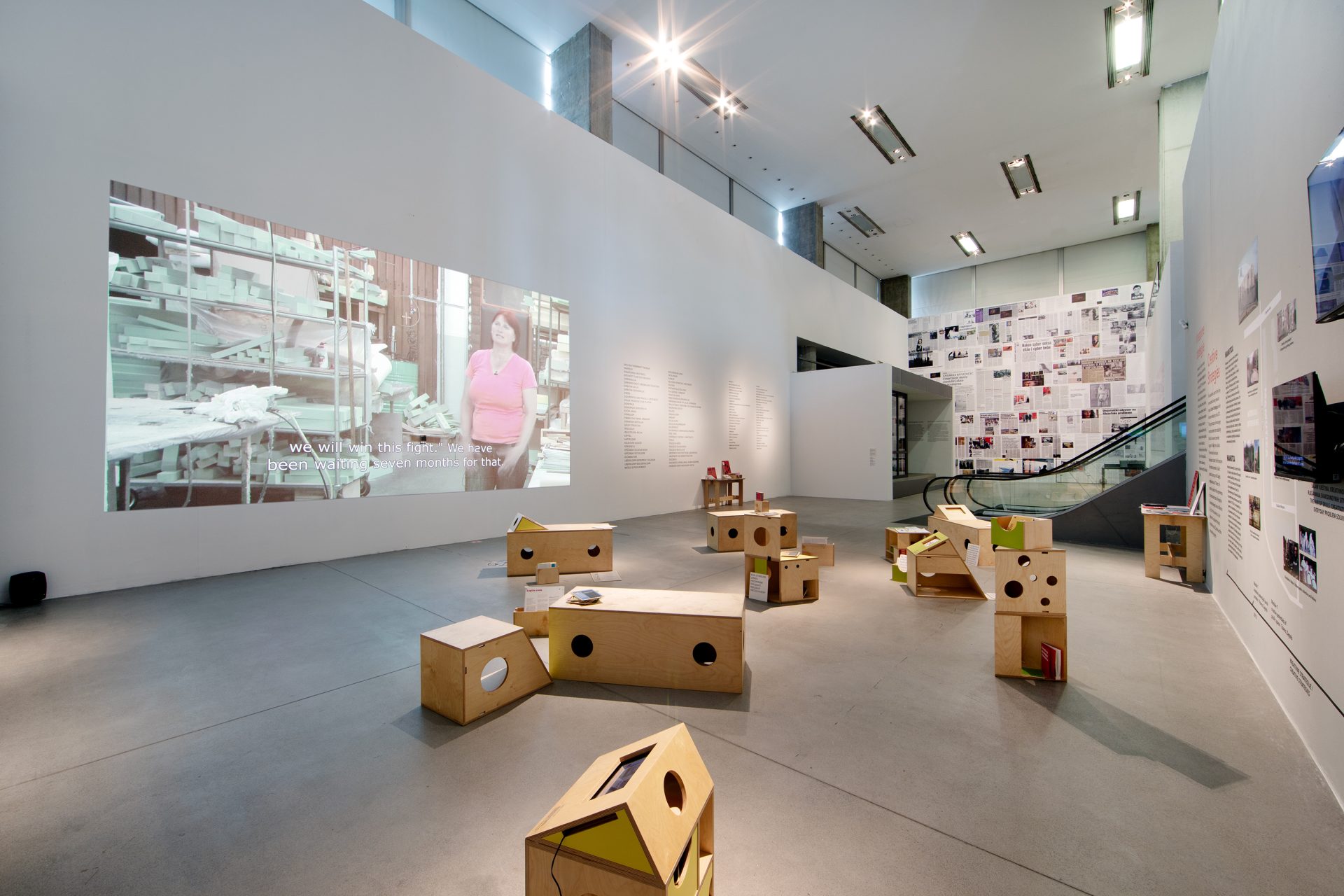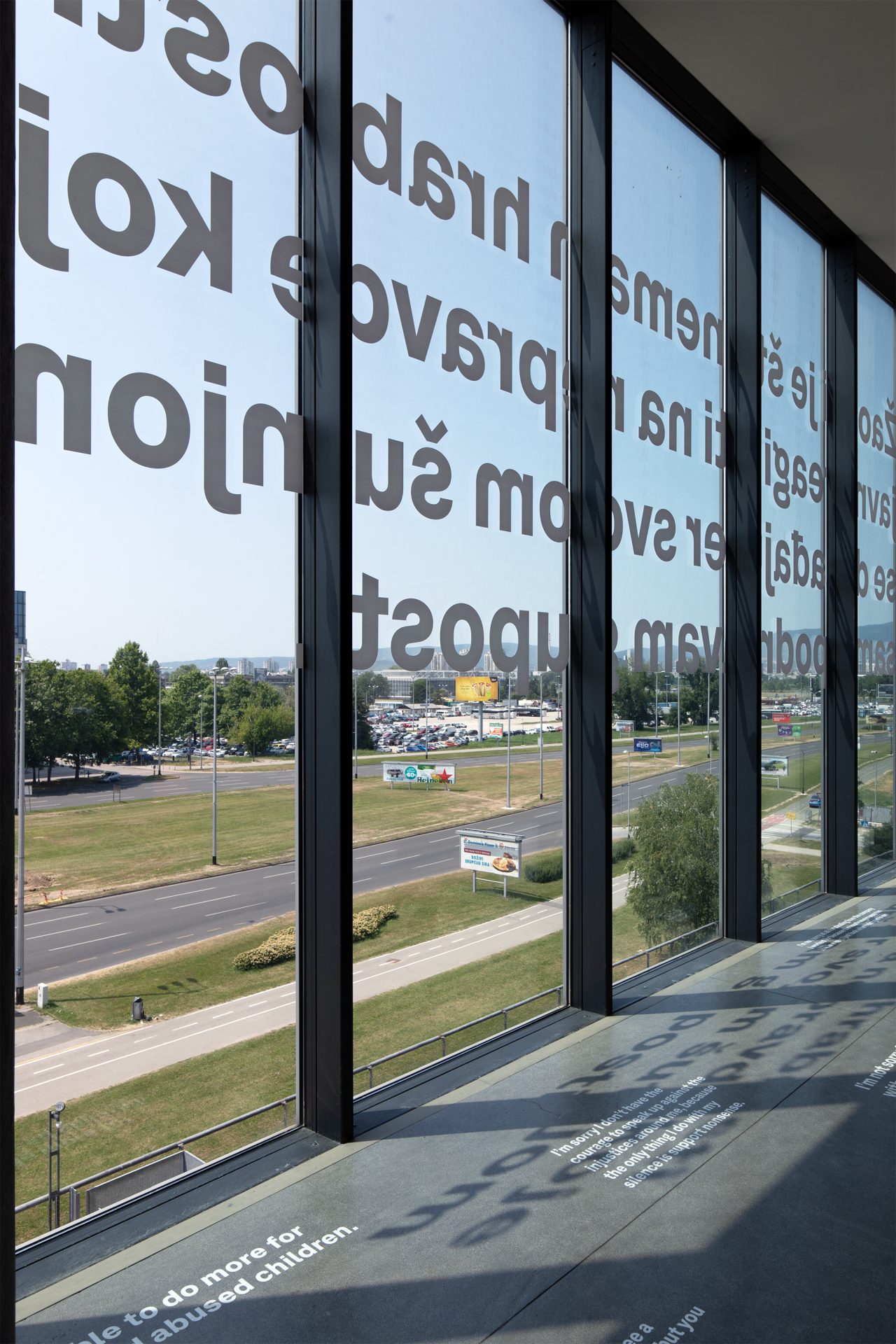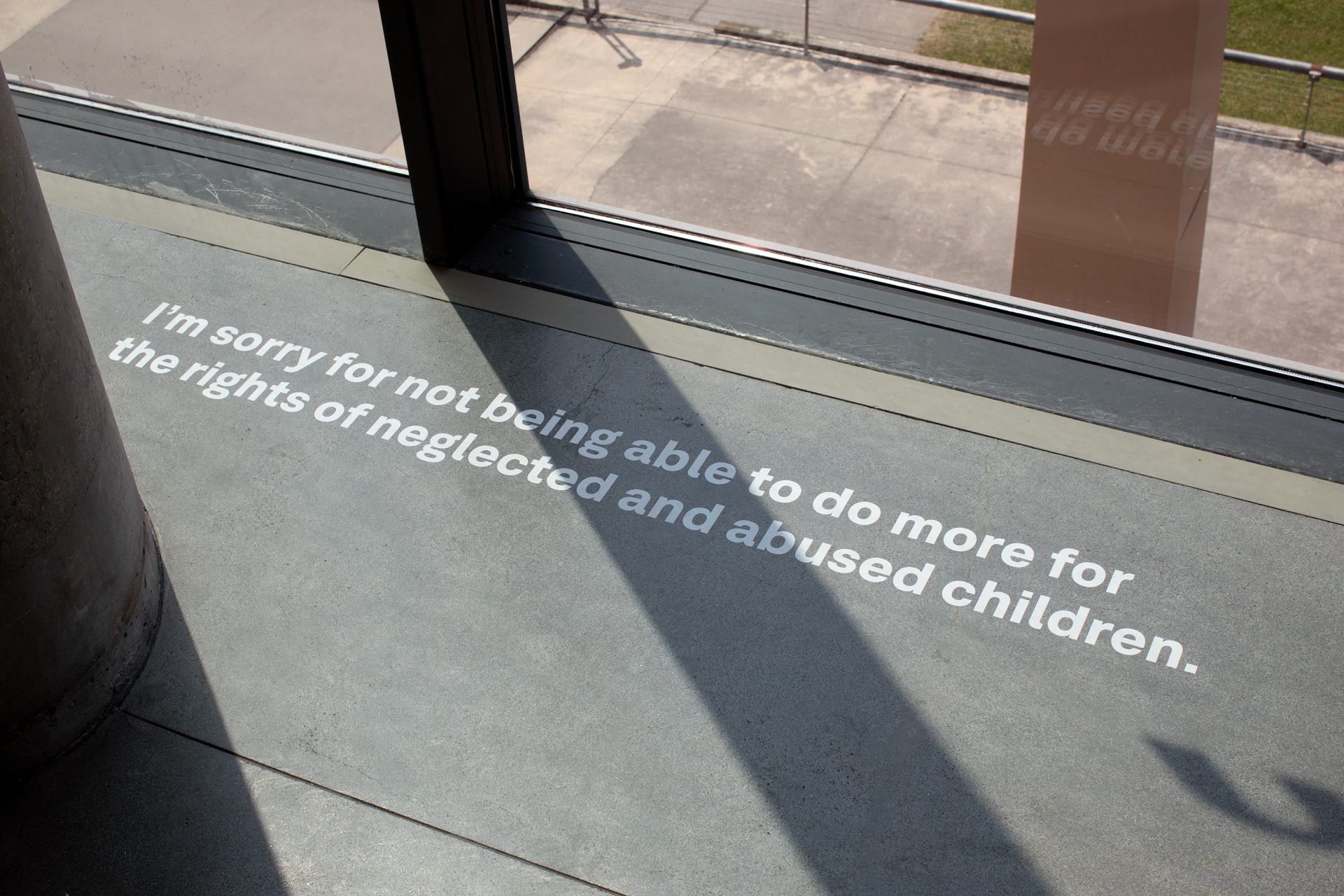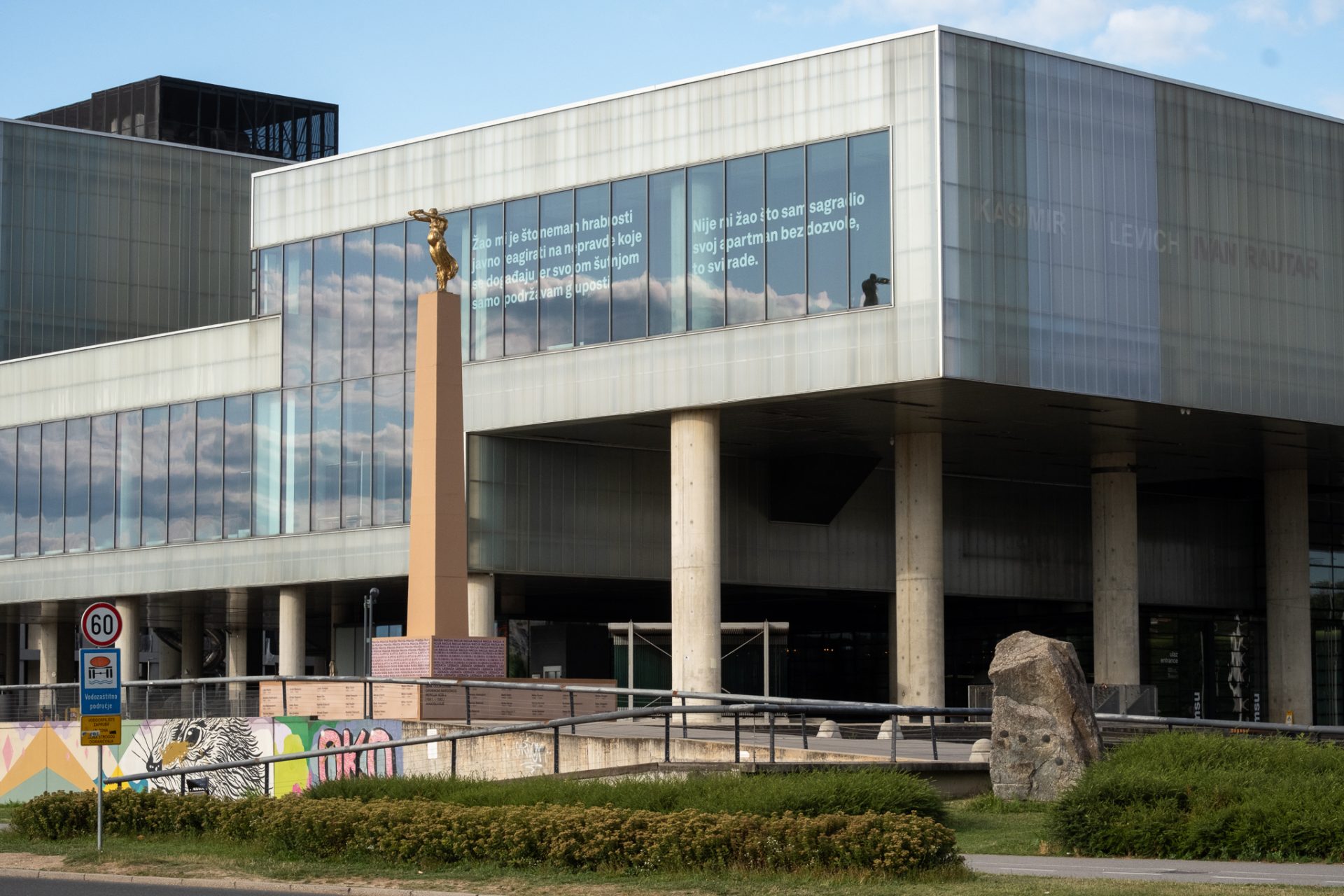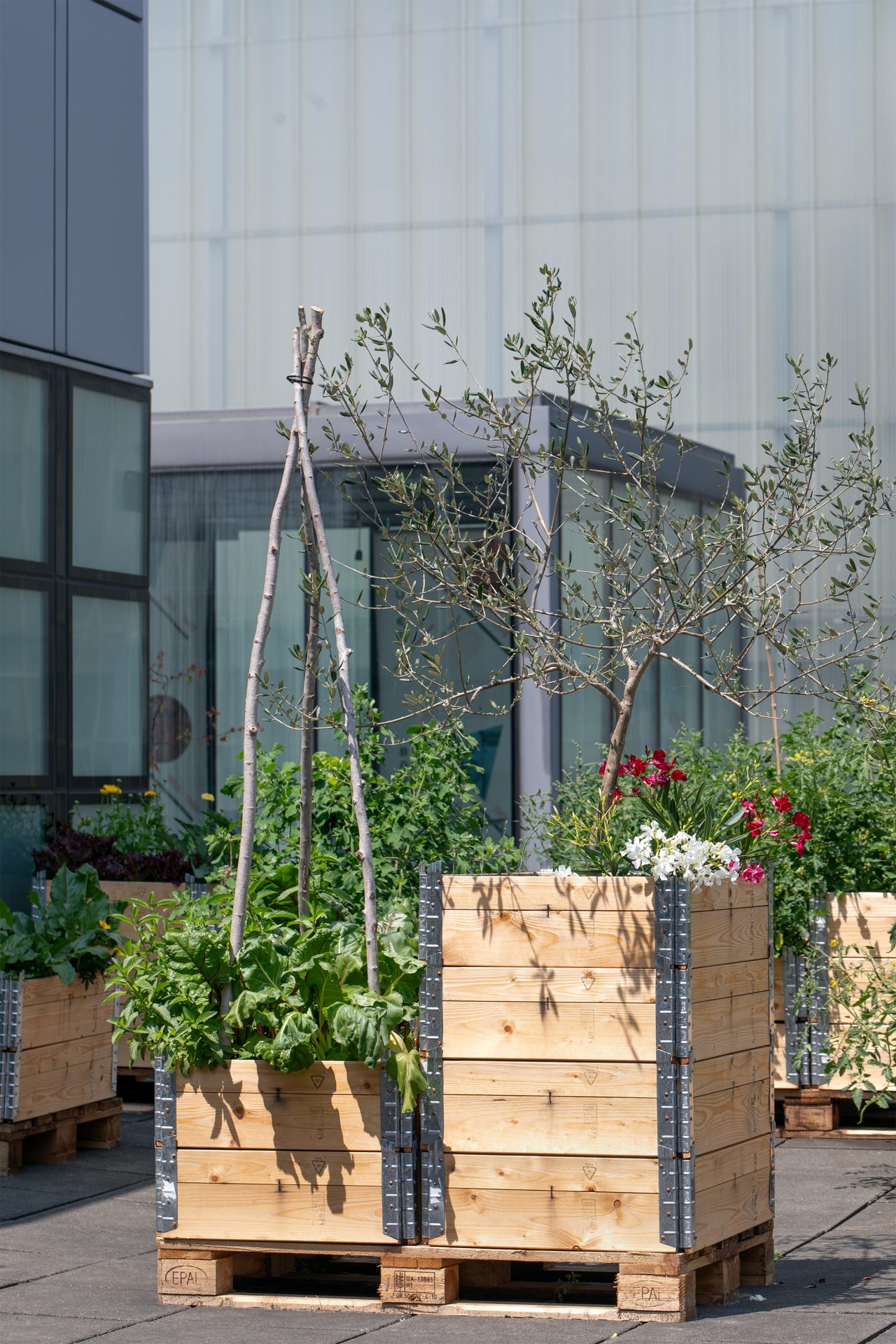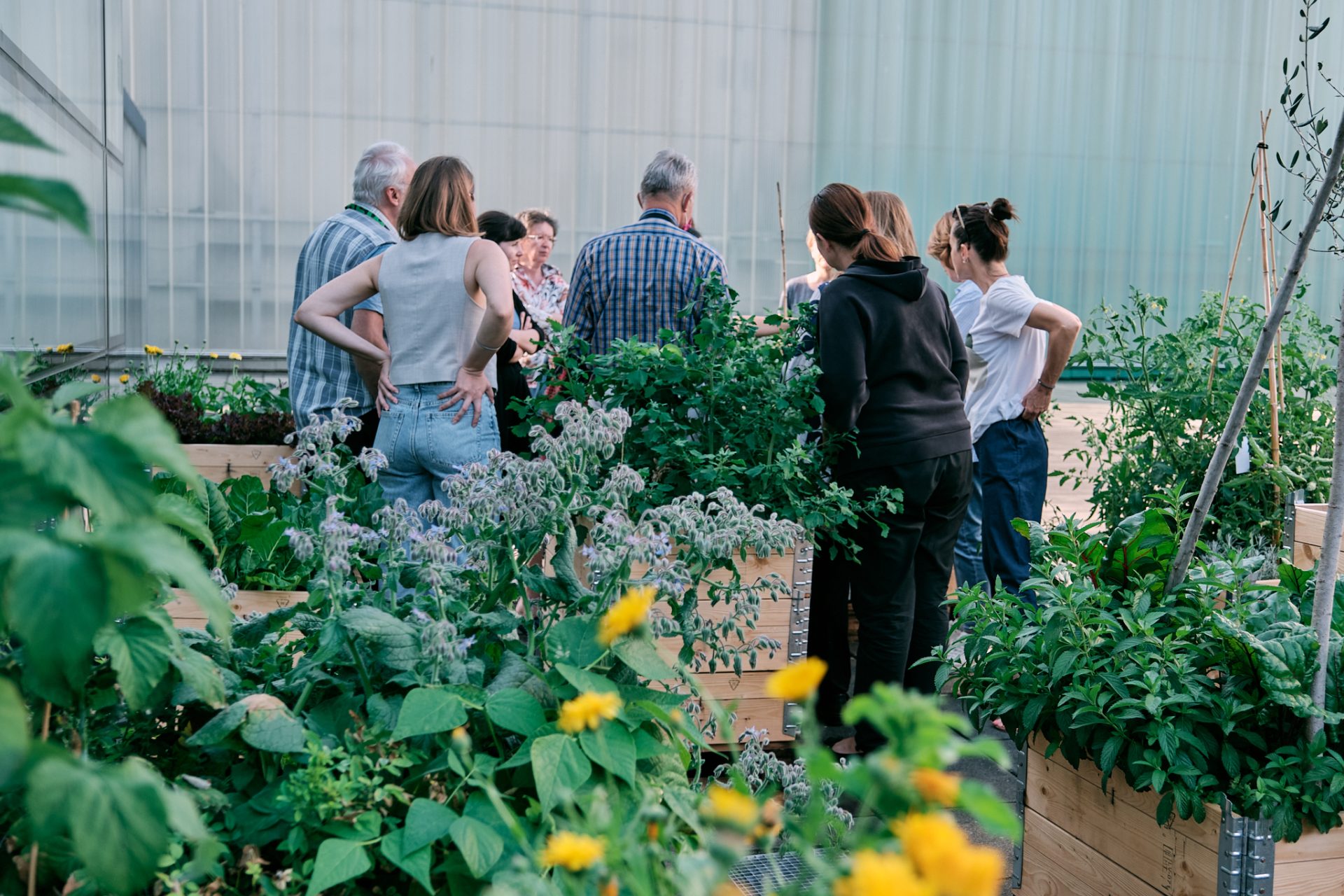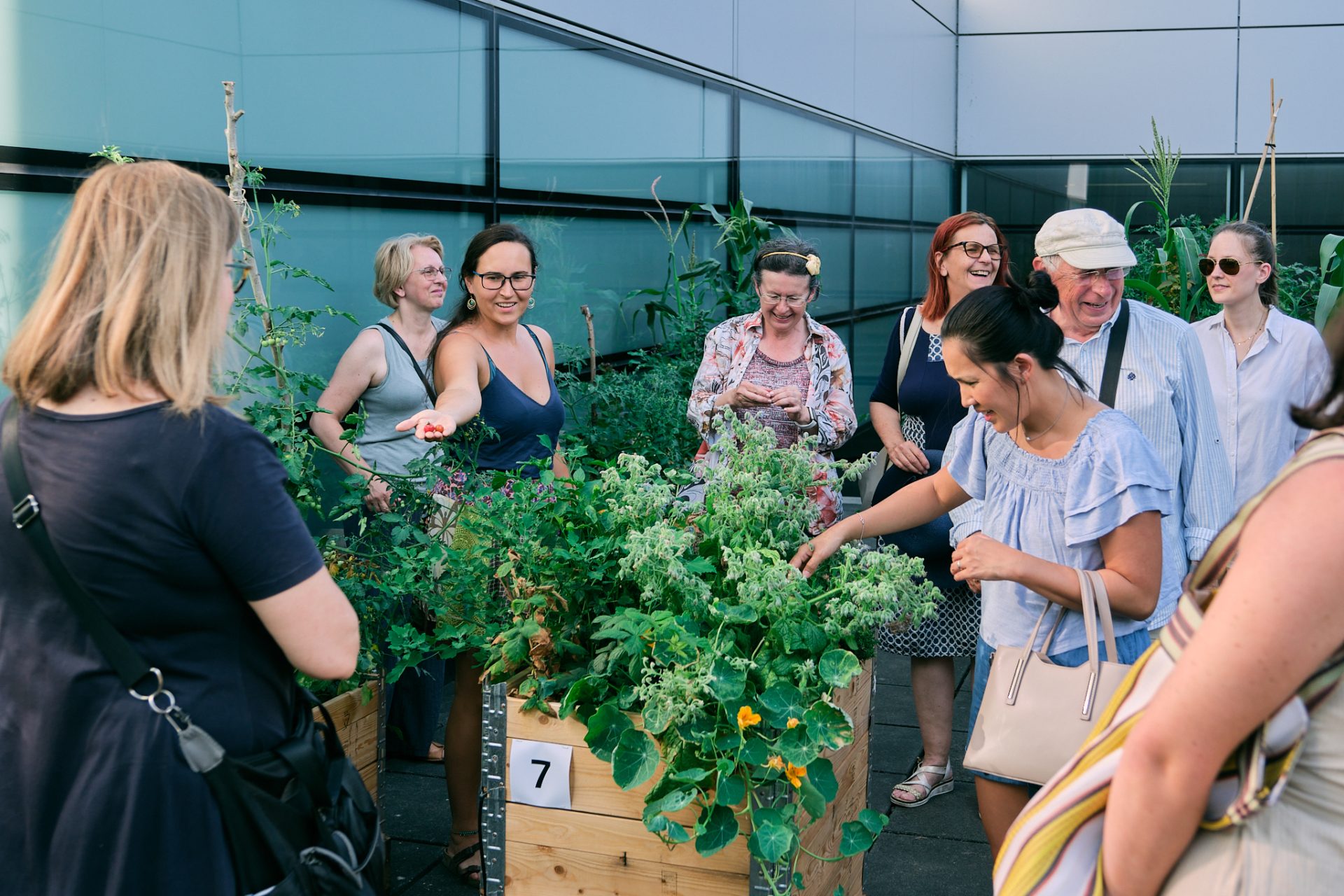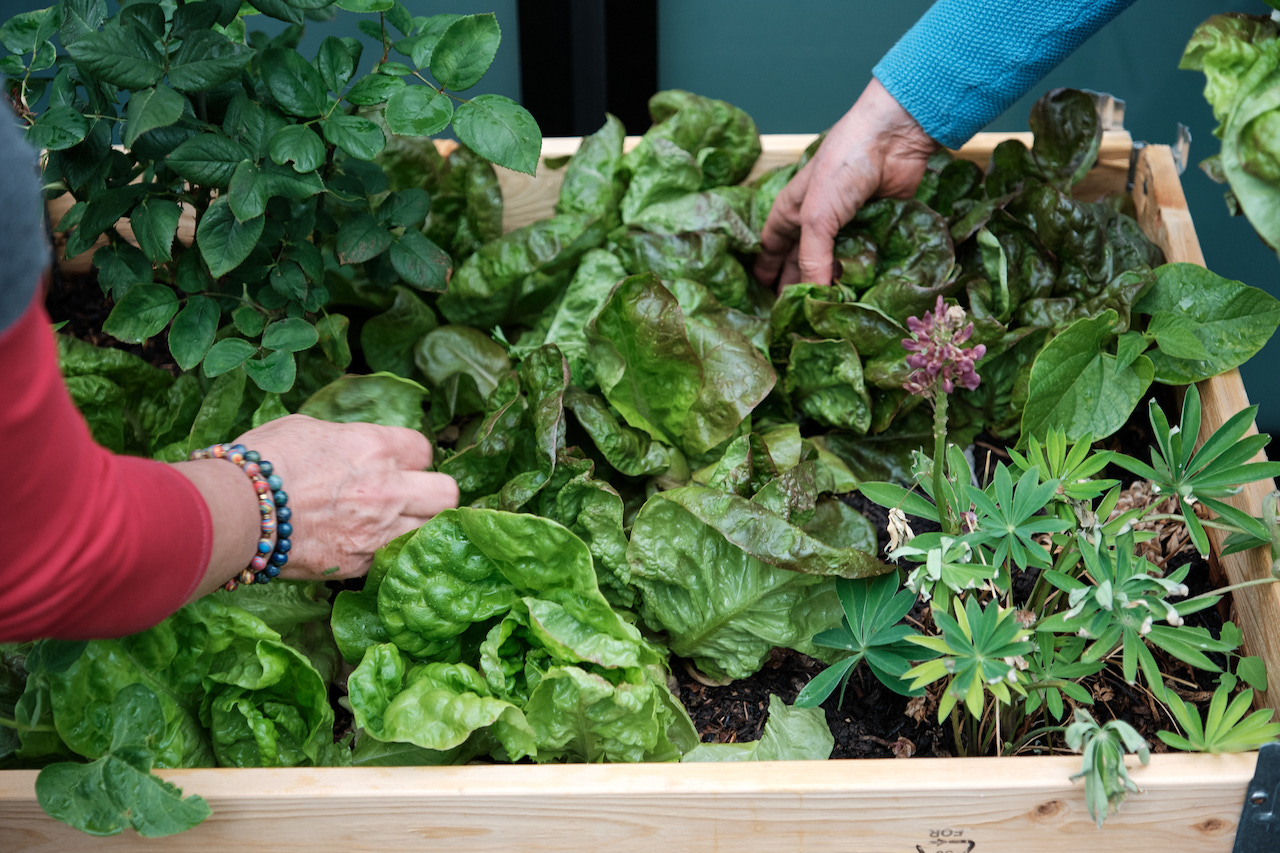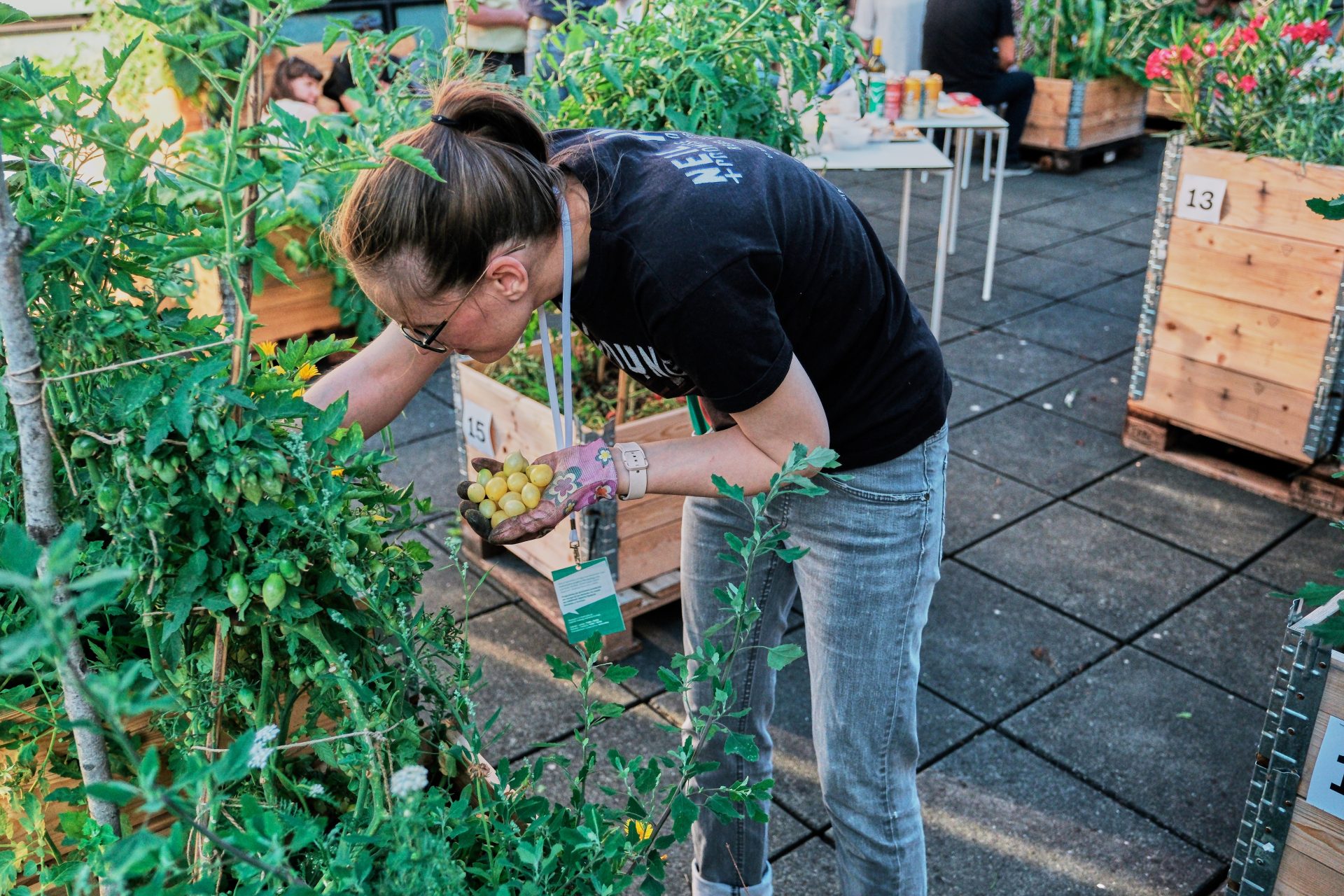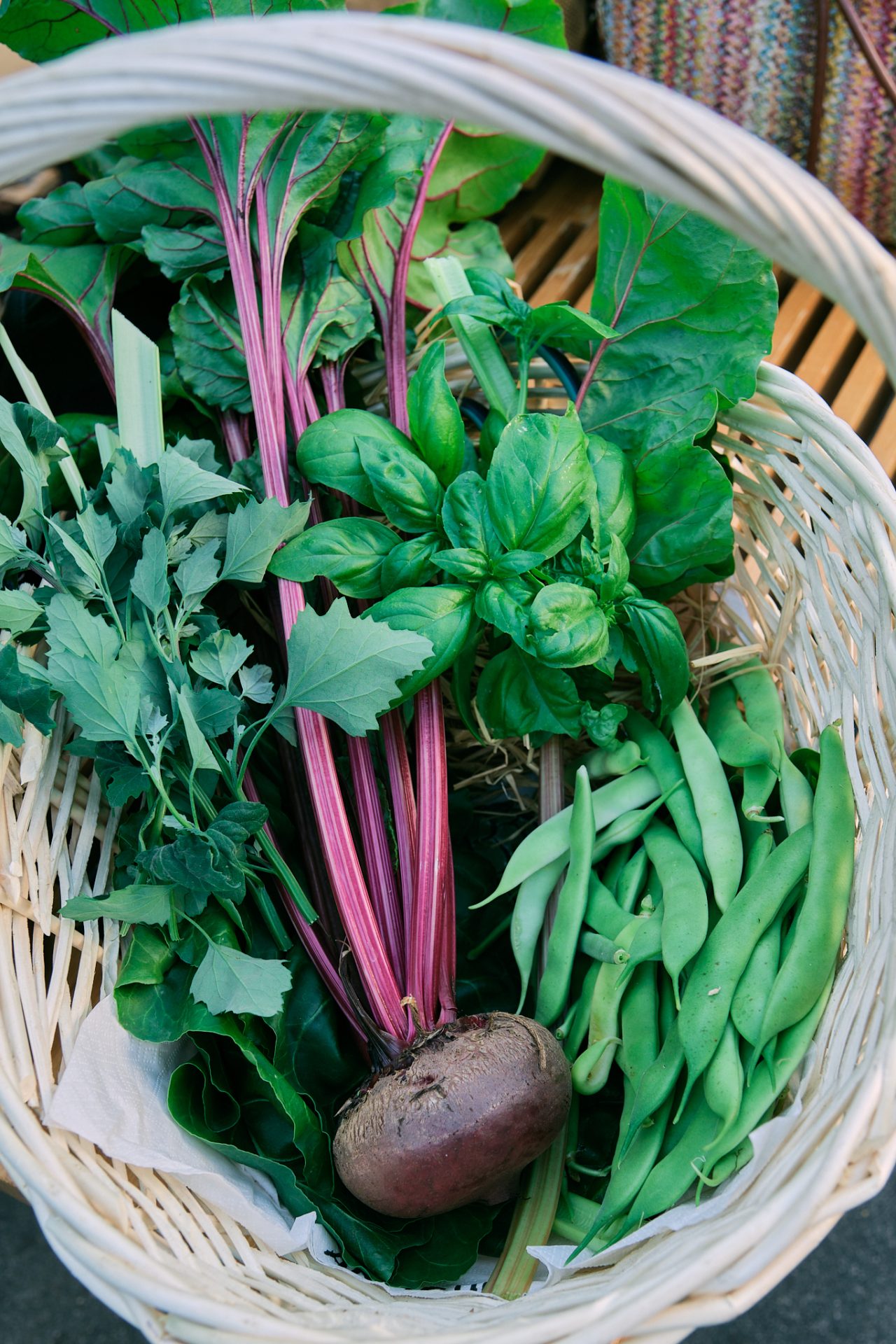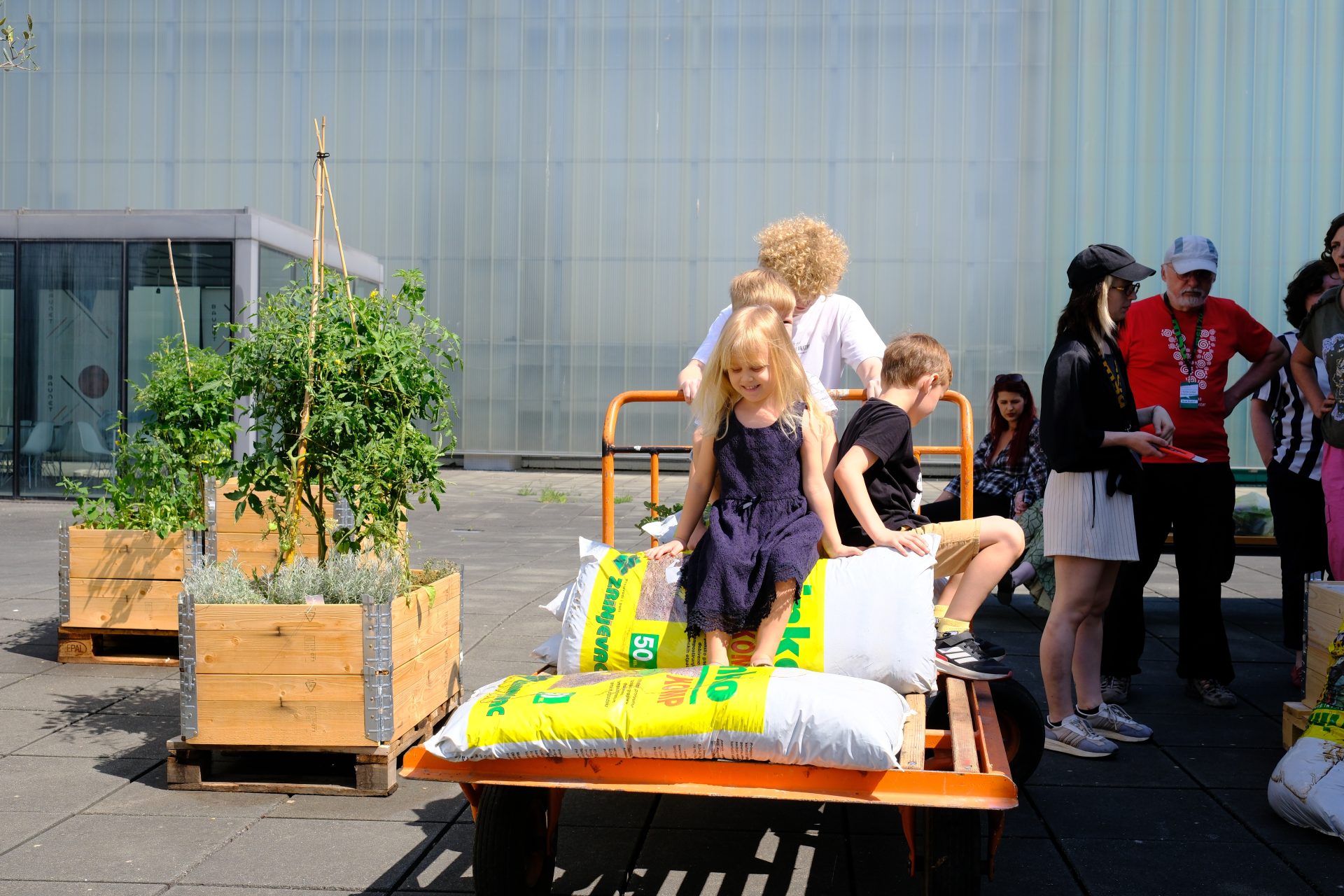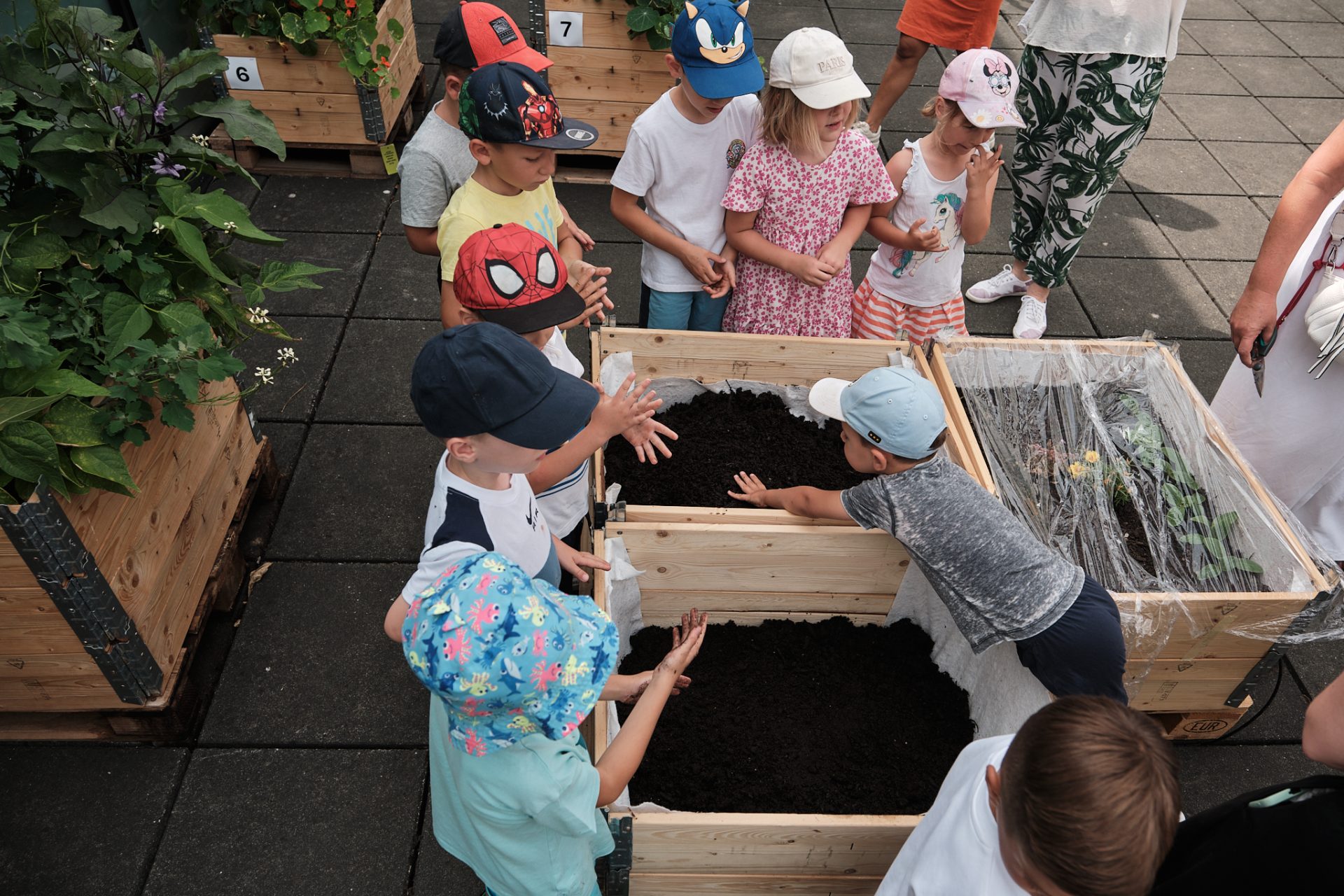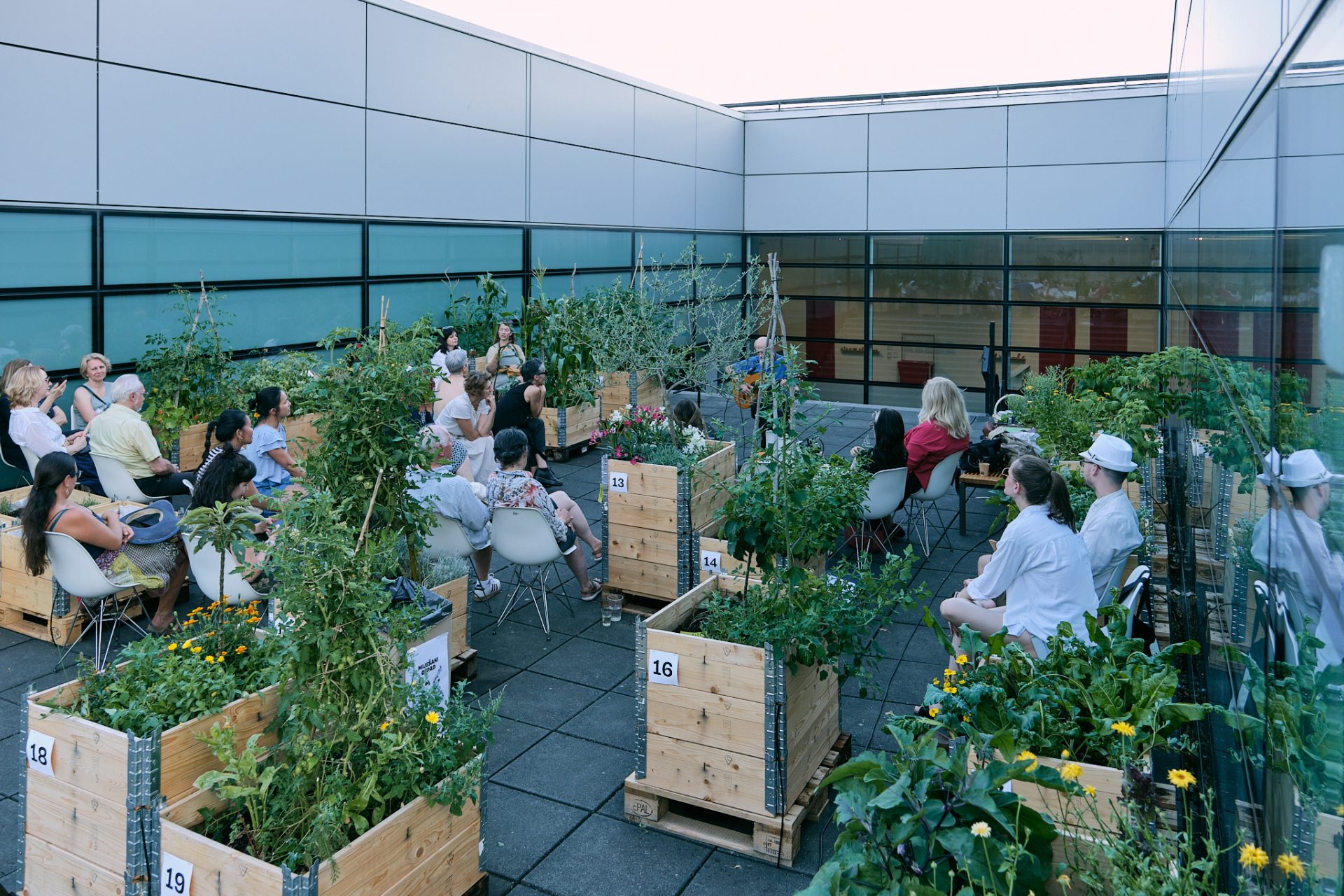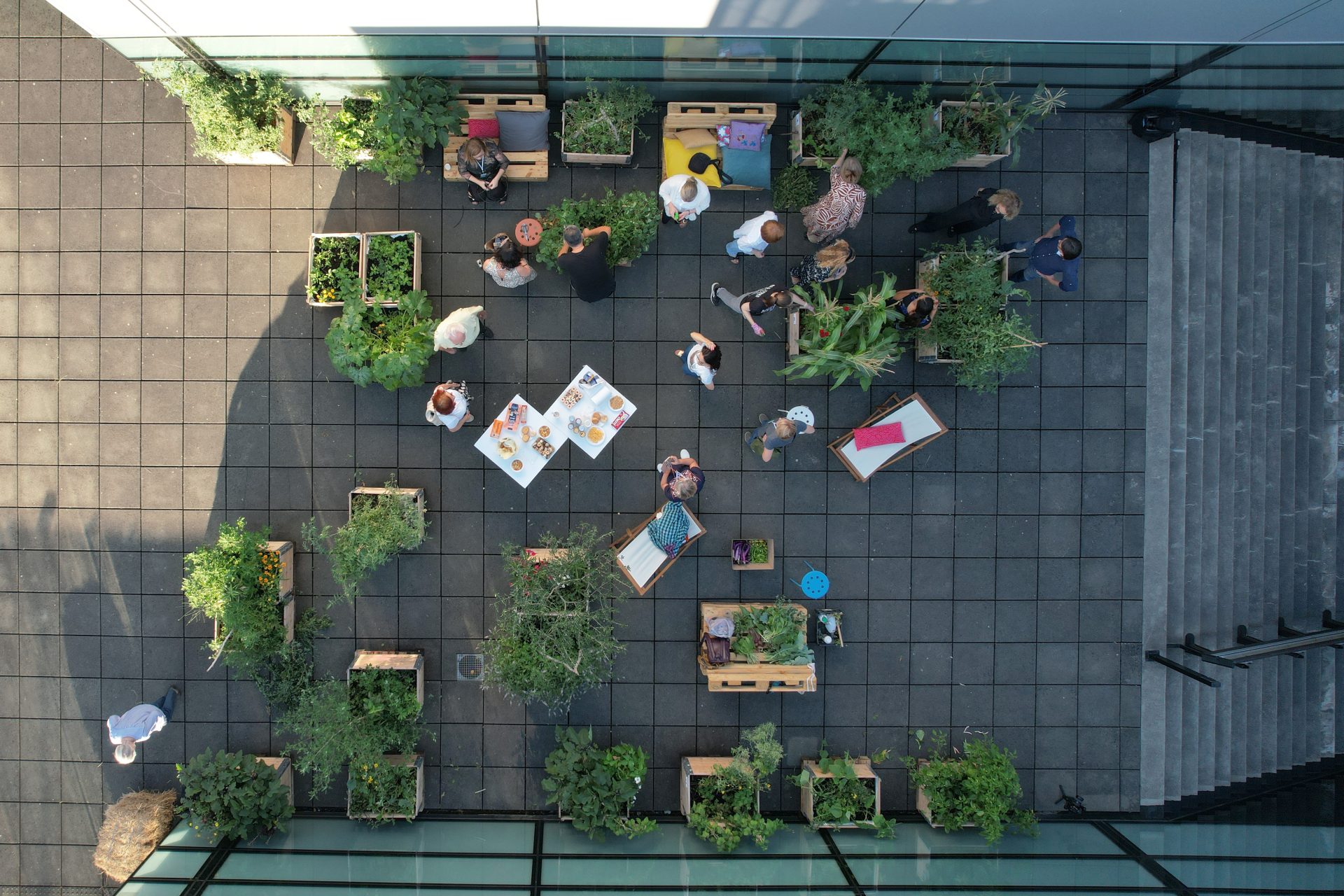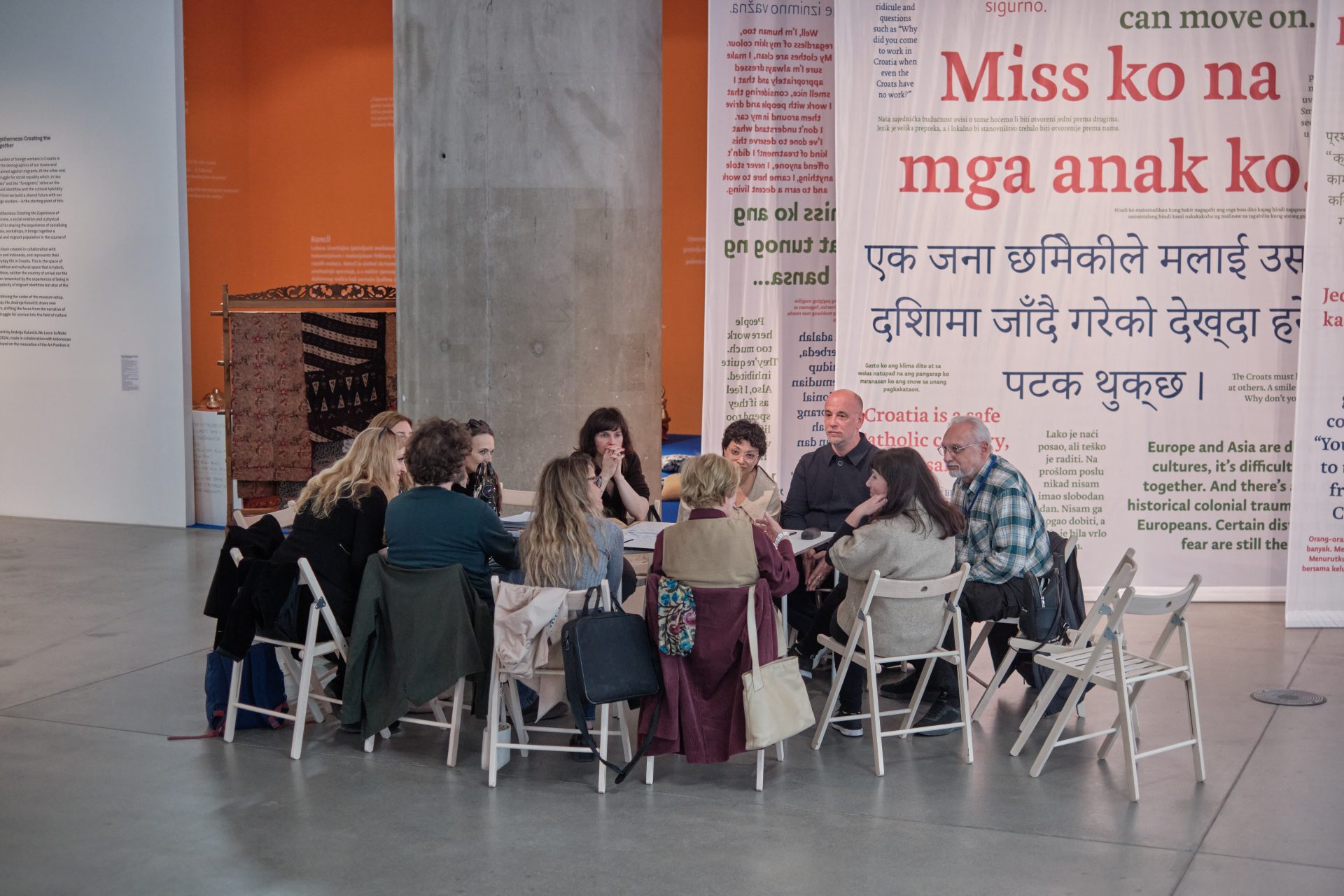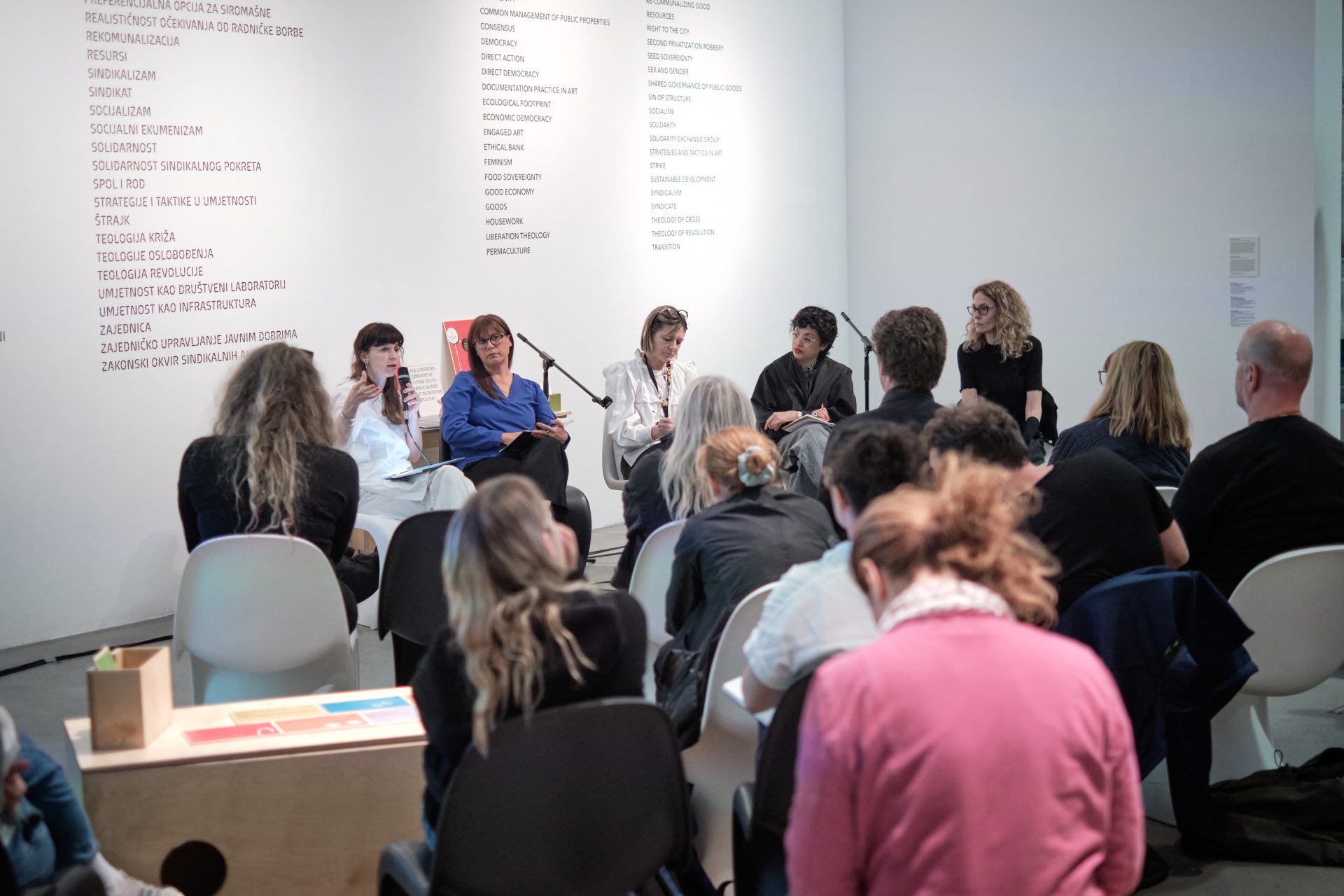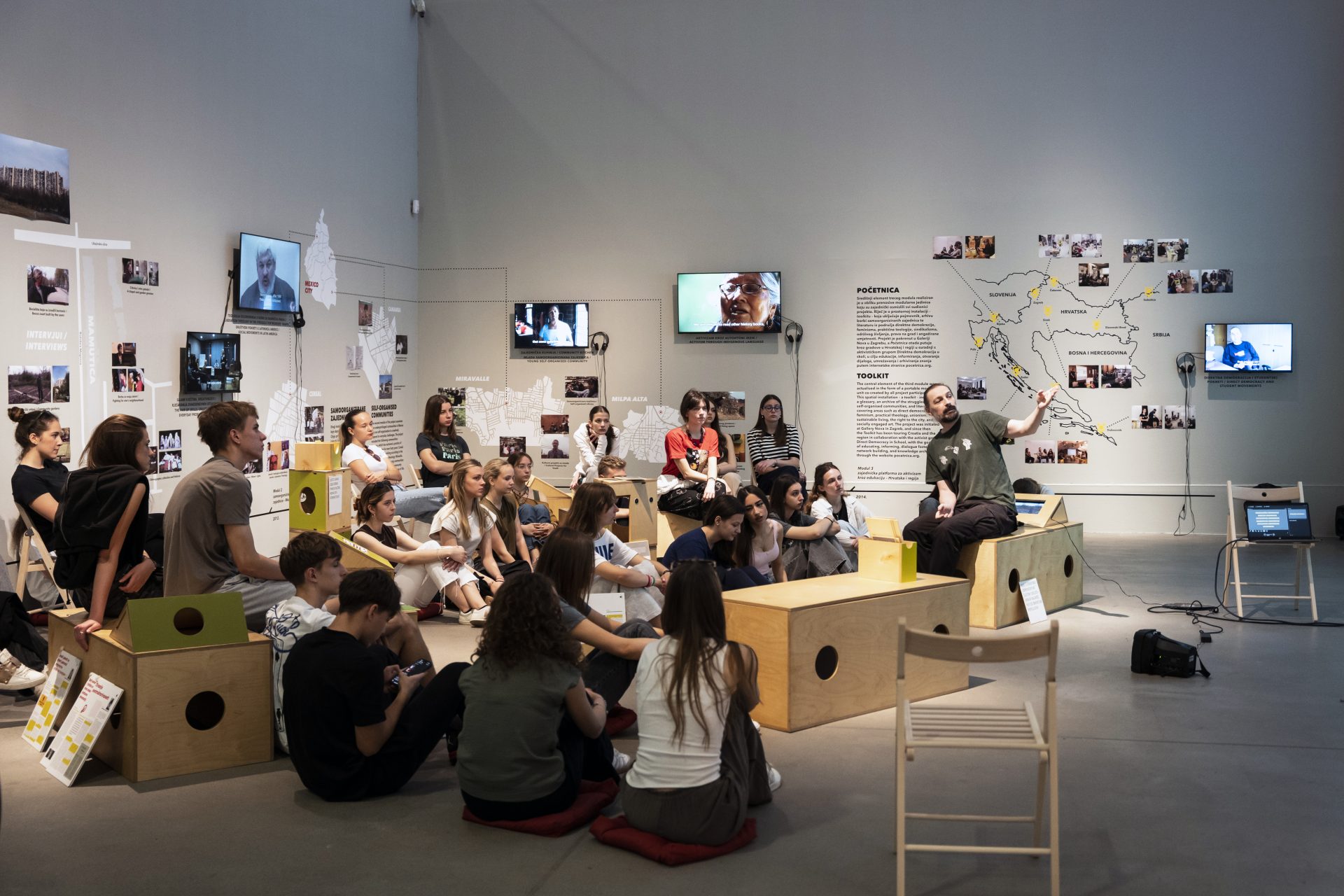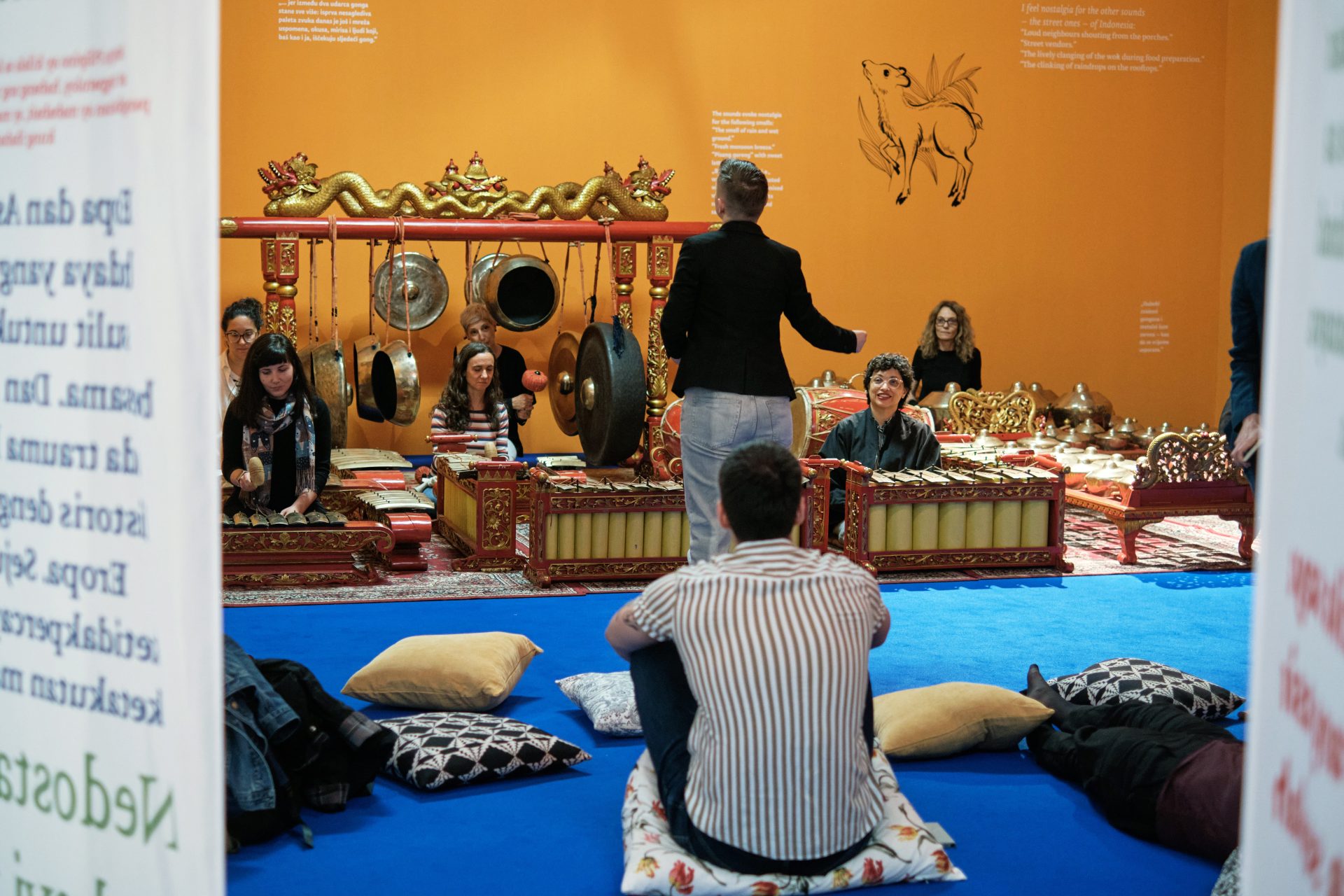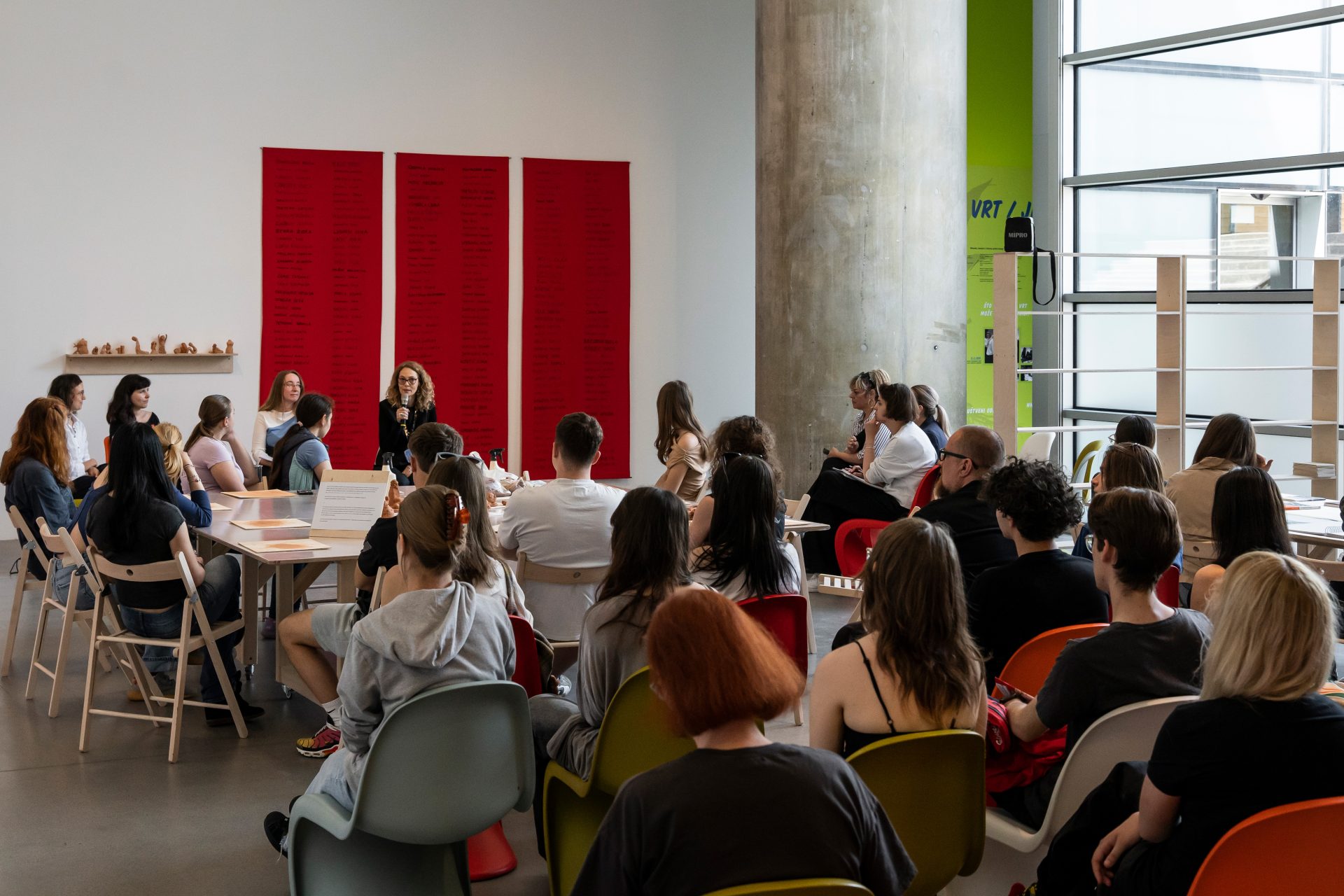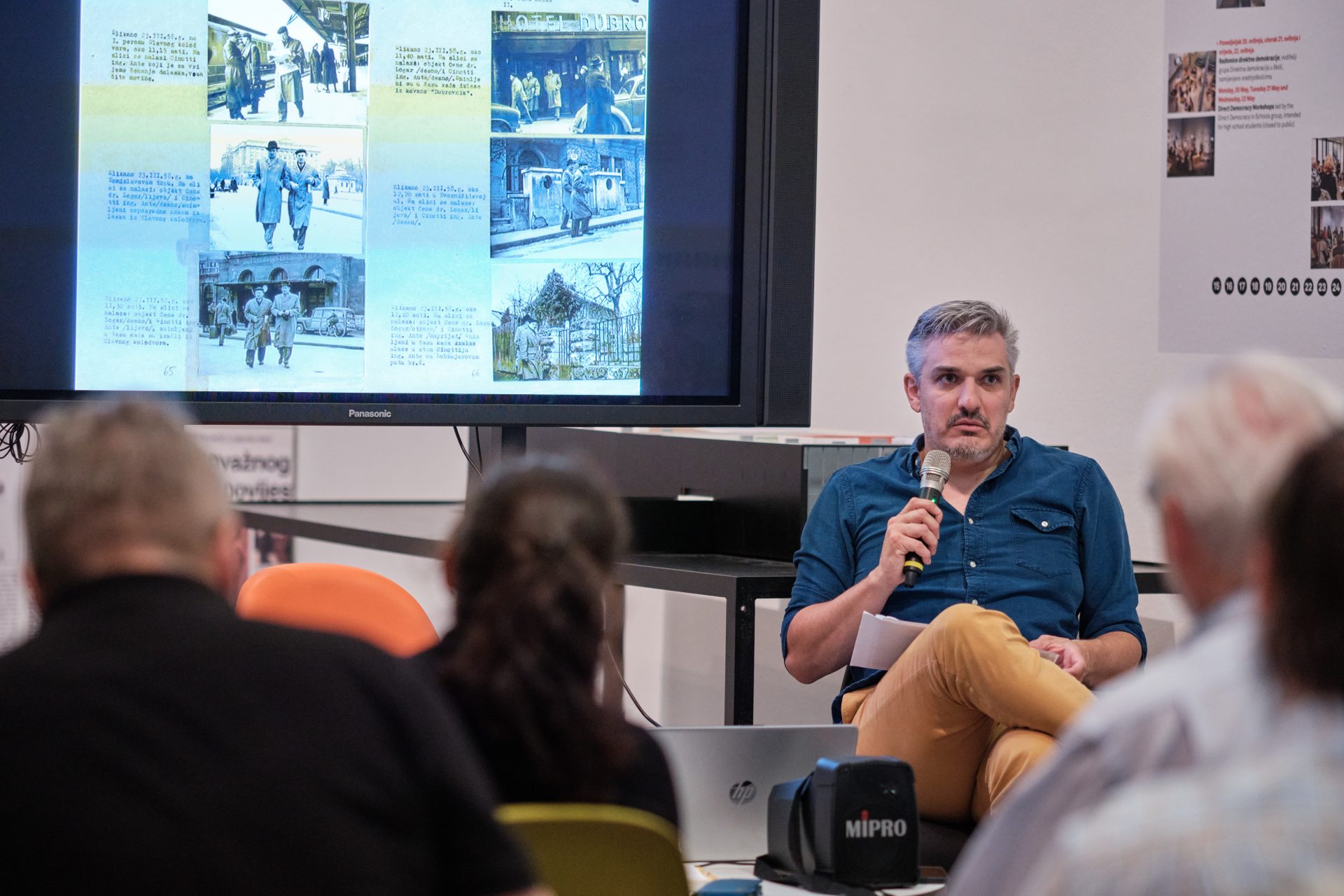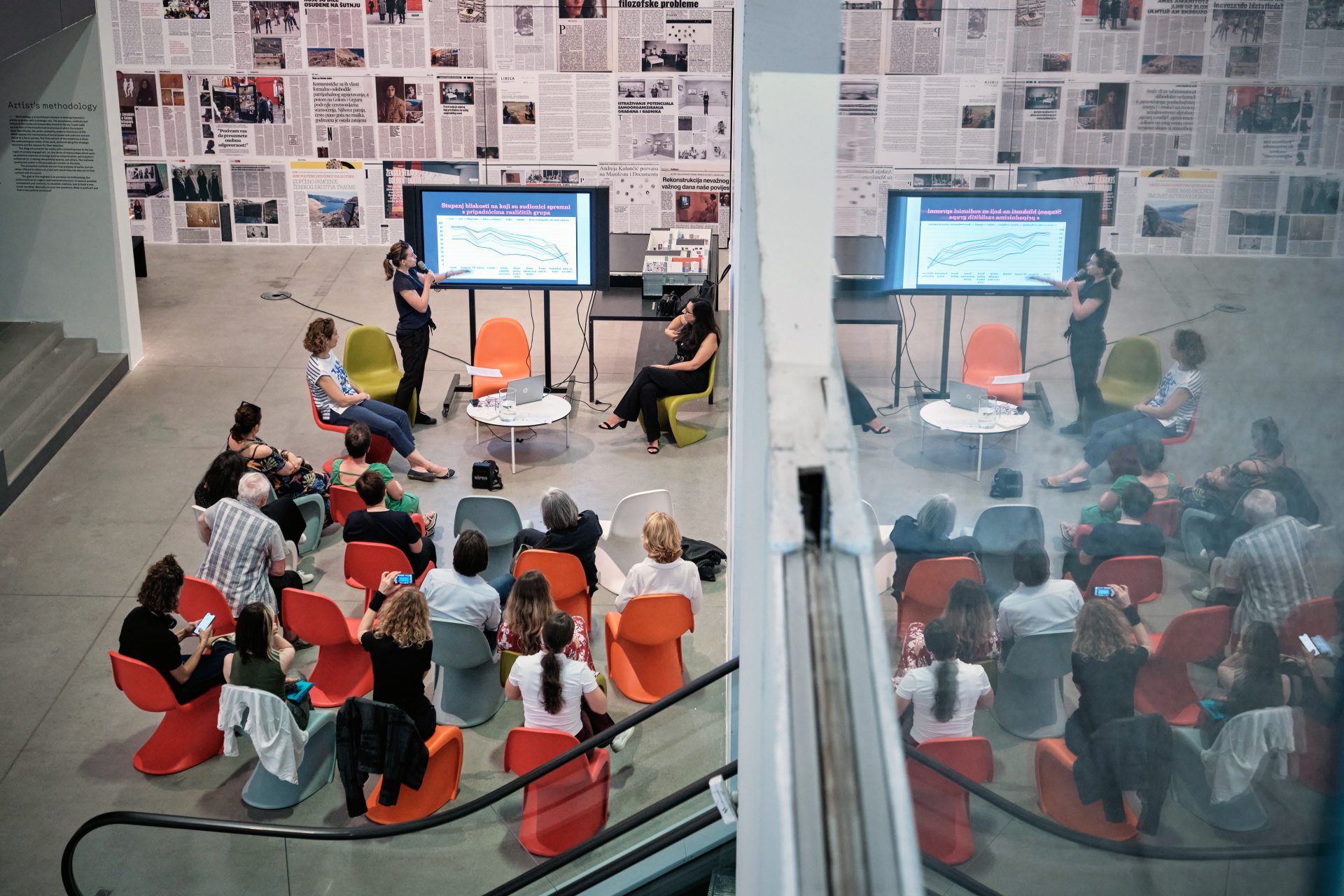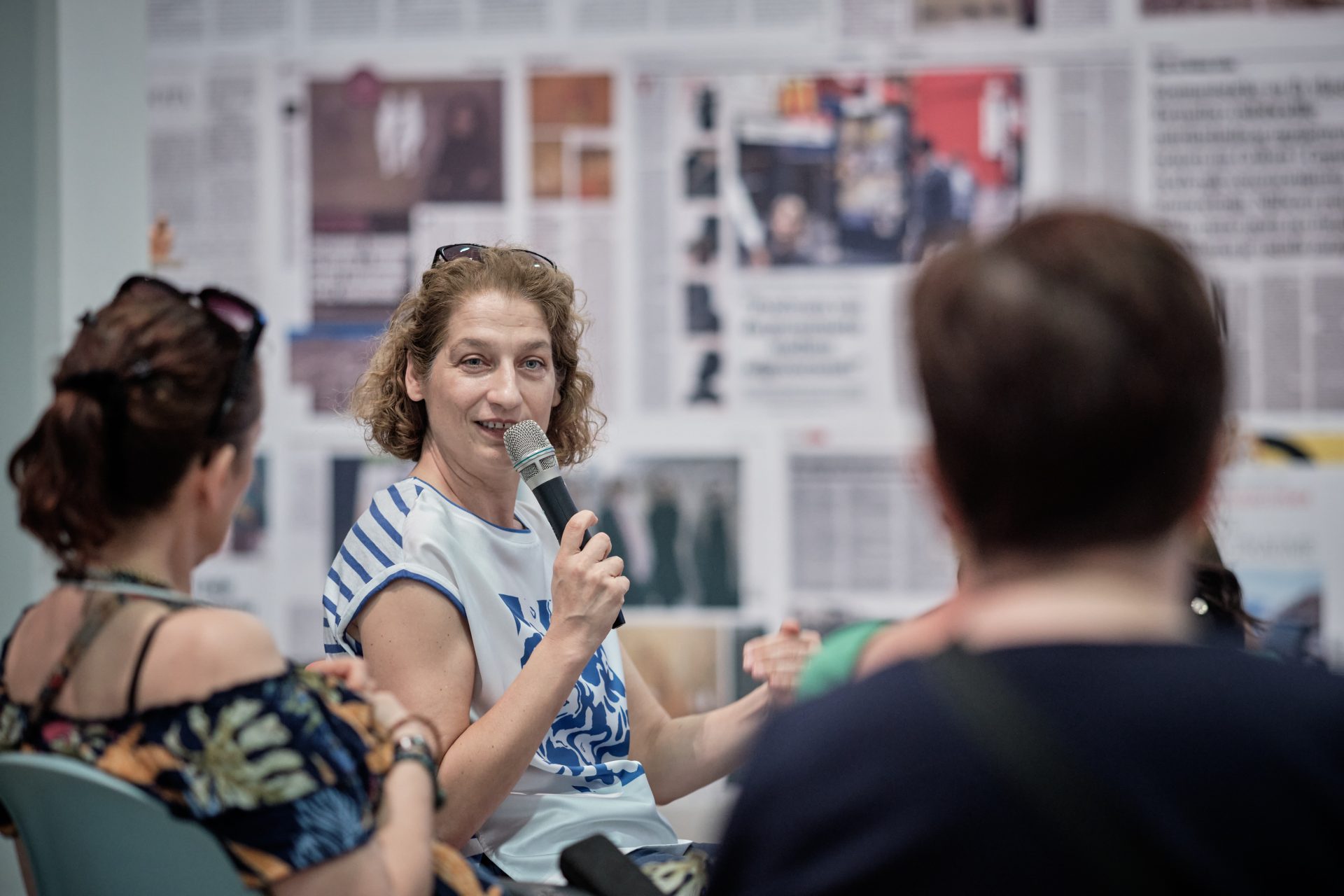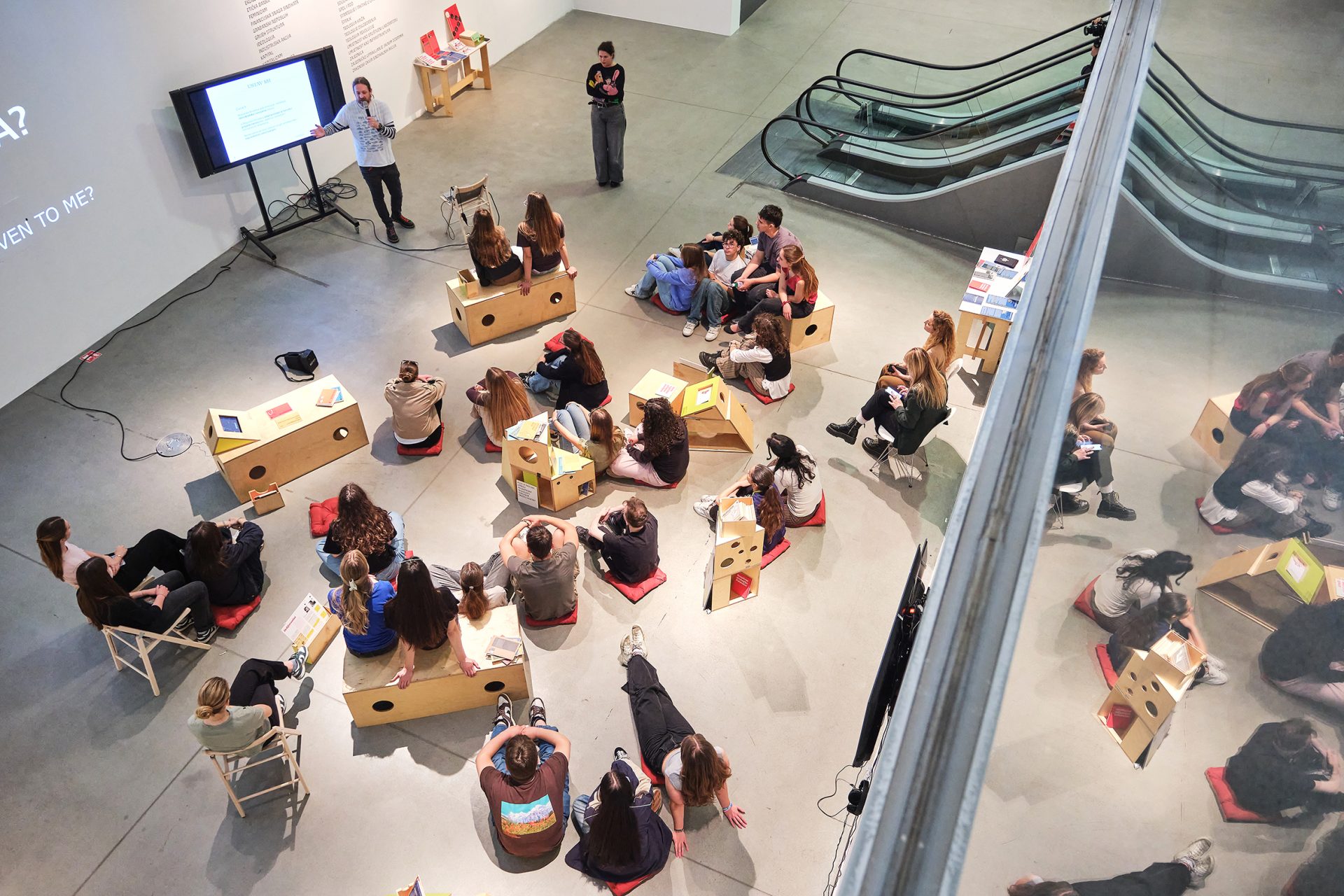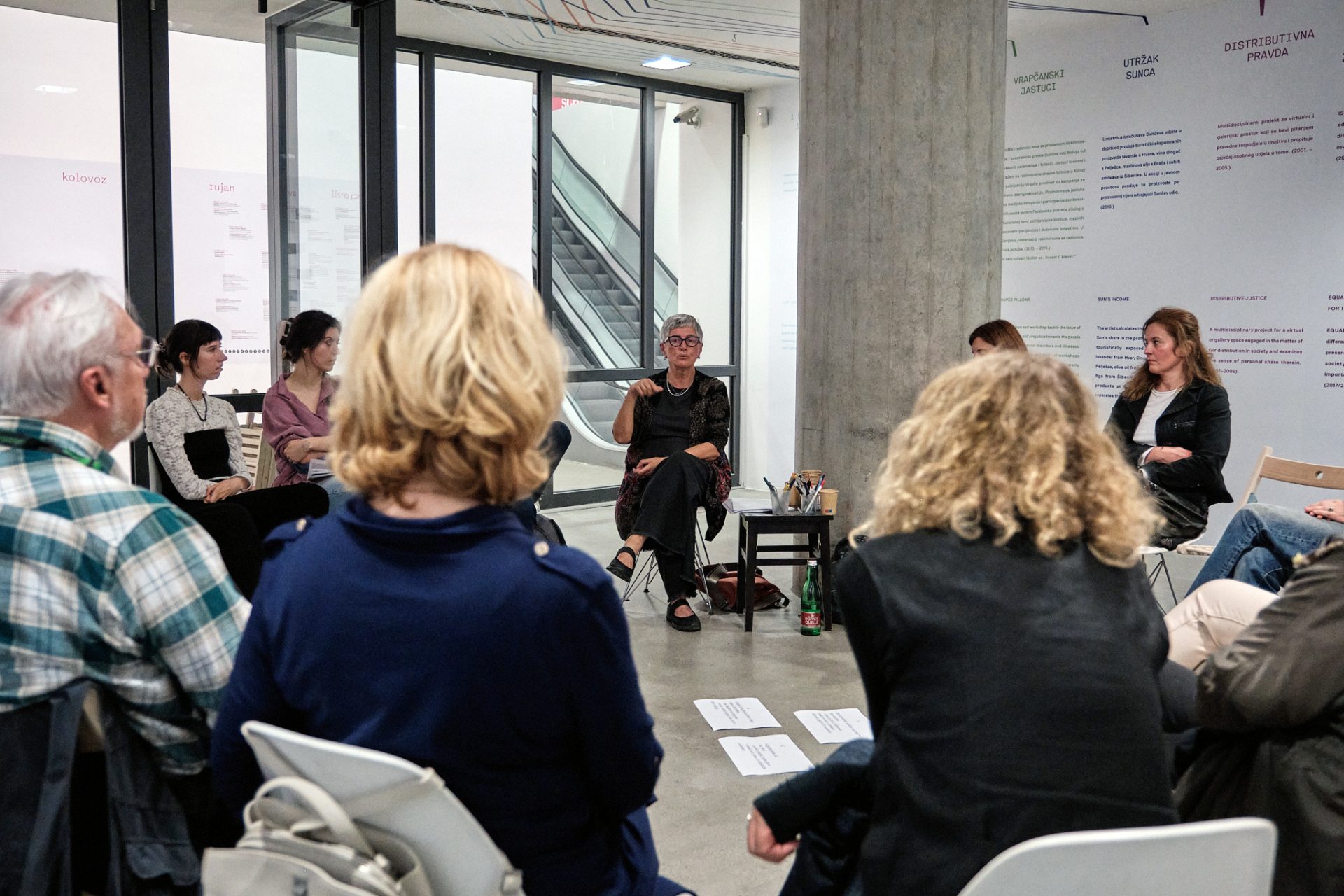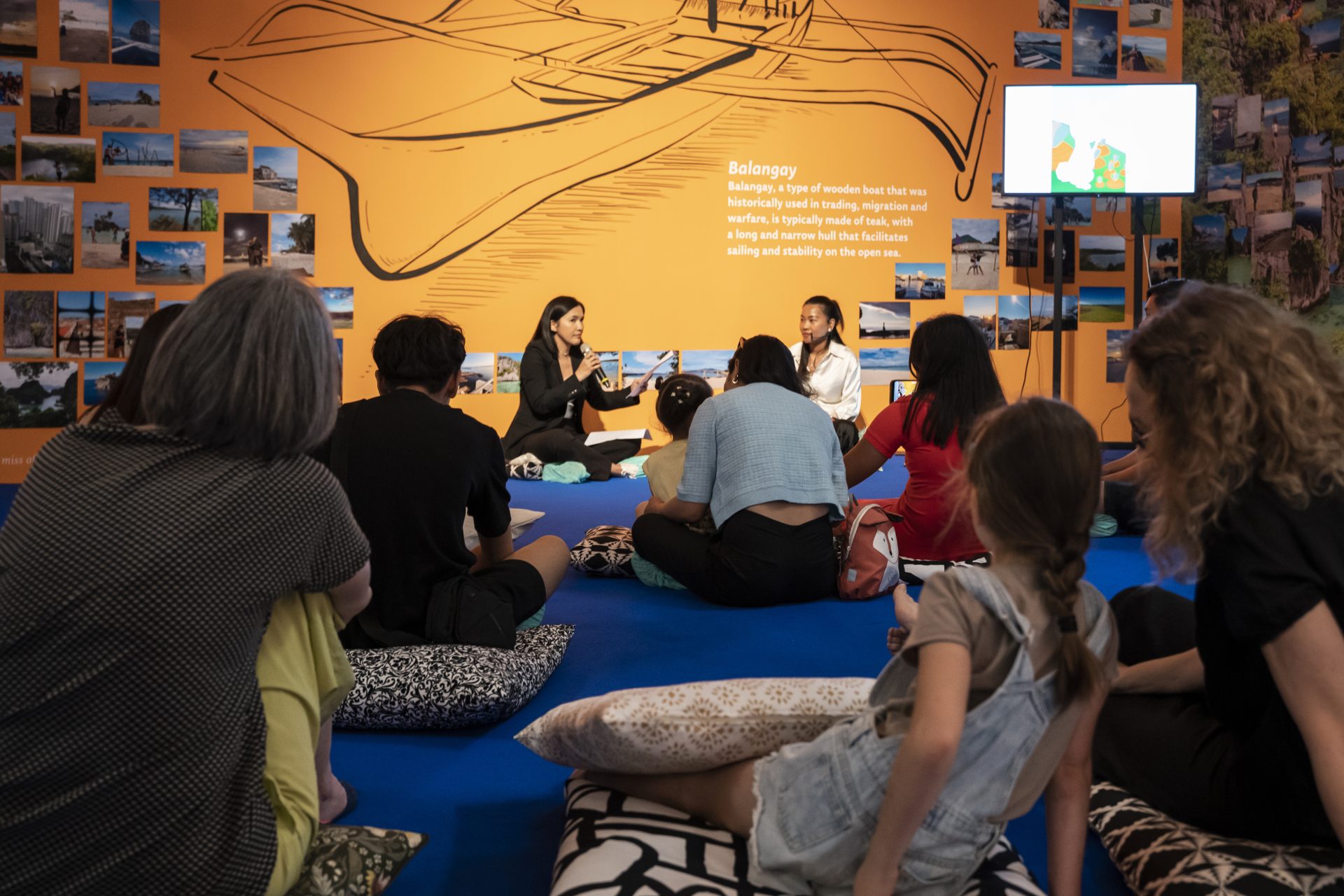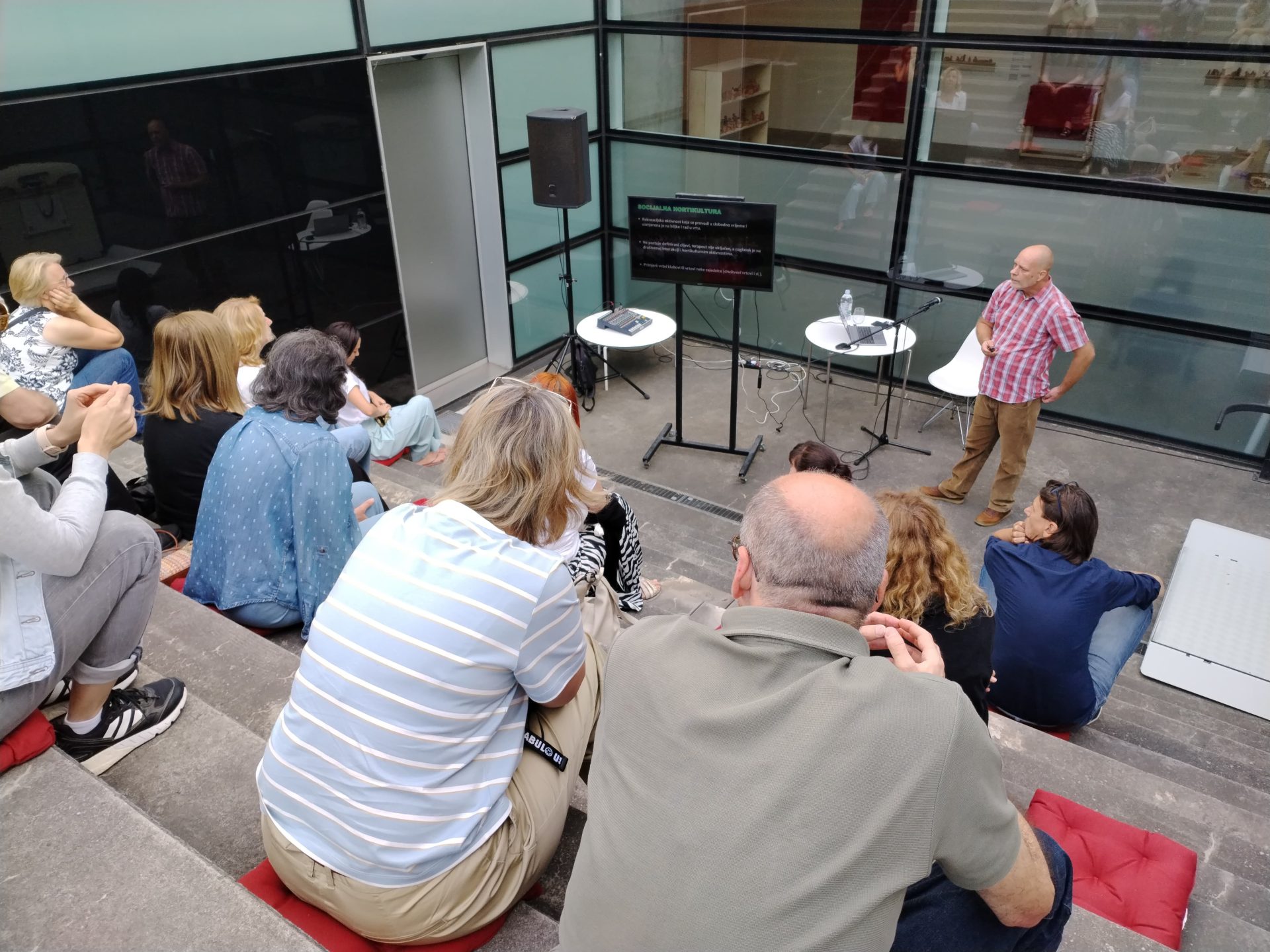“To Make the World a Better Place” – a retrospective exhibition at the MSU Zagreb
An exhibition that explores how art can change society through feminism, trauma, migration, and collective action.
15 May – 12 October 2025, Museum of Contemporary Art, Zagreb
Curator: Martina Munivrana
Curatorial research and collaboration: Irena Bekić (Croatia), Amanda de la Garza Mata (Mexico), Anca Verona Mihulet (Romania / South Korea), and Katharina Schlieben (Germany)
The exhibition To Make the World a Better Place presents the first solo retrospective of Andreja Kulunčić in Croatia, offering an overview of thirty years of her socially engaged artistic practice. Held at the Museum of Contemporary Art in Zagreb, the exhibition is structured around five thematic units – feminism, trauma, migration, self-organization, and the methodological framework of the artist’s practice – and provides insight into the developmental phases of her work, as well as showcasing new pieces produced specifically for this occasion.
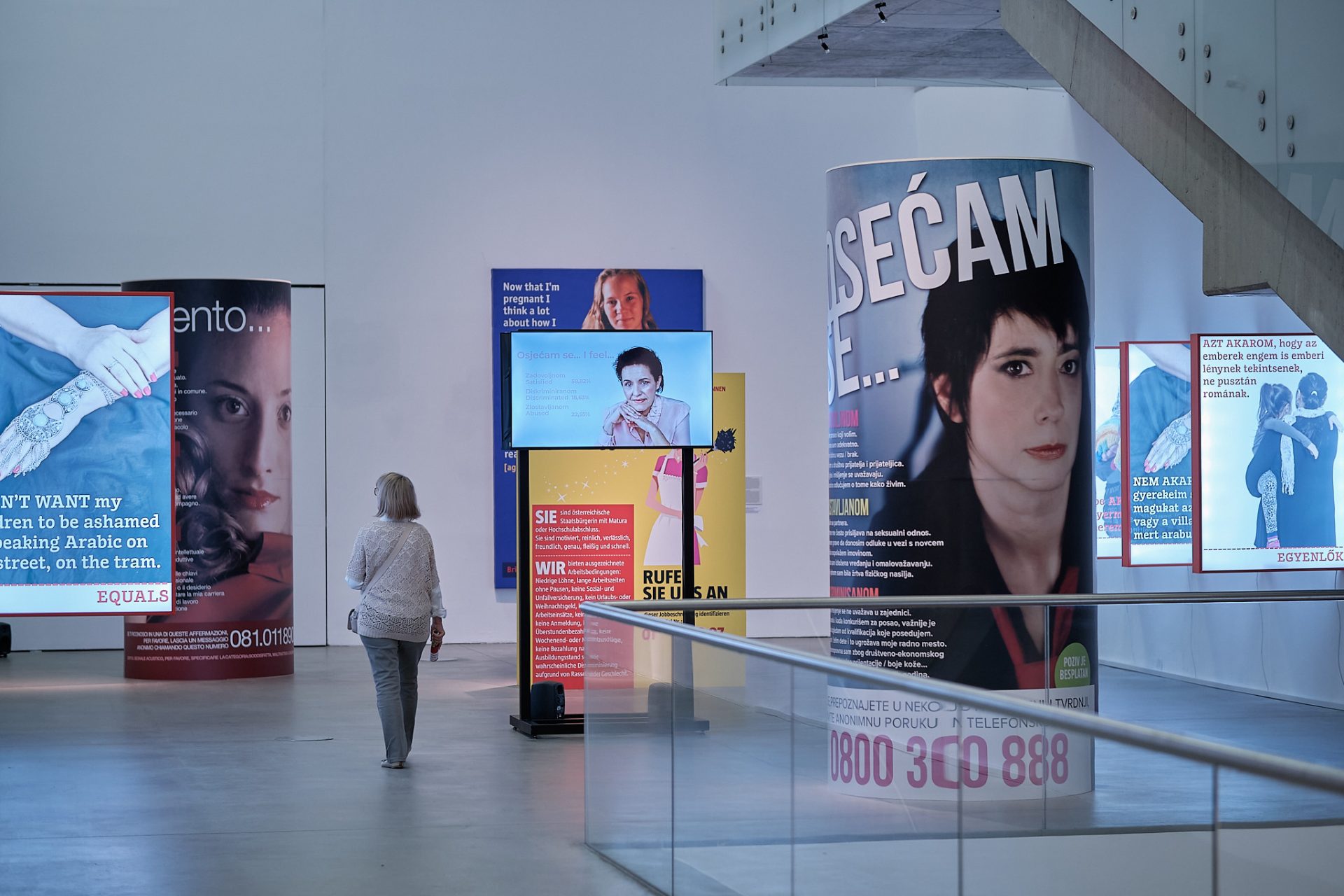
The works presented in the exhibition address issues of social injustice, exclusion, and repression, but also explore solidarity, collectivity, and the imagination of new models of togetherness.
The exhibition does not aim to provide a linear overview, but rather opens up a space for reflecting on the role of art as a tool for action and the creation of new relationships.
The exhibition setup, co-created by Andreja Kulunčić and the exhibition curator Martina Munivrana (MSU, Zagreb), is conceived as a dynamic social space that includes participatory and educational segments, intercultural programs, and collaboration with the local community.
The exhibition features the following projects: women.index, EQUALS– For the Acceptance of Diversity, You Betrayed the Party Just When You Should Have Helped It, We Learn to Make Space for Everyone, 1 CHF = 1 VOICE, Sight.seeing, Austrians Only, Bosnians Out!, On the State of the Nation, Creative Strategies, I’m Sorry… I’m Not Sorry, NAMA: 1,908 Employees, 15 Department Stores, Teenage Pregnancy, as well as three new works: Museum Garden / Edible Museum, Micro-situations of Togetherness: Creating the Experience of Being Together, and Meeting the Social Self.
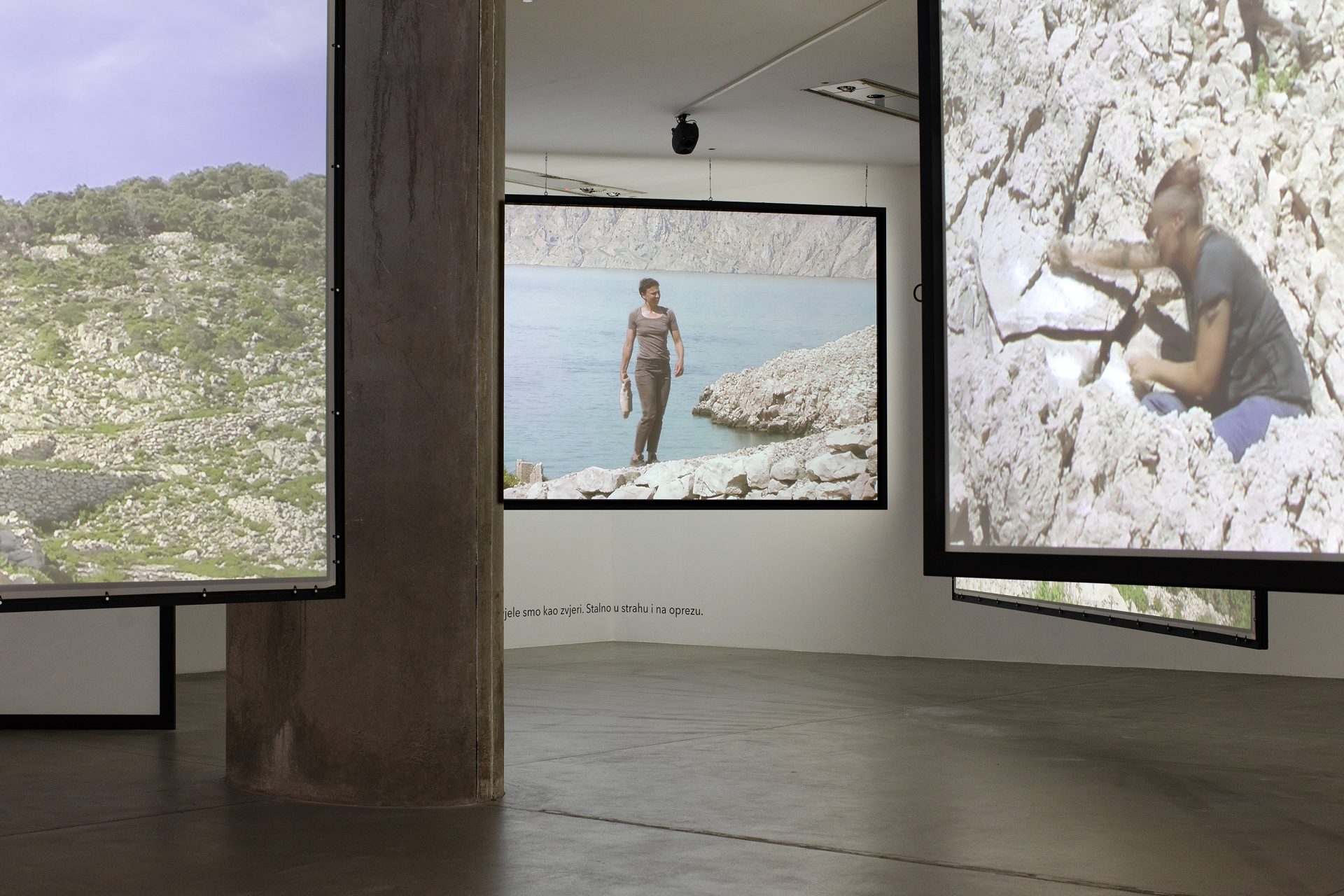
The participatory elements of the exhibition invite visitors to actively engage in the creation of the works.:
– women.index
During the exhibition, visitors are invited to leave a message on the toll-free number 0800 10 22, sharing whether they feel satisfied, discriminated, or abused. The results of these calls are displayed on a screen placed in a prominent location in the city, online, and within the exhibition space, creating a visual representation of social reality.
– You Betrayed the Party Just When You Should Have Helped It
Visitors are invited to participate in the collective creation of the counter-monument 850 Women for 850 Women, first initiated in previous iterations of the project. By crafting small clay sculptures, each one is symbolically dedicated to one of the 850 women punished in the political prison camps of Goli Otok and Sveti Grgur. The project also includes reading groups and discussions on the erasure of women’s history (HERstory) from dominant historical narratives, as well as on the specificities of women’s experiences of trauma.
– I’m Sorry… I’m Not Sorry
The public is invited to participate in a media-based – radio – intervention.
– Museum Garden / Edible Museum
As part of the broader project Creative Strategies, Andreja Kulunčić develops a participatory work with the neighbours of MSU, aiming to build community through the practice of urban gardening. The artist continuously explores the possibilities of collectivity, care, and reciprocity through artistic practice. The project dissolves the boundaries between the inside and outside of the museum, opening space for shared reflection and co-creation guided by the idea of the common good.
The garden is not merely a place of rest, but a social space where plants, soil, and human relationships shape a new form of togetherness. In a time of individualisation and fragmentation, the museum becomes a social agent – porous, open, and in dialogue with its neighbourhood.
A special emphasis is placed on intercultural collaboration with the Filipino and Indonesian communities in Croatia within the framework of the new project Micro-situations of Togetherness: Creating the Experience of Being Together. Through dialogue and collaborative production, the exhibition opens a space for presenting their cultures and everyday lives, making the museum a place of welcome and exchange. During the exhibition, visitors are invited to take part in workshops on playing the Indonesian instrument gamelan, in the making of batik silk and Filipino parol – traditional Christmas lanterns – as well as in readings of Indonesian and Filipino fairy tales and discussions on shared coexistence.
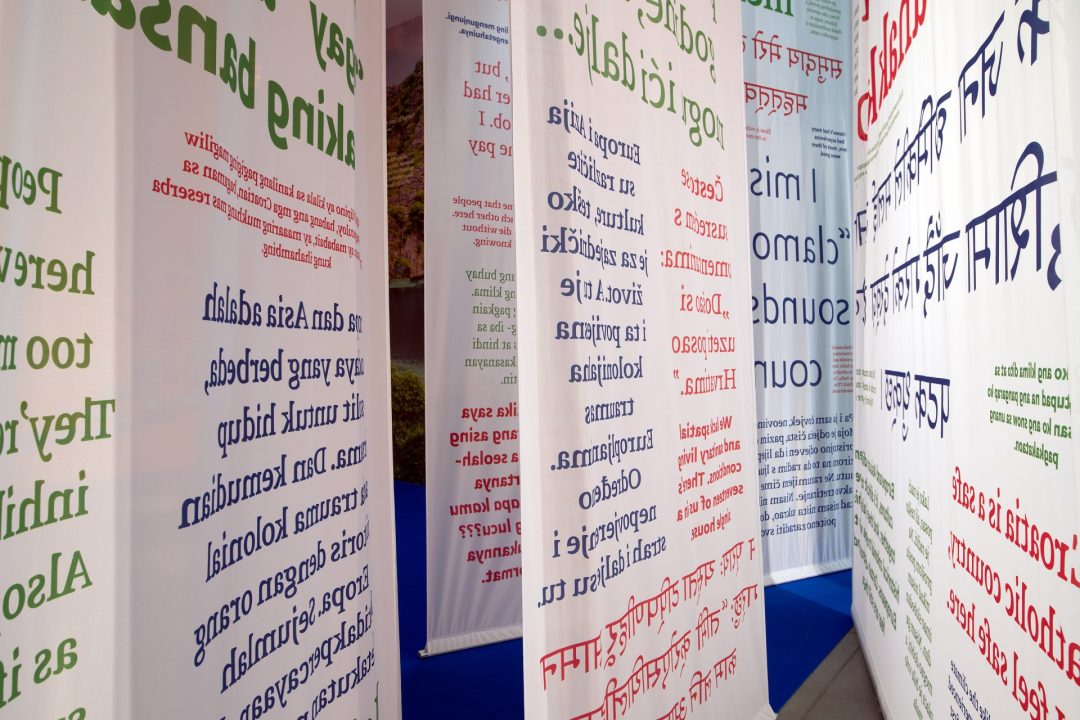
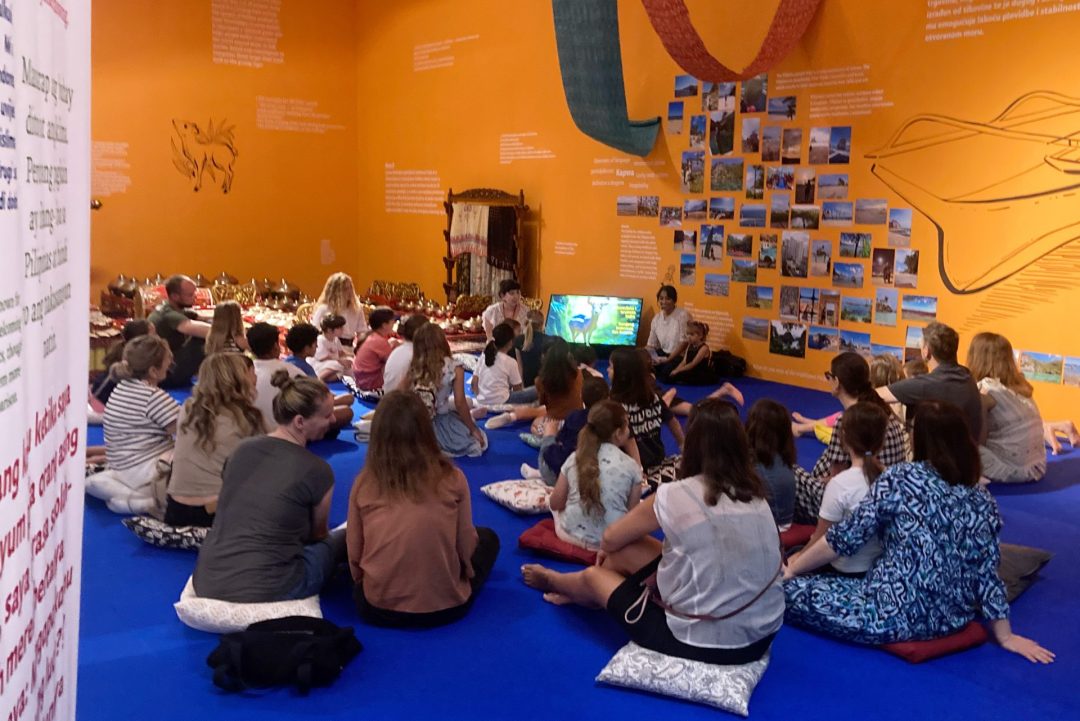
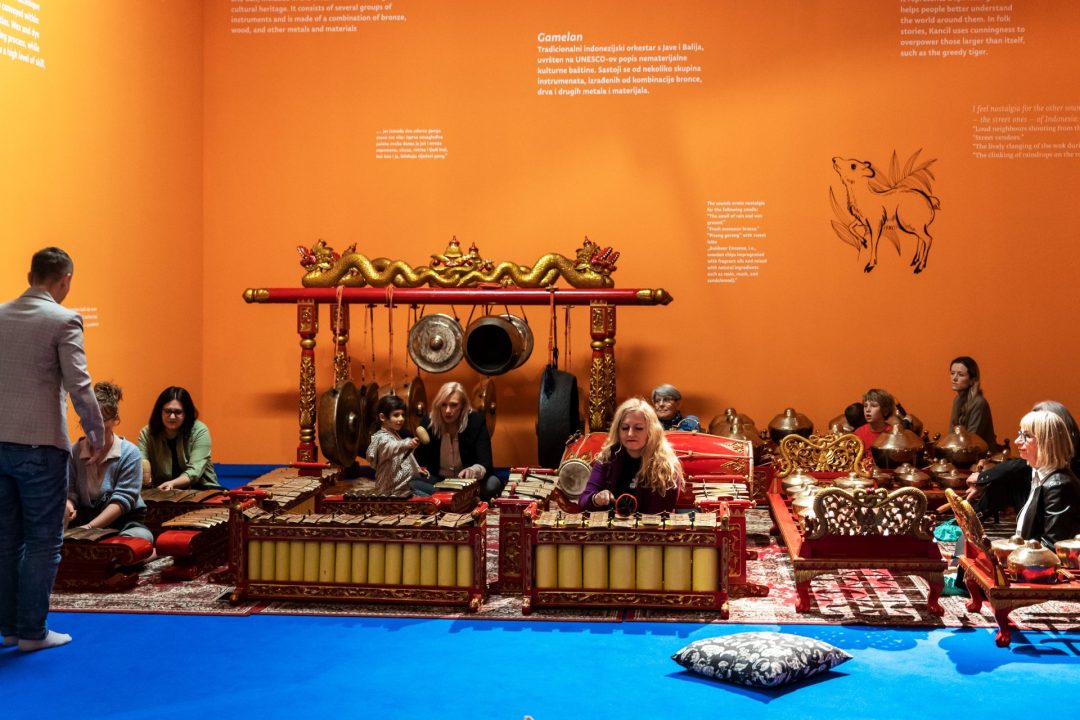
Educational workshops and discursive programs are an integral part of the exhibition. Over the course of five months, more than 65 programs are being held, inviting visitors to participate in a variety of activities: reading groups, workshops, lectures, discussions, urban gardening, the making of clay sculptures in memory of political prisoners, a telephone survey on the status of women in society, and media interventions.
The exhibition To Make the World a Better Place is not merely an artistic overview, but a call for collective reflection and action. It opens up space for questioning how we live, how we build community, and in what ways art can serve as a catalyst for social change.
Exhibition production*
Exhibition Curator: Martina Munivrana / Concept Authors: Andreja Kulunčić and Martina Munivrana / Curatorial Research and Collaboration: Irena Bekić (Croatia), Amanda de la Garza Mata (Mexico), Anca Verona Mihulet (Romania / South Korea), and Katharina Schlieben (Germany) / Designer: Dejan Dragosavac Ruta / Exhibition Architecture: Antun Sevšek and Damir Gamulin (Organizirano oblikovanje) / Design Advisor for Spatial Elements of the Project You Betrayed the Party… and the Migration Space: Kieun Kim / Workshop and Discursive Program Coordination: Renata Filčić / Discursive-Educational Program: Irena Bekić, Renata Filčić, Martina Munivrana / Graphic Design for the Discursive-Educational Program: Martin Peranović / Exhibition Assistant: Buga Kranželić / Production: Morana Matković
Photos of the exhibition setup and events: Ana Opalić, Vanja Babić, Sanja Bistričić Srića
The exhibition is carried out in collaboration with institutions and organizations on individual projects:
women.index – Museum of the City of Zagreb (exhibition curator: Marina Perica Krapljanov) / Micro-situations of Togetherness: Creating the Experience of Being Together – Art Pavilion in Zagreb (project curator: Irena Bekić, project coordinator: Ivana Završki) and the MAPA association / You Betrayed the Party Just When You Should Have Helped It – realized in collaboration with Documenta – Center for Dealing with the Past, as part of the project (In)Visible Traces. Artistic Memories of the Cold War, supported by the European Union through the Creative Europe programme. Project curators: Irena Bekić and Anca Verona Mihulet.
The intercultural welcome programs are co-funded by the City of Zagreb. / Embassy of the Republic of Indonesia in Zagreb / Embassy of the Republic of the Philippines in Vienna / MAPA Association is co-funded by the Kultura Nova Foundation. / The exhibition is funded by the City of Zagreb – Department for Culture and the Ministry of Culture and Media of the Republic of Croatia.
MSU Zagreb, 2025.
* For a full overview of the production, see the post below. “Exhibition production | Produkcija izložbe”
